Dangiwa: Tinubu Building








MAN AND EQUIPMENT NIGERIAN RAW MATERIALS EXPO 2025...
L-R: President, Manufacturers Association of Nigeria (MAN), Otunba Francis Meshioye; Special Guest of Honour, Minister of Innovation, Science and Technology, Chief Uche Geoffrey Nnaji; Representative of the Governor of Lagos State, Commissioner for Commerce, Cooperatives, Trade and Investment, Mrs. Folashade Ambrose-Medebem; Director General, Raw Materials Research and Development Council, Prof. Nnanyelugo Ike-Muonso; and Director General, Manufacturers Association of Nigeria, Mr. Segun Ajayi-Kadir, during the opening ceremony of the Nigeria Manufacturing and Equipment/Nigerian Raw Materials 2025 Expo, themed: Accelerating Sustainable Manufacturing Through Cutting-Edge Equipment and Technology Solutions, in Lagos, yesterday
Shettima: Creating Enabling Environment for
MSMEs Central to FG’s Economic Policy
Says Nigeria’s economy can’t grow without MSMEs FG disburses N250,000 each to small businesses in Ondo
Deji Elumoye in Abuja and Fidelis David in Akure
Vice President Kashim Shettima, yesterday, disclosed that creating an enabling environment for MSMEs in Nigeria was central to the economic policy of the Renewed Hope administration of President Bola Tinubu.
Shettima said this as the federal government disbursed N250,000 unconditional grants each to outstanding business owners in Ondo State as part of ongoing efforts to empower Micro Small and Medium Enterprises (MSMEs) across the country.
Speaking at the launch of the 7th Expanded National MSME Clinics in Akure, Ondo State, Shettima described the N250,000 grant as a gift from Nigerians, through their government, to the champions of local industry.
“I am also pleased to announce today, in line with President Tinubu’s unwavering support for grassroots enterprises, that every outstanding exhibiting MSME identified during this clinic will receive an unconditional grant of N250,000.
“This is not a loan. It is a gift from the Nigerian people, through their government, to the champions of local industry. It is our way of saying: we see you, we value you, and we believe in your journey,” he declared.
The Vice President disclosed that
65 MSMEs from Ondo State have already accessed funding from the federal government’s N75 billion intervention fund, stressing that the Sunshine State was critical to the socio-economic development of the country.
Highlighting key sectors targeted for revival under the Renewed Hope Agenda, the Vice President announced a major national initiative in agriculture, saying “President Bola Ahmed Tinubu has given a clear directive that we should plant 100 million oil palm trees across the country. We’re also going to revive the cocoa industry.”
The Vice President noted that because MSMEs account for over 90 per cent of businesses in Nigeria, contributing over 45 per cent to the national economy and employing more than 60 million Nigerians, they are not only economic actors but also “the silent architects of survival, the lifelines of households, the pulse of every community.”
Explaining why MSMEs are central to the economic policy of the Tinubu administration, Shettima maintained that while they are the true engine of poverty alleviation, no sustainable effort to reduce poverty could be achieved without the jobs and opportunities they create.
Nigeria’s national prosperity, according to the Vice President, is entwined in the success of MSMEs,
and the nation cannot grow its economy without empowering them.
He added: “This is why the Renewed Hope Agenda of President Bola Tinubu places the creation of an enabling environment for MSMEs at the heart of our economic policy. It is not rhetoric. It is a call to action. It is a covenant with the builders of our future.
“This administration is deliberate in walking the talk, and one of the ways we do so is through platforms such as the MSME Clinics, conceived to draw
the federal government closer to the creators of jobs, the innovators, the dreamers who make things happen in our communities.”
Underscoring the essence of launching the Expanded MSMEs Clinic in Ondo State, the Vice President said they offer small businesses in the state an unprecedented opportunity “to engage directly with regulatory agencies, financial institutions, and business support organisations.”
Shettima also outlined other
interventions under Tinubu’s administration to include the creation of a N75 billion MSME Intervention Fund being administered by the Bank of Industry (BoI), N50 billion Presidential Conditional Grant Scheme to support one million nano businesses across the 774 local government areas of Nigeria with grants of N50,000 each, and N75 billion Manufacturers Fund for manufacturers to access up to N1 billion in funding at nine percent interest rate.
He said the idea was to ensure
the challenges of small business owners “find answers, not in theories or wishful thinking, but in real-time, face-to-face, problem-solving conversations.”
The Vice President assured that MSMEs remain the centre of economic vision of the Tinubu administration, urging small business owners “to take full advantage of the opportunities before them by engaging with the agencies present, seeking guidance, asking questions, and seizing every chance to elevate their businesses.”
FG Approves N4.2bn for 158 TETFund Research Projects
Kuni Tyessi in Abuja
The federal government yesterday announced the approval of the disbursement of N4,249,626,817.69 for the funding of 158 research projects under the 2024 National Research Fund (NRF) Grant Cycle of the Tertiary Education Trust Fund (TETFund).
The approval followed the recommendation of the TETFund National Research Fund Screening and Monitoring Committee
NHRC, Taipei Trade Office Empower
Indigent Victims of Human Rights Violations
Olugbode
The National Human Rights Commission (NHRC), in collaboration with the Taipei Trade Office in Nigeria have launched an empowerment programme for indigent survivors of human rights violations.
The event, held in Abuja, brought together government officials, civil society leaders, members of the diplomatic corps, and most importantly, beneficiaries of the programme, to mark what the NHRC described as a significant step forward in the national human rights agenda.
The Executive Secretary of the NHRC, Dr. Tony Ojukwu, emphasised the significance of the event as both a humanitarian
intervention and a fulfilment of the Commission’s statutory mandate.
He stated that the initiative serves not just as a gesture of compassion, but as a tangible expression of the Commission’s commitment to justice, restoration, and opportunity.
“Justice does not end at acknowledgement; it must be accompanied by restoration, dignity, and opportunity.
“Whether you are starting a new business or strengthening an existing one, these tokens are investments in your resilience, your hard work, and your dreams,” Ojukwu declared.
The NHRC boss said the empowerment programme was part of broader efforts by the Commission to offer legal, psychosocial, and economic support to victims of human rights abuses.
The collaboration with the Taipei Trade Office, he added, demonstrates the power of international cooperation in delivering real change at the grassroots level.
The NHRC said it would continue to monitor their progress, ensuring that the assistance provided translates into sustainable impact.
Ojukwu, a Senior Advocate of Nigeria (SAN), also urged all stakeholders, governments, development partners, and civil society to renew their commitment to building a Nigeria where human rights are upheld and no one was left behind.
“Your pain is acknowledged, your courage is celebrated, and your future holds promise,” he told the survivors.
“This programme is a stepping stone, not the destination,” he added.
(NRFS&MC), which screened 6,944 Concept Notes from researchers across the country.
The approval was contained in a statement signed by TETfund’s Director of Public Affairs, Abdulmumin Oniyangi, on behalf of the Executive Secretary of the Fund.
According to the statement, N2.35 billion was allocated to research under the Science, Engineering, Technology and Innovation (SETI) thematic area; N1.03 billion to Humanities and Social Sciences (HSS), and N870.7 million to Cross-Cutting (CC) research.
Universities with the highest number of approved research projects included the Federal University of Technology, Minna,
which secured 15 awards worth over N400 million; Ahmadu Bello University - 13 awards totaling N359.8 million; and Federal University of Technology, Akure, with 12 projects valued at N341.6 million.
Others were the Federal University of Technology, Owerri, with 11 awards, Abubakar Tafawa Balewa University, Bauchi, with 10, and University of Ilorin with 8 awards.
Some of the groundbreaking research projects funded included Development of Sustainable Ecofriendly Walling System for Low-cost Housing in the Rural Communities of Nigeria; Development of Hybrid Cubic Fertilizer Using Plant-based Binders for
Efficient Nutrient Release and Utilisation; Development of an Intelligent Aerial Robotics System for Efficient Weed and Disease Management in Maize-Cowpea Farmland in Nigeria.
Others include: Development of an Artificial Intelligence-Enabled Internet of Medical Things for Military Physiological Monitoring and Activity Recognition at War Zones; and Development of a Novel Intelligent Electrical Energy Management Metering System. TETFund stated that the NRF Grant was introduced to encourage cutting-edge research in areas vital to national development such as power, health, security, agriculture, and wealth creation.
ICPC Cautions NDDC Staff Against Corrupt Practices
Blessing Ibunge in Port Harcourt
The Independent Corrupt Practices Commission (ICPC) has advised staff of the Niger Delta Development Commission (NDDC), to distance themselves from corrupt practices.
The anti-corruption Commissioner in Rivers and Bayelsa States, Mrs. Ekere Usiere, gave the advice during the quarterly anticorruption sensitisation workshop at the NDDC headquarters in Port Harcourt.
Usiere, who acknowledged the critical role played by the Commission as an interventionist agency, noted the necessity to undertake periodic sensitisation of staff as an antidote to corrupt practices. She commended the NDDC and its Anti-Corruption and Transparency Unit (ACTU) for organising the sensitisation exercise with the theme: “Infractions/Offences in Anti-Graft Laws; Preventive Measures.”
In his remarks, the NDDC Managing Director, Dr. Samuel Ogbuku, stressed the need to
take measures to tackle corrupt practices and entrench transparency in public service. He observed that the sensitisation exercise was part of the efforts to enhance the service delivery of the Commission. Represented by the Director III, Admin and Human Resources, Dr James Fole, the MD urged staff to avoid corrupt practices and work with diligence and uprightness. He stated, “ I want you to avoid any corrupt activities, work diligently and be upright.”
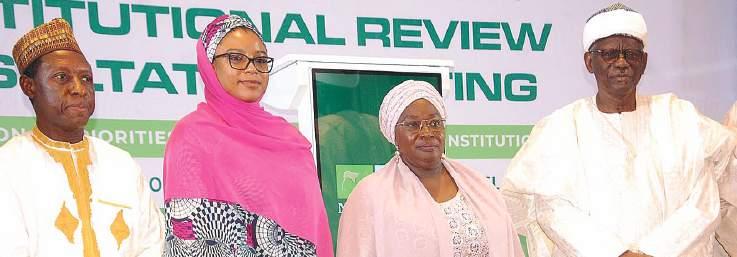
NWGF CONSTITUTIONAL REVIEW CONSULTATIVE MEETING...
L-R: Former Director General, Nigerian Institute of Advanced Legal Studies (NIALS), Professor Muhammed Tawfiq Ladan; Director General, North West Governors Forum (NWGF), Maryam Musa Yahaya; Kaduna State Deputy Governor, Dr. Hadiza Sabuwa Balarabe; and Chairman, Katsina State Constitutional Review Committee, Ibrahim Ida, during the NWGF Constitutional Review Consultative Meeting in Abuja, yesterday
Nigeria’s First E&P Eyes Tanzanian Gas in Push for More Growth
Seplat says nation needs sustainable, secure energy to reshape future
Emmanuel Addeh in Abuja and Peter Uzoho in Lagos
Nigeria’s First Exploration and Petroleum Development Company is eying gas exploration in Tanzania, East Africa, reflecting a wider push by the country’s energy companies to grow outside the home market, Bloomberg reported yesterday.
First E&P signed a deal with the Tanzania Petroleum Development Corporation last month for the
technical assessment and potential development of the Mnazi Bay North Block in southern Tanzania, near fields where vast gas reserves were found in Mozambique.
The company’s Chief Strategy Officer, George Toriola, said the agreement’s timeline for preliminary studies is six months with an option to mutually extend. “Both of us are very keen to do this quickly,” he assured.
First E&P, which produces an
average of 57,000 barrels of oil a day, joins other Nigerian energy firms seeking growth opportunities abroad in the wake of their recent acquisitions of onshore and shallow water assets sold off by international oil majors in the West African nation, the Bloomberg report added. That extends to the downstream business as well. Oando Trading was chosen earlier this year by Trinidad and Tobago’s Trinidad Petroleum Holdings Ltd to lease the Petrotrin oil
refinery. The Aiteo Group, a company owned by Nigerian tycoon Benedict Peters, is separately proposing a 200,000 barrel-a-day refinery in Mozambique.
Nigeria, Africa’s biggest crude producer with massive reserves of natural gas, is encouraging investment in gas production to support power generation and improve energy security in a nation where millions of people lack a cheap and reliable supply of electricity.
NMDPRA Engages Stakeholders on Downstream Safety, Mulls Exit Guidelines for Filling Stations
Begins consolidation of existing regulations to enhance compliance
Emmanuel Addeh in Abuja
The Nigerian Midstream and Downstream Petroleum Regulatory Authority (NMDPRA) yesterday met with operators in that segment of the oil sector, in a bid to seek their buy-in on the planned consolidation of existing safety and environmental regulations, including the proposed guidelines on decommissioning and abandonment.
Speaking at the event in Abuja, the Authority Chief Executive (ACE) of the NMDPRA, Farouk Ahmed, underscored the need to ensure strict compliance with the new regulations, to ensure environmental safety in the midstream and downstream.
He explained that the meeting
was necessary in line with Section 216 of the Petroleum Industry Act (PIA) 2021 which mandates consultation with stakeholders prior to the finalisation of regulations under the Act.
Represented by the Executive Director, Distribution Systems, Storage and Retailing Infrastructure (DSSRI), Ogbugo Ukoha, Ahmed stated that the proposed 2025 Midstream and Downstream Petroleum Safety and Environmental Regulations consolidate three of the NMDPRA’s earlier published regulations into a single document. The consolidation process, he said, has enabled the organisation to reduce the complexities of navigating and implementing numerous regulations; streamlining all activities concerning health, safety,
and environmental operations, including decommissioning and abandonment in the midstream and downstream petroleum industry.
Ahmed noted that it will also eliminate inconsistencies and repetitions across multiple regulations and engender further compliance with the PIA and regulations made thereto.
While assuring that the Authority had taken note of the feedback with a view to incorporating same, he stated that the regulations are to be read in conjunction with other regulations made by the Authority including the Midstream and Downstream Petroleum Fees Regulations, 2024 which provide for the prescribed fees for petroleum activities.
In his intervention, the NMDPRA
Secretary and Legal Adviser, Dr Joseph Tolorunse, said the consolidation allows for amendments based on stakeholder engagement and feedback, disclosing that previously 10 regulations were consolidated into one to reduce redundancy.
According to him, the aim is to move towards self-regulation in the industry at some point, where transparency is crucial, with the stakeholders consultation being essential for incorporating feedback into the regulations.
First E&P is part of a consortium which acquired Shell Plc’s onshore assets for $1.3 billion in December, Bloomberg recalled. First E&P Chief Executive Officer, Ademola Adeyemi-Bero said it is raising funds and will seek investment partners to support growth.
“We have visibility as to how to access the capital required for growth and we are open to discussion,” he added.
Meanwhile, Nigeria’s independent energy company, Seplat Energy Plc, has stated that Nigeria needs sustainable and secure energy that is shared by all to boost its fortunes and reshape the future.
Seplat Energy’s Chief Executive Officer, Mr. Roger Brown, said this yesterday in Lagos, at the ongoing 48th Society of Petroleum Engineers (SPE) Nigeria Annual International Conference and Exhibition (NAICE), with the theme, “Building a Sustainable Energy Future: Leveraging Technology, Supply Chain, Human Resources, and Policy.”
Represented by the Chief Operating Officer, Seplat Energy Plc, Mr. Samson Ezugworie, Brown, stated: “We are living through a time of profound transition — a global shift away from fossil fuels, toward cleaner, more inclusive energy systems. For Nigeria, this is not just a climate imperative. It is an economic one.
An opportunity to reshape our future with energy that is sustainable, secure, and shared by all.”
He told conference participants that current discussions were not only about energy systems, but also the very foundations of economic opportunity, human wellbeing, and climate resilience in Nigeria.
Identifying the majority of Nigerians as lacking access to reliable electricity, with millions relying on polluting fuels for cooking and transportation, Brown said the situation was very worrisome considering the country’s natural resource endowment, talents, and entrepreneurial spirit.
He said: “Nigeria stands at a pivotal moment - caught between the urgent need to meet growing domestic energy demand and the equally pressing global call for a low-carbon future.
“If we are to build a truly sustainable energy system, we must treat it not as a single problem, but as a system-wide transformation. Technology gives us the tools to imagine and implement new energy models — from off-grid solar to smart grids, from clean cooking to digital monitoring. But it must be accessible, scalable, and locally adapted.”
The Seplat Energy CEO described supply chains as the invisible threads that connect ideas to impact, adding that from gas pipelines to solar panels, to the logistics that get energy where it’s needed most — the nation must build resilient, transparent supply networks that serve the whole country.
Agricultural Transformation: Kano Govt
Employs 1,038 Extension Officers
Ahmad Sorondinki in Kano
Governor Abba Yusuf of Kano State has presented letters of employment to 1,038 young agricultural extension agents and support staff for the State Agricultural and Rural Development Authority. Presenting the letters at the flagoff ceremony for the distribution of employment letters to 1,038 successful agricultural and related workers in Kano, Yusuf said the extension service workers are expected to facilitate sustainable farming practices.
The governor charged the new employees to take the responsibility with seriousness, dedication, and a deep sense of duty to the people of the state. He warned them: “You must shun absenteeism, laziness, misconduct, and any form of corruption. “As frontline ambassadors of agricultural transformation, your conduct and commitment will directly influence the success of our efforts to revitalize agriculture and empower rural communities across the state.”
Governor Yusuf noted with ap-
preciation that: “We are building a new generation of field workers who will bring modern practices, improved inputs, and innovative solutions to our farms, our cooperatives, and our communities.”
”Although,” Governor Yusuf said, “Kano continues to lead the country in the number of agricultural extension agents, we still consider it imperative to recruit additional extension workers to strengthen the operations of the Kano Agricultural and Rural Development Authority (KNARDA) under the Ministry of Agriculture.”
Airtel Nigeria, yesterday, restated its commitment to expand the laying of its fibre optic cable, its radio frequency, and spectrum, in order to boost 5G penetration in the country.
CEO of Airtel Nigeria, Dinesh Balsingh, who restated the commitment at a media roundtable in Lagos, promised that in the next couple of months, Nigerians would begin to experience increased 5G penetration on the Airtel network.
According to him, “Over the next few months, Nigerians will begin to see 5G network rollout much more rapidly.”
He, however, explained that 5G
network rollout would depend more on device and hardware rollout, even though it is a combination of device and network ecosystem.
“So, it’s an ecosystem of device and network coming together. So, neither the device nor the network alone can address 5G penetration in Nigeria.
“So, getting 5G devices into the market, and ensuring that consumers have 5G devices, is one very important aspect, because the network is available, and rolling out the network is something that we can even do much faster,” Balsingh said.
We are also trying to see whether, while the device ecosystem builds up, telcos can go ahead and deploy networks ahead of time. But we are
actively talking to device manufacturers to achieve faster 5G rollout, Balsingh further said.
Fielding questions from journalists, Balsingh disclosed that Airtel Nigeria would soon launch its Hyperscale Data Centre, which is still under construction in Eko Atlantic in Victoria Island, Lagos.
According to him, the need for a local data centre was critical as it would enhance faster internet connectivity with low latency.
“Also, the planned data centre, which is estimated to cost $120 million when completed, will ensure that sensitive national data is stored within Nigeria rather than relying on foreign servers.

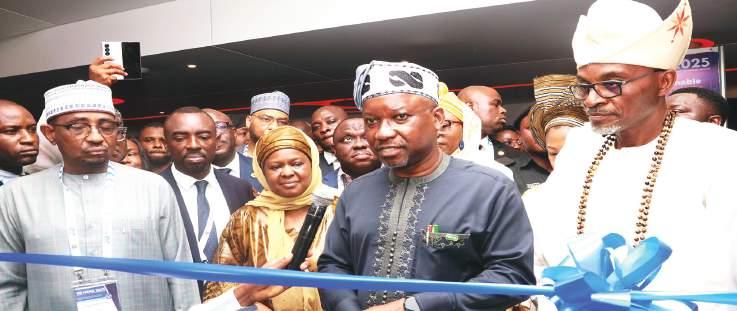
OPENING CEREMONY OF THE NIGERIA ANNUAL INTERNATIONAL CONFERENCE...
L-R: Authority Chief Executive, Nigerian Midstream and Downstream Petroleum Regulatory Authority (NMDPRA), Engr. Farouk Ahmed; Technical Assistant, Business to the Minister of State for Petroleum Resources (Oil), Biowe Kurokinyinanya Ororowa; Chair, Society of Petroleum Engineers (SPE) Nigeria Council, Amina Danmadami; Honourable Minister of State, Petroleum Resources (Gas), Hon. Ekperikpe Ekpo; and the
Ogun State, Oba
during the opening ceremony of the Nigeria Annual International Conference and Exhibition (NAICE) 2025, organised by the SPE Nigeria Council, held in Lagos on Monday
Build Houses for Victims of Disasters, First Lady Charges Niger Government
Donates N1bn to state govt; N500m relief materials to victims of flood in Adamawa
Laleye Dipo in Minna
First Lady, Senator Oluremi Tinubu, has tasked the Niger State government to construct houses for victims of disasters, especially victims of the recent flood in the state. She donated N1 billion to the government to aid the resettlement of displaced flood victims.
Tinubu also donated 2,000 50-kilogramme bags of rice, clothes, and shoes to the government for distribution to the displaced persons. She said the donations were for flood, banditry, boat mishap, fire disaster victims across the state.
In a related development, Mrs. Tinubu, chairperson of the Renewed Hope Initiative, also donated N500 million and relief materials to the Adamawa State government. The donation was aimed at supporting no fewer than 1,800 households affected by the recent flood that ravaged the state.
The deputy governor, Professor Kaletapwa Farauta, received the cash donation and relief materials on behalf of the state government during a condolence visit by Mrs. Tinubu, who was represented by Nana Shettima, the wife of the vice president.
Addressing the Niger State
disasters, the first lady said, “This donation should be directed towards housing supports and provision of essential supplies to help the displaced families to get back to their feet, earn great living and have a better life, which is in line with the objectives of the renewed hope initiative.”
Mrs. Tinubu said the gesture was from the Renewed Hope Initiative. She condoled the government and people of Niger State over the flood disaster in Mokwa that claimed many lives and displaced many families; the recent boat mishaps in Shiroro Local Government Area; the victims of bandit attacks; and those who suffered fire disasters in the state.
“These are really challenging times, but we pray that Almighty God comfort the bereaved families, heal the injured and strengthen all those affected,” she said.
The first lady added, “As a mother, I share your pains and grieve over those irreplaceable losses and displacement. I believe that we all can collectively help these victims in their various communities.”
The first lady lauded the president for his swift release of funds and food items to assist in the recovery efforts, as well as reconstruction of houses destroyed by the flood in Mokwa.
She also applauded Governor Muhammad Bago for “rising promptly to the occasion by donating funds and grains to support families that were displaced”.
Mrs. Tinubu prayed that God comforts and grants eternal rest to the departed.
In his remarks, Bago appreciated the gesture of the first lady and explained that the state in recent times had experienced incidents of flood, boat mishap, fire disaster, banditry, and insurgency.
Bago declared, “I wish to announce to you all that we have received the sum of N1 billion into the Niger State Emergency account courtesy
the Renewed Hope Initiative of Her Excellency, Senator Oluremi Tinubu, 2,000 bags of 50kg Rice, 16,000 wrappers for women that are in this situation. She also gave us over 100 shoes.”
Bago confirmed to the first lady that officially, All Progressives Congress (APC) in Niger State had endorsed President Bola Tinubu for second tenure.
In Adamawa State, the first lady said her donations were also a gesture of goodwill and solidarity with the people, who had been struggling to come to terms with the aftermath of the recent flood disasters.
Farauta said the recent flood
disaster claimed 29 lives, destroyed homes, and displaced thousands of residents, leaving many families in dire need of assistance.
The deputy governor said Mrs. Tinubu’s donation was a timely intervention that will go a long way in cushioning the effect of the disaster and supporting recovery efforts.
Farauta expressed her deep appreciation for the humanitarian support, describing it as timely and a boost to the hopes of vulnerable individuals.
She assured that the donated items would be fairly and transparently distributed to the intended beneficiaries.
The deputy governor thanked
the president, vice president, and their wives for identifying with the people of Adamawa State during this difficult time.
She praised their efforts in raising the hopes of ordinary citizens and providing support when it is needed most.
In her remarks, Nana Shettima stated that the N500 million cash donation, along with the food and non-food items, was meant to support the recovery efforts and provide relief to those affected by the flood.
She emphasised the importance of collective action in times of crisis and the need for sustained support for affected communities.
NILDS Trains Legal Officers Across Security Agencies to Strengthen Oversight
Sunday Aborisade in Abuja
In a major push to improve the quality and enforceability of Nigeria’s regulatory framework, National Institute for Legislative and Democratic Studies (NILDS) launched a specialised lecture
Katsina, UNICEF Commit Additional N1 Billion to Curb Malnutrition
Warn health workers, caregivers against trading RUTF
Francis Sardauna in Katsina Katsina State Government and United Nations Children’s Fund (UNICEF) have committed an additional N1 billion into the state’s health sector to address the prevailing malnutrition crisis in the state.
The state government, in collaboration with UNICEF, had earlier procured and distributed 7,000 cartons of ready-to-use therapeutic food (RUTF) and other supplementary food worth N400 million to tackle severe acute malnutrition in the state.
Executive Secretary of State Primary Healthcare Development Agency, Dr. Shamsudeen Yahaya, disclosed the new financial commitment at a
planning meeting on Standardised Monitoring and Assessment of Relief and Transition (SMART) survey held in Katsina, Tuesday.
Yahaya said the state government and UNICEF will provide N500 million each this year, totalling N1 billion, to address acute malnutrition across the state.
He said, “Since the coming of this present administration, His Excellency, Malam Dikko Umaru Radda has prioritized healthcare delivery, especially primary healthcare and the welfare of children.
“This year, the state government will provide N500 million while UNICEF will match it with the same amount, making it N1 billion to address acute
malnutrition in the state.”
Yahaya said the Governor Dikko Umaru Radda government had also established Outpatient Therapeutic Points (OTP) in Daura, Mai’Adua, Zango, Baure, Sandamu and other local governments to improve child nutrition.
He explained that the government had also developed a multi-sectoral plan of action, comprising immediate, intermediate and long-term solutions to the malnutrition crisis in the state.
He said since 2016, 14 local government councils had been contributing N250,000 monthly, amounting to N3.5 million, to attenuate malnutrition among children and breastfeeding mothers.
series to train legal officers from the armed forces, police, customs, and other enforcement agencies in the art of drafting effective subsidiary legislation.
The initiative, inaugurated Tuesday in Abuja, aims to close critical gaps in the technical drafting of regulations that support primary laws.
Subsidiary legislation, also known as delegated or secondary legislation, includes rules, orders, and regulations made by bodies or persons under powers given to them by Acts of Parliament.
Director-General of NILDS, Professor Abubakar Sulaiman, said the programme represented a strategic intervention to address persistent deficiencies in Nigeria’s legal and regulatory ecosystem, where poorly drafted subsidiary legislation hampered enforcement, created legal loopholes, and triggered avoidable litigations.
Sulaiman said, “In a constitutional democracy like ours, the rule of law is not just a lofty ideal but the foundation of governance, justice, and national security.
“While Acts of Parliament establish legal mandates and policy direction, it is subsidiary legislation that provides the operational detail and clarity needed to implement those laws effectively.”
He stressed that flaws in the
drafting of subsidiary legislation had over the years contributed to enforcement failures, institutional inefficiencies, and legal ambiguities.
“Deficits in technical drafting expertise too often result in vague, inconsistent, or legally defective regulations. These flaws create administrative bottlenecks and undermine public trust,” he stated.
Sulaiman said for legal officers in the armed forces and security services, mastering the art of legal drafting was no longer optional. He said it was essential for ensuring compliance with statutory mandates and upholding the credibility of their institutions.
The director-general said, “When subsidiary legislation is poorly written, it weakens enforcement mechanisms, exposes agencies to legal challenges, and can lead to miscarriages of justice.
“This training is therefore essential for enhancing institutional coherence and reinforcing democratic accountability.”
The capacity-building workshop was facilitated by a distinguished faculty, including senior legal scholars, Senior Advocates of Nigeria, and experts in legislative processes, assembled by NILDS to provide participants with both theoretical frameworks and practical skills for regulatory development.
“This is not just training. It is an
investment in the future of governance in Nigeria,” Sulaiman declared. He urged participants to fully engage with the sessions and take the lessons back to their agencies.
The initiative comes at a particularly timely moment for some agencies.
For instance, Mr. Gideon Madaki, a legal officer with the Nigerian Customs Service (NCS), explained that the training coincided with the post-amendment phase of the Customs Act, where new subsidiary legislation is required to bring the law into full operational effect. Madaki said, “We are among those currently drafting the implementing regulations. This training came at the perfect time.
“I expect to learn the latest techniques and legal principles that govern the drafting of clear, enforceable regulations.”
Equally speaking, Mr. Umar Ibrahim, a legal officer at the Nigerian Correctional Service, highlighted the importance of the workshop in strengthening both legal and administrative capacity within the service.
“This is a well-thought-out initiative. We need this kind of exposure to improve our ability to draft regulations that are not only legally sound but also administratively effective,” he said.
In a Watershed, Tinubu Signs Nigerian Insurance Industry Reform Bill Into Law
New act repeals outdated 2003 regulations, expected to unlock industry’s full potential, boost financial sector contribution to $1 trillion economy, deepen insurance penetration, enforce claims settlement, others
Deji Elumoye and James Emejo in Abuja
President Bola Ahmed Tinubu, yesterday signed the Nigerian Insurance Industry Reform Bill, 2025 into law.
The landmark legislation repeals the 22 year-old Insurance Act of 2003, and consolidated several insurance laws which are no longer current, into a single, modern legal framework.
Announcing the development in a statement, presidential spokesperson, Bayo Onanuga, said the new Act provides for comprehensive regulation and supervision of all insurance and reinsurance businesses operating within Nigeria.
The development reaffirmed the present administration’s commitment to financial stability, economic development, and inclusive growth.
According to him, the new Act ushered in a new era of transparency, innovation, and global competitiveness for the insurance industry.
He said the signing further aligned with the federal government’s vision of achieving a $1 trillion economy by 2030.
Onanuga stated that as part of the Renewed Hope agenda for the insurance sector, the Act introduced critical measures including stringent capital requirements to ensure the financial soundness of operators;
The Minister of Housing and Urban Development, Ahmed Dangiwa, has unveiled what he termed ‘far-reaching achievements’ of the federal government in the housing sector in northern Nigeria, including the ongoing construction of 6,112 homes, upgrading of 150 slums and creation of over 152,000 jobs through housing infrastructure.
In a statement yesterday signed by the Director Press and Public Relations in the ministry, Babamasi Haiba, Dangiwa maintained that the administration of President Bola Tinubu is using housing as a transformative tool to rebuild communities, create jobs, and restore dignity in the region.
The minister declared that the ministry’s interventions are not just about physical infrastructure, but about economic empowerment and social renewal for Nigerians.
“We are not just building houses; we are rebuilding lives, restoring dignity, and laying the foundation for a more secure and prosperous North,” he stated.
In achieving the goals of the sector in the region under the ‘Renewed Hope Housing’, the ministry, he said, deployed a three-tier strategy that is already reshaping northern Nigeria’s housing landscape.
Dangiwa listed the Renewed Hope City Projects totalling 4,612 units,
regional hubs are established in Lagos (Nigeria), Accra (Ghana), Abidjan (Côte d’Ivoire), and Nairobi (Kenya).
The planned disposal of the stake in the Togo-based Ecobank will mark the end of a 17-year strategic alliance that enabled Nedbank to expand its footprint beyond its home region.
In a statement yesterday, the bank stated that it had completed a review of its investment, and now recognises the risks of continuing to hold onto the investment in the bank due, in part, to regulatory uncertainty.
“Regarding our investment in Ecobank Transnational Incorporated (ETI), we have concluded a strategic review of the group’s financial investment, recognising the risks of continuing to hold onto the investment due to regulatory uncertainty and potential increasing capital requirements.
“As a result of the review, the group’s financial investment in ETI has from 30 June 2025 been classified as a non-current asset held for sale in terms of IFRS 5,” said the bank’s Chief Executive, Jason Quinn.
IFRS 5 – Non-current Assets Held for Sale and Discontinued Operations is an International Financial Reporting Standard issued by the International Accounting Standards Board (IASB).
“The board has approved a
with Karsana in the Federal Capital Territory (FCT) having 3,112 housing units, and 1,500 units Renewed Hope City, as well as a 500-unit Estate in Kano.
Besides, he mentioned that the Renewed Hope Estate Projects , which he said have 250 units each are being delivered in Katsina, Gombe, Yobe, Sokoto, Benue, and Nasarawa, totalling 1,500 units. All the sites, he said, were integrated with road networks, water infrastructure, solar lighting, and basic social amenities.
“The planned Renewed Hope Social Housing Estates is a part of a national effort to deliver 100 affordable homes in each of Nigeria’s 774 local government areas”, he stated.
He explained that through these housing projects, the ministry has generated over 152,000 direct and indirect jobs, empowering thousands of northern youths and artisans. According to the minister, many now earn up to N150,000 monthly, contributing to local economic activity and household stability.
Dangiwa stated that the ministry is also investing in building materials manufacturing hubs across all regions to promote local content, reduce building costs, and create additional industrial jobs.
On the post-conflict resettlement initiative, the Resettlement Scheme for Persons Impacted by Conflict (RSPIC), Dangiwa highlighted that the RSPIC is a major humanitarian component
formal plan to dispose of the investment, and we are currently engaging interested parties and, if a sale is concluded, it will be a clean deal subject only to normal regulatory approvals.
“This change represents a reset of Nedbank’s strategy on the rest of the continent with a clear focus on the SADC (Southern Africa Development Community) and East Africa regions in businesses we own and control, and in areas where we can play to our strengths,” Quinn added.
Nedbank’s shares fell as much as 5.8 per cent and traded 5.2 per cent lower at 237 rand by 11:14 a.m. in Johannesburg yesterday, on investors’ concern about the impact of the sale on the bank’s return on equity, after the bank cut its growth targets for the year.
The South African lender became Ecobank’s largest shareholder in 2008 through a $500 million investment that was formalised into a partnership in 2014. The purchase gave Nedbank access to the West African bank’s presence in 33 countries, including 32 across sub-Saharan Africa and one in France.
Nedbank said its initial investment case had been negatively impacted by the deterioration in the economy of Nigeria where Ecobank has a large operation and the exit of various South African clients from the region, which has limited
enforcement of compulsory insurance policies to enhance consumer protection; and the digitisation of the insurance market to improve access and efficiency.
Others include zero tolerance for delays in claims settlement; creation of dedicated policyholder protection funds, especially in cases of insolvency, and expanded participation in regional insurance schemes, including the ECOWAS Brown Card System.
The National Insurance Commission (NAICOM) is mandated to administer and implement the provisions of the NIIRA 2025 in a manner that unlocks the industry’s full potential and significantly improves insurance penetration
of the housing programme.
The initiative, he said, aims to build 252 new homes across seven northern states of Kaduna, Katsina, Zamfara, Kebbi, Niger, Benue, and Sokoto, to rehabilitate families displaced by banditry and terrorism.
“The pilot project in Tudun Biri, Kaduna State, is already underway, providing safe, decent housing for victims of the December 2023 accidental military airstrike. This is housing as healing, helping families affected by conflict reclaim stability
across the country.
The reform introduced by the new law is expected to catalyse new investments, boost consumer confidence, and position Nigeria as a leading insurance hub in Africa.
There had been recent complaints over old Act, which analysts described as moribund amid new economic realities.
For instance, many of the Act’s prescribed penalties - for failing to purchase compulsory insurance - are not only outdated but paltry—in some cases, fines are as low as N2 or N5 or in pounds sterling, undermines deterrence and enforcement.
The old Act also lacked efficient consumer protection and dispute
and hope,” the minister noted.
On urban renewal and infrastructure development, he stated that through the National Urban Renewal and Slum Upgrade Programme, the Ministry has completed over 150 projects and has more than 100 ongoing across northern communities.
He listed the major intervention sites under the programme to include; Tudun Wada (Sokoto), Yankaba (Kano), and Tunga (Niger). Under the special projects unit, he stated that the ministry has delivered across
resolution as the Complaint Bureau established by the Act had proven insufficient to resolve insurance disputes effectively.
In.additiom, stakeholders and lawmakers had advocated for riskbased supervision, updated capital adequacy frameworks, tougher sanctions, and consolidation with other statutes such as the Marine Insurance Act and Third Party Road Accident Act.
Despite attempts to update the law in 2008, 2016, and 2020, none of the review processes produced an enacted replacement.
While the Insurance Act of 2003 was initially welcomed for providing a regulatory framework, the evolving market dynamics
the nation 71 new classrooms, 15 primary health centres, 58 boreholes and 63 rural access roads.
With over N61 billion invested, he noted that these projects have created more than 10,700 jobs and improved the quality of life in vulnerable communities.
Dangiwa also affirmed that the miinistry is scaling up efforts to deepen the reach of the programme in the region, including; New Renewed Hope Cities and Estates in additional Northern states; full implementation
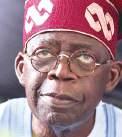
and systemic inefficiencies have exposed its weaknesses after two decades of operation.
of the 774 local governments social housing rollout, and expansion of single-digit mortgage and rent-to-own financing.
Another plan, he said, include the launch of building material hubs to enhance affordability and self-reliance.
“This is more than infrastructure. It’s a renewal of trust in government, a practical demonstration that President Tinubu’s Renewed Hope Agenda is delivering real change,” he stressed.
US: We’re Committed to Supporting Nigeria Achieve Broad-based Economic Growth, Improve Citizens’ Lives
Ndubuisi Francis in Abuja
The United States has expressed its commitment to Nigeria’s economic development, saying its goal is to support Nigeria achieve broad-based economic growth and improve the lives of citizens. US Consul General to Nigeria, Mr. Richard Swart, stated this on Tuesday during a meeting with Nigeria’s Minister of Finance and Coordinating Minister of the Economy, Mr Wale Edun, in Abuja.
The envoy said United States
cross-sell opportunities. Synergies between the two businesses had not been forthcoming, it said.
“The board and management recognise the risks of continuing to hold onto the investment due to regulatory uncertainty and potential increasing capital requirements, which may result in a scenario where Nedbank may be required to inject additional capital to prevent shareholding dilution,” the lender added in the statement.
Nedbank’s accrued associate income of 6.8 billion rand ($379 million) from Ecobank, but only realised 400 million rand through dividends. The investment also led to unrealised foreign-currency translation reserve and other comprehensive income losses of 6.9 billion rand over the 17-year period. Nedbank said the investment in Ecobank had a carrying value of 1.8 billion rand and a market value of 1.9 billion rand.
Fitch Ratings Inc. last month downgraded Ecobank Nigeria’s local rating to reflect the bank’s material capital shortfall, with its total capital adequacy ratio being in breach of the 10 per cent regulatory requirement since 2024 despite extensive regulatory forbearance.
Nebank said it will use the proceeds of the sale on other growth opportunities to boost its southern African and retail businesses. The company also said that profit rose in
and Nigeria had built a resilient and enduring partnership, underscoring the importance of collaboration.
He said, “We will continue to explore new opportunities for collaboration in trade, investment, and capacity building. Our goal is to support Nigeria in achieving broad-based economic growth and improving the lives of its citizens.”
Swart acknowledged the importance of advancing transparent and investor-friendly policies, as well as creating an
the first half as fee income growth boosted revenue, and lower credit losses cut impairment charges.
Besides, Quinn partly blamed recent US policies, in particular tariffs, and geopolitical conflicts, which resulted in significant financial market volatility and reduced business confidence for the decision to refocus its business strategy.
“The operating environment during the first half of the year was challenging. Uncertainty relating to US policies, in particular tariffs, and geopolitical conflicts resulted in significant financial market volatility and reduced business confidence,” it added.
Ecobank’s operations in central and West Africa are exposed to some economies that have been pressured by unfavourable currency swings since Nedbank bought the stake in 2014.
In Nigeria, where Ecobank has a large operation, various South African clients have exited from the region, which has limited cross-sell opportunities, while collaborative benefits have not been forthcoming, Nedbank said.
Over the time that Nedbank has held an interest in Ecobank, associate income of 6.8 billion rand ($378.6 million) has been recognised; however, only 4 million rand has been realised through dividends received, the lender said.
enabling environment for US businesses to thrive in Nigeria.
He commended the Nigerian government’s ongoing reform initiatives and reaffirmed his country’s commitment to supporting Nigeria’s economic development.
According to a statement issued by Director, Information and Public Relations, Federal Ministry of Finance, Mohammed Manga, Edun was represented at the meeting by Permanent Secretary in the ministry, Mrs. Lydia Shehu Jafiya, who highlighted the historic and strategic bilateral relationship between Nigeria and the United States.
Edun reaffirmed Nigeria’s commitment to strengthening trade and investment relations with the United States as part of efforts to boost economic growth and development.
The minister emphasised that Nigeria valued its partnership with the United States and will
billion 4.61 million, followed by Other Investment class with 5.52 per cent or $311.17 million.
Foreign Direct Investment (FDI) recorded the least with inflows, contributing 2.24 per cent or $126.29 million of total capital importation.
The United Kingdom (UK) topped the capital importation chart with $3.68 billion, representing 65.26 per cent of the total liquidity inflows go the period.
This was followed by the Republic of South Africa with $501.29 million (8.88 per cent) and Mauritius with $394.51 million (6.99 per cent).
According to the NBS, only five states of the federation recorded capital inflows for the quarter under review.
The Federal Capital Territory (FCT) Abuja remained the top destination for foreign capital , accounting for $3.04 billion (54.11
explore new frontiers to enhance investment opportunities, promote innovation, and contribute to sustainable development in line with the Renewed Hope Agenda of the President Bola Tinubu administration.
He restated the federal government’s commitment to creating an enabling environment for foreign direct Investment (FDI) to unlock investment opportunities in the country. According to him, improved cooperation between Nigeria and the United States aligns with Tinubu’s economic reform agenda, which prioritises private sector participation, fiscal sustainability, and inclusive growth.
Both parties expressed optimism about future engagements and pledged to work towards deepening bilateral economic relations, enhancing trade flows, and attracting increased FDI in Nigeria.
per cent) of the total importation. Lagos followed with $2.56 billion (45.44 per cent), and Ogun with $7.95 million (0.14 per cent). Others were Oyo and Kaduna with $7.81 million and $4.06 million respectively.
According to the statistical agency, the banking sector recorded the highest inflow with $3.12 billion, representing 55.44 per cent of total capital imported in Q1. This was followed by the financing sector, valued $2.09 billion (37.18 per cent), and production/ manufacturing sector with $129.92 million (2.30 per cent). Standard Chartered Bank Nigeria Limited received the highest capital importation with $2.10 billion (37.29 per
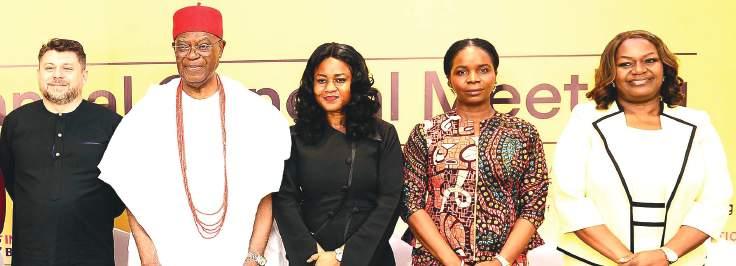
IBPLC 48th AGM...
L-R: Managing Director, International Breweries Plc (IBPLC), Carlos Coutino; Chairman, Board of Directors, IBPLC, HRM Nnaemeka Achebe; DCSL Corporate Services Ltd Representative,
Independent Non-Executive Directors, IBPLC,
Adeniyi: Customs Seizures Making Nigeria Safer, Lunches
Reputation Management Guide to Boost Service Image
James Emejo in Abuja
Comptroller-General of Customs, Bashir Adewale Adeniyi, yesterday, declared that the Nigeria Customs Service (NCS) had recorded unprecedented seizures, which had made the country safer for Nigerians.
Speaking at the launch of the Reputation Management Handbook for Officers and Men of the service in Abuja, Adeniyi said customs was
FG
taking its responsibility in trade facilitation ecosystem seriously.
He said, “Nothing gladdens me more than the fact that the whole world is taking notes of the advances that we are making, the impact that trade facilitation initiative is making in the system.
“This is the position that we now have to defend in the years ahead.
“We must reposition ourselves to be seen as the government agency
that is constant, that is respected, and that is responsible.”
The comptroller general reaffirmed the commitment of the NCS, under his watch, to give the women gender the opportunity to be part of the organisation and take leadership positions.
He said the handbook served as a practical guide for officers and men of the service on how to consciously protect, promote, and project the
image of the NCS at all times.
He said, “In an increasingly interconnected and informationdriven world, the image of any public institution has become a critical asset.
“For the Nigeria Customs Service (NCS), whose operations span trade facilitation, revenue generation, and national security, maintaining a credible, professional, and trustworthy reputation is essential.
Appeals Acquittal of Former NHIS Boss Over $2.2m Money Laundering Case
Wale Igbintade
The federal government has appealed a judgment of the Federal High Court that acquitted former Executive Secretary of the National Health Insurance Scheme (NHIS), Dr. Femi Thomas, of multiple counts of money laundering.
In a July 24, 2014 ruling, Justice Ayokunle Faji discharged and acquitted Thomas on five of the six counts filed by the Economic and Financial Crimes Commission (EFCC), holding that the agency failed to prove its case beyond reasonable doubt.
The court, however, convicted him on one count of violating Nigeria’s cash transaction limit law and ordered the EFCC to return the seized funds to Thomas within 14 days, subject to payment of a N10 million fine.
“The transaction in count five was not found to be a crime, only that it exceeded the cash threshold.
“I, therefore, order the prosecution
to return the money to the defendant within 14 days,” the judge ruled.
Justice Faji noted the EFCC admitted during trial that it did not investigate several claims made by the defendant and had not established unlawful enrichment against him.
The judge however found Dr. Thomas guilty on count five, which involved making a cash payment exceeding the N5m threshold allowed by law.
He was sentenced to pay a fine of N10m in place of imprisonment.
Dissatisfied with the decision, the EFCC, through a notice of appeal filed by E.E. Iheanacho (SAN) and a team of lawyers, urged the appellate court to set aside the acquittals.
The agency is asking the court to convict Thomas on counts 1, 2, 3, 4, and 7 of the amended charge.
The EFCC is also praying the court to order the forfeiture of $2,198,000 (about N433 million) recovered from him to the federal
government.
In its grounds of appeal, the EFCC argued that the trial court relied on “imaginary and fanciful doubts” to absolve Thomas, despite what it described as clear evidence of unlawful enrichment.
It contended that Thomas failed to satisfactorily explain the significant increase in his assets while serving as a public officer, as required under Section 140 of the Evidence Act 2011, Section 19(5) of the EFCC Act, and Section 82 of the Lagos State Criminal Law 2011.
The EFCC also posited that the trial judge erred by dismissing the adequacy of its investigations and rejecting documentary evidence, including audited financial statements, which it said contradicted Thomas’ explanations.
Besides, the EFCC stated that Safeline Agro Business Ltd, allegedly owned by Thomas, declared a pre-tax profit of only N3.9 million in 2014, yet
Healthcare Worker Shortage: Sokoto Introduces Mandatory Rural Service for Medical Professionals
The Sokoto State Government has launched a mandatory two-year rural service program for all medical professionals sponsored by the state.
This initiative aims to tackle the severe shortage of healthcare workers in rural areas and ensure equitable healthcare delivery across the state.
Commissioner for Health, Dr. Faruk Umar Abubakar, is spearheading the program, which requires doctors, nurses, pharmacists, and allied health workers trained by the state government to serve in rural health facilities for a minimum of two years.
The decision follows a comprehensive needs assessment that revealed a significant imbalance in healthcare staffing, with a concentration of professionals in urban areas and a severe shortage in rural communities. According to Dr. Abubakar, the state government is not only posting healthcare workers to rural areas but also providing incentives to motivate them. These incentives include better pay, improved facilities, and security support.
“We are confident many healthcare professionals will choose to stay in rural areas even after their mandatory service ends, due to the good working
environment and incentives,” Dr. Abubakar said.
The state government has approved a 10% salary bonus for rural service, aiming to encourage compliance and boost morale.
This initiative is part of a broader effort by the administration of Governor Ahmad Aliyu to revamp Sokoto’s healthcare system.
Notably, the state government now pays medical and health workers a remuneration package that matches the federal government’s salary scale.
This development has been praised by organized labour and medical professionals nationwide.
purportedly generated $2.2 million the same year, an explanation the EFCC called “unreasonable and unsatisfactory.”
The appellant argued the lower court wrongly “picked and chose” between inconsistent pieces of evidence from Thomas instead of rejecting them and accepting the prosecution’s case.
The EFCC further faulted the court for failing to give weight to Thomas’ asset declaration forms (Exhibits G1–G12) submitted to the Code of Conduct Bureau, which it said undermined his claims of lawful income sources.
No date has been fixed for the hearing of the appeal.
“It is an internal reference tool that aligns with our corporate vision, ethics, and communication values. Let this be your compass in decisionmaking, stakeholder engagement, and public-facing activities henceforth.”
Adeniyi stated that the objective of the guide was to allow officers and men to have a clear understanding of what their roles and responsibilities were.
He said, “It is an opportunity for every customs officer to be part of the project to revise the history of the customs. We want to launch a new face of customs.”
According to him, the idea is to transcend the traditional mandate of revenue generation and contribute to improving the country’s ease of doing business climate.
The CGC said, “The reputation of the Nigeria Customs Service is a national asset. Every officer is a brand ambassador. By internalising the values, ethics, and standards outlined in this guide, we can collectively project a service that is modern, transparent, responsive, and globally respected.
“Let us all rise to this call with renewed professionalism and patriotism.”
President, Nigerian Institute of Public Relations (NIPR), Dr. Ike Neliaku, commended NCS for boldly institutionalising reputation management within the agency.
Represented by NIPR Vice President, Professor Emmanuel Dandaura, Neliaku stated that the unveiling of
the handbook was not a symbolic gesture but a practical demonstration that customs did not treat reputation as a mere buzzword, but as a vital asset that every organisation must nurture to thrive in today’s competitive environment.
Neliaku described Adeniyi as an embodiment of sterling professional reputation, citing his track record of dedication, discipline, and reformoriented leadership.
He said the decision to launch a formal guide for officers’ conduct under Adeniyi’s watch was a reflection of his belief in the power of perception, credibility, and institutional integrity.
The NIPR president disclosed that in a recent nationwide reputation perception survey conducted by the institute, the Nigeria customs scored significantly high marks in the way it had been discharging its core mandates.
According to him, this positive outcome is an encouraging sign that the agency’s reforms are not only working internally but are also resonating with the public. He expressed confidence that with the handbook, customs officers would be better equipped to represent the service with a strong sense of responsibility, professionalism, and ethical conduct.
Neliaku assured of NIPR’s continued partnership with the service amid ongoing effort to reshape the country’s image through responsible institutional behaviour.
As part of its 2025 Seplat Teachers Empowerment Programme (STEP), The NEPL/Seplat Energy Joint Venture has onboarded 650 teachers and Chief Inspectors of Education (CIE) in Edo and Delta States.
This began with a two-day workshop in Benin City, with sessions expected to mark the transformative journey of teachers upskilling and professional development, with both Edo and Delta States having 325 participants each.
The 650 participants were drawn from over 4,666 applicants who took part in an online selection process.
The onboarding workshop is the critical foundation phase where collaborative dynamics, programme orientation, and android tablets are seeded ahead of the four-month virtual training and mentorship
programme, which leads to Microsoft certification.
The Seplat JV provides the participants with data throughout the duration of the training for seamless internet access.
At the first leg of the workshop held in Benin City, the Edo State capital, Chioma Afe, Director of External Affairs & Social Performance at Seplat Energy, welcomed the new cohort, encouraged them to take the training seriously and outlined the strategic significance of both phases of the training.
Afe, who presented a paper on ‘Communication for Change – Teachers as Agents of Change’, delighted the participants with her background and shared a strategic communication code, “the 7-c’s of communication”, including clarity, conciseness, consideration, completeness, courtesy, concreteness,
and correctness, with them. The code was vital as she asserted that, “A teacher is a professional who facilitates learning, guiding students to acquire knowledge, develop competencies, and grow intellectually and emotionally.” She inspired the participants to embrace their roles as agents of change, grab the opportunity with both hands and improve themselves continuously both for personal benefits, for the good of the students and the society.
On his part, the representative of Edo State governor, Senator Monday Okpebholo, Edo State Commissioner for Education, Dr Paddy Iyamu commended the Seplat JV for the initiative and stimulated the participants, whom he described as privileged as “these are the kinds of lecture packages people go to Dubai and pay top dollar for”.
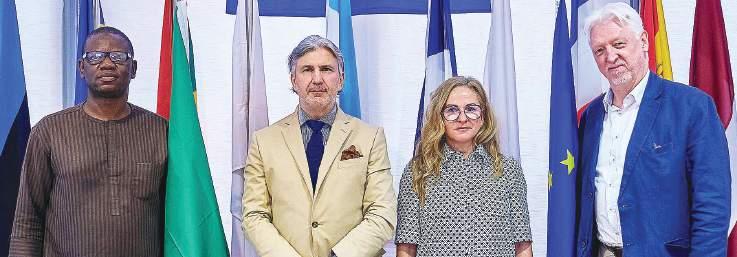
GET. invEST niGEria inauGural STEErinG CommiTTEE mEETinG...
Ex-MD of Concord Newspapers and Wife of the Late MKO Abiola, Doyin, Passes at 82
The first former female Managing Director and Publisher of the National Concord newspapers, and wife of the late Chief MKO Abiola, Dr. Doyin Abiola, has passed.
She died yesterday at about 9.15pm. She was aged 82 years. She was also the first Nigerian woman to be an editor of a Nigerian national daily.
The deceased started work with the Daily Sketch Newspaper in 1969, during which she started a column in the newspaper called Tiro, where she addressed sundry issues of public concern, including gender matters.
In 1970, she left Daily Sketch Newspaper and traveled to the United States to pursue a master’s degree programme in Journalism.
Upon her return, she was employed as a Features Writer at Daily Times and rose to become the Group Features Editor. She later went to New York and obtained a PhD in communications and political science in 1979.
After her PhD programme, she returned to the Daily Times and was deployed to the editorial board, where she worked with other experienced editors like Stanley Macebuh, Dele Giwa and Amma Ogan.
It was, however, to be a short stay as the newly formed National Concord newspaper invited her to be its pioneer daily
editor. She then moved to be an editor of National Concord.
She was promoted to be the Managing director/editor-in-chief in 1986, and became the first Nigerian woman to become the editor in chief of a daily newspaper in Nigeria.
Mrs. Abiola’s career at National Concord Newspaper spanned three decades. She also served in various capacities in the media industry in Nigeria.
She was the Chairperson of the Awards Nominating panel at the first Nigerian Media Merit Award to be hosted in the country, and also a member of Advisory Council, Faculty of Social and Management Sciences, Ogun State University.
She was a recipient of Diamond Awards for Media Excellence (DAME) for her lifelong devotion to advancing the frontiers of knowledge and
strengthening the media as a pillar of democracy.
The Trustees of DAME unanimously approved her selection as a recipient of its Lifetime Achievement Award at the 24th DAME Ceremony.
She was the second woman to receive a DAME Lifetime Achievement Award after Mrs. Omobola Onajide) and was later granted Eisenhower Fellowship in 1986.

ARD Raises the Alarm over Low Awareness on Hepatitis Disease in Nigeria
James Sowole in Abeokuta
Association of Resident Doctors (ARD), Federal Medical Centre, Abeokuta (FMCA), has raised the alarm over a low level of awareness of Hepatitis disease in Nigeria.
ARD reiterated the need for Nigerians to go for hepatitis screening, describing the viral infection as a silent killer.
The association advised that people should not wait till they get sick before going to the hospital for medical check.
ARD said this during a medical outreach it organised, in conjunction with Babarinde-Adegboyega ARD (BAARD) Concept of the hospital.
The medical outreach on hepatitis was held at Odo-eran, Gbonagun, Abeokuta, where members of the
public were enlightened on the viral disease that currently has no cure.
Addressing members of the public, President of ARD FMCA, Dr Adegboyega Omogbolahan, said the outreach, which was to mark the World Hepatitis Day, was an annual event to showcase participation and sponsorship in line with the core beliefs of BAARD to improve lives of the general public.
He said this was being done through medical outreach programmes, health talks, medical consultations, treatments and prevention strategies including vaccination.
Omogbolahan spoke extensively on the precarious nature of Hepatitis B and C infection and the need to get tested.
He said Nigerians needed adequate
Popular Activist, Martin Otse Stages Walk to Raise Awareness About Insecurity in Anambra
David-Chyddy Eleke in Awka
Popular Activist, Martins Otse, also known as Very Dark Man has held a peaceful walk in Awka, the capital of Anambra State to raise awareness about the level of insecurity in the state.
The activist had last weekend announced his arrival in Anambra State, stating that the walk was over the recent kidnap and killing of a young businessman, Mr. Martins Onyekere, the CEO of Fish Magnet, a company that deals in fresh and dried fish.
During yesterday’s walk, thousands of youths all dressed in black attire stormed the streets with the activist, rallying at popular Aroma Junction before moving to Ring Road Junction, Awka,
where the slain businessman had his office.
Before the protest, police authorities in Anambra had warned the activist against using the protest to cause a breach of peace.
A press release by the state police command’s spokesperson, SP Tochukwu Ikenga read: “The Commissioner of Police, Anambra State Command, CP Ikioye Orutugu has issued a stern warning to social media influencer Mr. Martins Vincent Otse popularly known as VeryDarkMan.
“He cautioned him against making statements or taking actions capable of inciting tension or breaching public peace within the state.”
He advised the activist to allow the family of the deceased to mourn
their son in peace, without holding a gathering that can upset in the peace of the state.
“CP Orutugu urged residents and visitors alike to go about their lawful duties without fear, reaffirming the Command’s commitment to maintaining law and order. He further advised social media users and public figures to exercise restraint and avoid spreading misinformation or making inciting remarks.”
As at the time of filing this report, the protest was still on, and was also joined by SP Tochukwu Ikenga, the spokesperson of Anambra State Police Command, Special Adviser to Governor Chukwuma Soludo on Media, Mr. Ejimofor Opara and several other government representatives.
information on the cause of the dreaded disease, how to avoid it, and how people could get screened for hepatitis in various health facilities.
With Hepatitis B prevalence in between 8.1-9.5 per cent of the population, Omogbolahan said about 20 million Nigerians were estimated to be affected with the hepatitis B virus while about one per cent, 2.2 million, was estimated with hepatitis C.
According to him, viral hepatitis remains a disease of public health importance. He said there was limited global progress in addressing the scourge with increasing vertical transmission (mother to child transmission) as well.
Omogbolahan said, “There is a low level of awareness, under-reporting, under-diagnosis, and under-treatment of hepatitis B and C in Nigeria.
“I call on the private sector to explore mutually beneficial partnerships with the government and invest their resources in fighting viral hepatitis.
“I urge all Nigerians to work
together to eliminate this silent killer, viral hepatitis. Go to any health facility and get screened, it is a simple rapid test, taking less than five minutes.”
Speaking on the 2025 World Hepatitis Day, Omogbolahan said the organisation decided to collaborate with the Federal Medical Centre, Abeokuta, ARD, with support from the Ogun State government as part of its contribution to create awareness on the dreaded disease.
He said the choice of hosting the event at the Odo-Eran market in Obantoko, Odeda Local Government Area of Ogun State, was to focus on market men and women, infant vaccination, prevention of mother-to-child transmission, blood and injection safety, harm reduction and diagnosis and treatment.
The idea, according to him, was to do the checks to be sure if a person was a carrier or not. Though being a carrier, in his words, was not a death sentence. He said all an infected person needed to do was visit the hospital
and commence treatment and if not, get a vaccine.
He stated, “Hepatitis is a disease of the liver, it has different types, Hepatitis A, B, C, D and E. “Hepatitis B is the deadliest and stubborn. But with vaccine and regular check up in the hospital, one can live with it, though till this very moment, it has no cure.”
The medical doctor said BAARD will need the collaboration of a broad range of stakeholders in order to take the message and awareness to the grassroots.
He said it was necessary to check one’s status to start early treatment, adding that the disease is manageable. He maintained that not knowing one’s status was highly risky.
Other speakers at the event were Dr. Issa Kamorudeen Jimoh from CMPC, who encouraged people to participate in the exercise by advising them to check their Hepatitis status so as not to infect others and to be safety conscious.
Atiku Hails Yobe Student Named World’s Best in English Proficiency
Chuks okocha in Abuja
Former presidential candidate of the Peoples Democratic Party, Atiku Abubakar, has congratulated a student of Nigerian Tulip International College in Yobe State, Nafisa Aminu, for emerging as the world’s best in English at the 2025 TeenEagle Global Finals.
Atiku, in a post via his X handle on Tuesday, described Nafisa’s outstanding performance as a shining example of what the Nigerian girl-child can achieve when given
access to quality education and a supportive environment.
“Nafisa’s outstanding success serves as a powerful testament to the limitless potential of the Nigerian girl-child when provided with quality education and a supportive environment,” Atiku said.
The former Vice President stressed the importance of investing in the education of girls, noting it goes beyond fairness and equity, but is a “strategic necessity for national transformation.”
“Let us, as a community, commit
to dismantling every barrier that prevents the girl-child from realizing her full potential,” he added.
The 17-year-old from Yobe State was named the World Best in English Language Skills at the 2025 TeenEagle Global Finals held in London, United Kingdom. The Teen Eagle competition is an internationally recognised contest that tests English proficiency, critical thinking, and communication skills, attracting students from both English-speaking and non-Englishspeaking nations.


Location: Any City, in Nigeria




Distributors.Panigeria.com

The deadline for submission to Distributors.panigeria.com is September 4th, 2025.
For further enquiry, please call any of the following: 08025317162 (Tope) +2347086419445 (Ololade) A leading pan-Nigeria alcohol drinks company is seeking distributors to take advantage of market opportunities in fast- growing and profitable



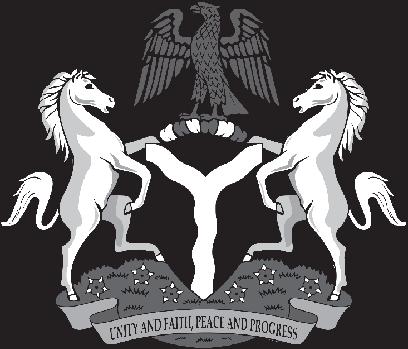
FEDERAL MINISTRY OF WORKS HEADQUARTERS, MABUSHI, ABUJA
PRESIDENT TINUBU TREATING THE SOUTH EAST REGION WITH FAIRNESS AND EQUITY IN ROAD AND BRIDGE INFRASTRUCTURE DEVELOPMENT
1. My attention as the Honourable Minister of Works has been drawn to a wrong and misleading statement on social media by one Mr Linus Anagboso (D-Big Pen) captioned: “The Politics of Asphalt: Why is the South-East missing from the map?”
2. I understand that politics is now in the air, and some people's chosen path is to deceive gullible members of the public, look good before their people as one fighting for them, and close both eyes, pretentiously, over the great and selfless infrastructure development Mr. President is doing all over the nation.
3. I have directed all Ministry of Works' Zonal Directors back to sites in all the six (6) geopolitical zones across the country to compile all inherited but ongoing projects and all new ones, so that Nigerians will appreciate the tremendous works that Mr President is doing in all the regions, irrespective of those that voted for him and those that did not. Mr President is using fair distribution of infrastructure to reunite Nigerians and renew their hope and only those who open their eyes will see the light of change in Nigeria.
4. In addressing specifically this misleading information and for the record, Mr President has four (4) Legacy Projects, and they cover the six geopolitical zones with the South East zone well captured within the Third Legacy project spanning Cross River-Ebonyi-BenueKogi-Nasarawa-FCT, totalling 465km x 2 with South East covering 231.64km x 2 and 231.64km x 1 for ₦445.8 billion, already awarded and work going on. Mr President has already paid ₦108 billion. What happened in the Federal Executive Council (FEC) on 31st July 2025 was a review of that corridor from 118kmx 1 to 231.64km x 1 for ₦445.8 billion. This misleading writer chose to change the narrative of my Press Briefing, after the Federal Executive Council (FEC), on the Trans Sahara Section 1 (Ebonyi State to Benue State border) – 123.64km at ₦445.8 billion, and, deliberately, chose to call it OYO-BENUE BORDER ROAD to deceive and incite Nigerians.
5. I demand that he correct the information, immediately, even if he fails to apologise.
6. Where was the writer when President Tinubu, GCFR decided to treat the South East fairly in road i n f r a s t
administration, 90% of abandoned projects, some awarded as far back as 2013 were all revived and all are now ongoing. Where is the appreciation for huge ongoing works on the 2nd Niger Bridge Access Roads, 2A, in Delta State, which is valued at ₦146 Billion and 2B, in Anambra State, which is valued at ₦176 Billion, the Enugu-Onitsha Road -208km ( MTN Tax Credit, which is valued at ₦ 202 Billion, and CBC (Nig.) Limited completing the remaining section at ₦150 Billion of which ₦45Billion was r e l e
e d l a s t w e e k ) , E n u g u – P
r t H a r c o u r t Expressway in four (4) sections, Enugu-Abakaliki, Afikpo-Abia-Imo, Onitsha-Owerri-Aba, Aba-Ikot Ekpene, Umuahia to Ikot Ekpene roads etc.
7. I request the South East people to rise in support of President Bola Ahmed Tinubu, GCFR because he has demonstrated love and fairness to the people of the zone. We must not be deceived again. Mr President must have the votes of the South East up to 90% to cement this relationship. Enough of darkening council without knowledge in the South East. We must rise to educate our people. If we want to be President, we must avoid the politics of hate, misinformation, and sentiments. We must support other zones and with God, one day others will support us. Mr President must be supported to complete his tenure of 8 years, which all regions are benefiting from. One day we will be number one but not in 2027. I will vocally continue to stand against any mischief to deceive our people. We are known for hard work and love not hate.
8. I c o m m e n d o u r L e a d e r s , t h e S o u t h E a s t e r n Governors, for their support and the great works they are doing for our people. I urge our people to please support them, along with our dear President, for a second tenure in their respective offices.
NEVER AGAIN SHALL WE BE DECEIVED!

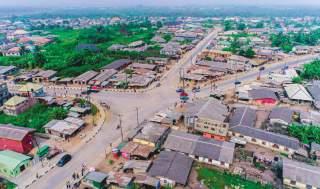


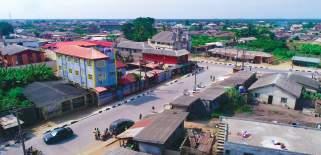
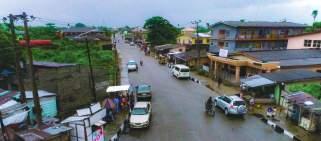
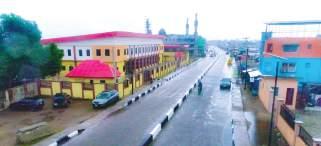
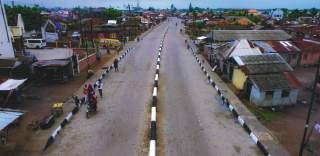
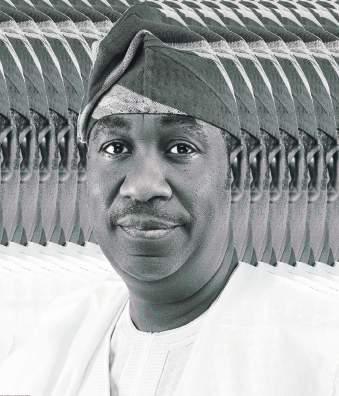
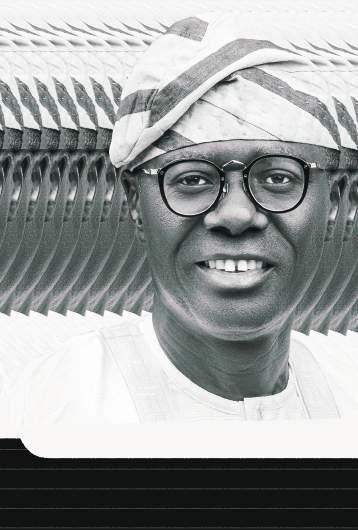
Acting Group Politics Editor DEJI ELUMOYE
Email: deji.elumoye@thisdaylive.com
08033025611 sms only
2027: Will Tinubu Align with Kwankwaso to Thwart ADC’s Threat?
Notwithstanding President Bola Tinubu’s political sagacity, the array of bigwigs being paraded by the opposition coalition on the platform of african Democratic Congress appears to be a major political obstacle to the ruling all Progressives Congress. However, forming a strategic political alliance with the National Leader of New Nigeria Peoples Party, Senator Rabiu Kwankwaso, may be a master stroke by aPC to curtail the threat of the opposition ahead of the 2027 poll. Adedayo Akinwale writes.
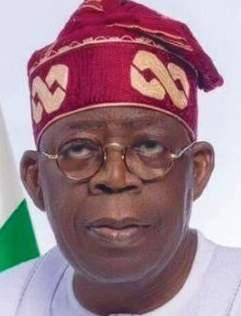
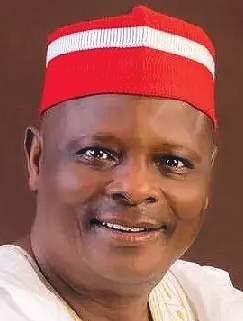
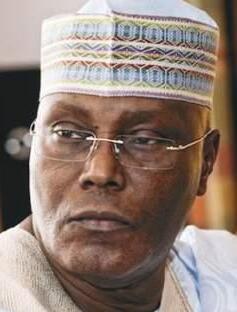
As political gladiators and opposition leaders close ranks and realign ahead of the 2027 general election, the question on the lips of many is who inherits former President Muhammadu Buhari’s 12 million bloc votes in the North following his recent demise.
Though the 2027 general election is about two years away, the political activities that will culminate in the presidential election have already started.
The recent unveiling of the African Democratic Congress (ADC) as the platform of choice adopted by the opposition leaders to challenge President Bola Tinubu’s reelection has changed the political dynamics in the country.
Without mincing words, things are no longer at ease in the ruling All Progressives Congress (APC) due to the threat posed by the party. While the ADC parades political bigwigs that are not strange to Nigeria’s political terrain, the threat posed by the party is a major headache for both the president and the ruling party.
Some of the arrow heads of the opposition coalition are: former Vice President Atiku Abubakar; former Governor of Kaduna state, Mallam Nasir El-Rufai; former Minister of Transportation, Hon. Rotimi Amaechi; former APC National Vice Chairman, North West, Dr. Salihu Lukman; ADC’s interim National Chairman and former President of the Senate, David Mark; former Cross River state Governor, Senator Liyel Imoke and his Osun state counterpart, Ogbeni Rauf Aregbesola; among others.
A close look at some of the leaders of the opposition coalition showed that they have been around the corridors of power for more than two decades and most of them contributed in no small measure to the current predicament the country finds itself in. One is forced to ask whether the coalition is formed with the best interest of Nigeria at heart or because of the personal interests of the opposition leaders.
While some of them are not without baggage, the threat posed by opposition leaders who have decided to combine forces together are real.
The berth of ADC as the platform of choice of the opposition leaders prompted the President to take a hard decision to sacrifice the former National Chairman of the party, Dr. Abdullahi Ganduje. The move was part of Tinubu’s political exigency plan to desperately form an alliance with the former Governor of Kano state, Senator Rabiu Kwankwaso. Ganduje was subsequently replaced by the former Minister of Humanitarian Affairs, Disaster Management and Social Development, Prof. Nentawe Yilwatda.
It’s a known fact that if Ganduje remains at the helm of affairs as the national chairman of the ruling party, Kwankwaso’s defection to the ruling party won’t come to fruition, considering the animosity between the duo.
As far as the North is concerned, the only politician that can command the kind of followership like Buhari is Kwankwaso. His Kwankwasiya movement that he has nurtured over the years has metamorphosed into
a strong political force in the North.
To break the ranks of the opposition coalition, Tinubu does not need a soothsayer to know Kwankwaso will no doubt be a good asset for his re-election in 2027.
Surprisingly, despite Ganduje’s resignation, Kwankwaso has refused to defect to APC as expected. His delay which was already causing apprehension for the President was made worse when he launched a tirade of attacks last week, accusing the administration of President Tinubu of ignoring the north.
“Let me advise the federal government on the distribution of federal resources. From the information available to us, it’s like most of the national budget is now tilting in one direction in this country.
“Let me advise those who are struggling by all means to take everything to remember that some of the issues that we have in this part of the country today have to do with the lack of enough resources and mismanagement of the little that comes in. That is why we have insecurity, we have poverty and so on. It is happening here mainly, but like a desert, it would go everywhere,” Kwankwaso had said at the Kano State Stakeholders’ Dialogue on the 2025 Constitutional Amendment.
But in a swift response, the Special Adviser to the President on Media and Public Com-
As the 2027 elections draw near, the political establishment should be reminded that the north will remember who spoke for them and who kept silent. It will remember who stood tall and who bowed so easily. Kwankwaso may not be everyone’s favourite politician, but he remains one of the few whose politics is powered by principle, not puppetry. He is living proof that courage is not dead in nigerian politics—it is just rare.
munication, Mr. Sunday Dare, described the allegations as wrong. He listed 43 projects spanning the health, road, rail/metro, agricultural, waterway/trade, energy/gas, housing and national programme sectors being executed or already in place in the north.
Following Kwankwaso’s recent attacks on his administration, rightly or wrongly, Tinubu took matters to his hand last week when he met with Hon. Abdulmumin Jibrin, a close ally of Kwankwaso, who is also the national leader of the opposition New Nigeria People’s Party (NNPP).
Jibrin, who represents Kiru/Bebeji federal constituency of Kano State in the House of Representatives, held a closed-door session with the president at his office in the Presidential Villa, Abuja. However, he refused to give details of the meeting while briefing the State House correspondents.
“I came to see Mr. President and, of course, the long-term friendship that the president has also enjoyed with the national leader of the NNPP, Rabiu Musa Kwankwaso. So I do not think it’s anything surprising to see me here to see the president, to greet him, check on him, and also discuss some national issues that I believe are in the interest of the people of this country,” he had said.
With the cloud of uncertainty hovering around the ruling party, it is no-brainer that Tinubu needs to form a political alliance with Kwankwaso ahead of the 2027 elections. With Buhari’s 12 million bloc votes up for grab in 2027, embracing a man like Kwankwaso remains politically expedient — not for optics, but for what he represents — a rare breed of political courage, and a deep well of influence among the people. His grassroots appeal and followership are unmanufactured. It was earned through years of service, sacrifice, and speaking when others chose silence.
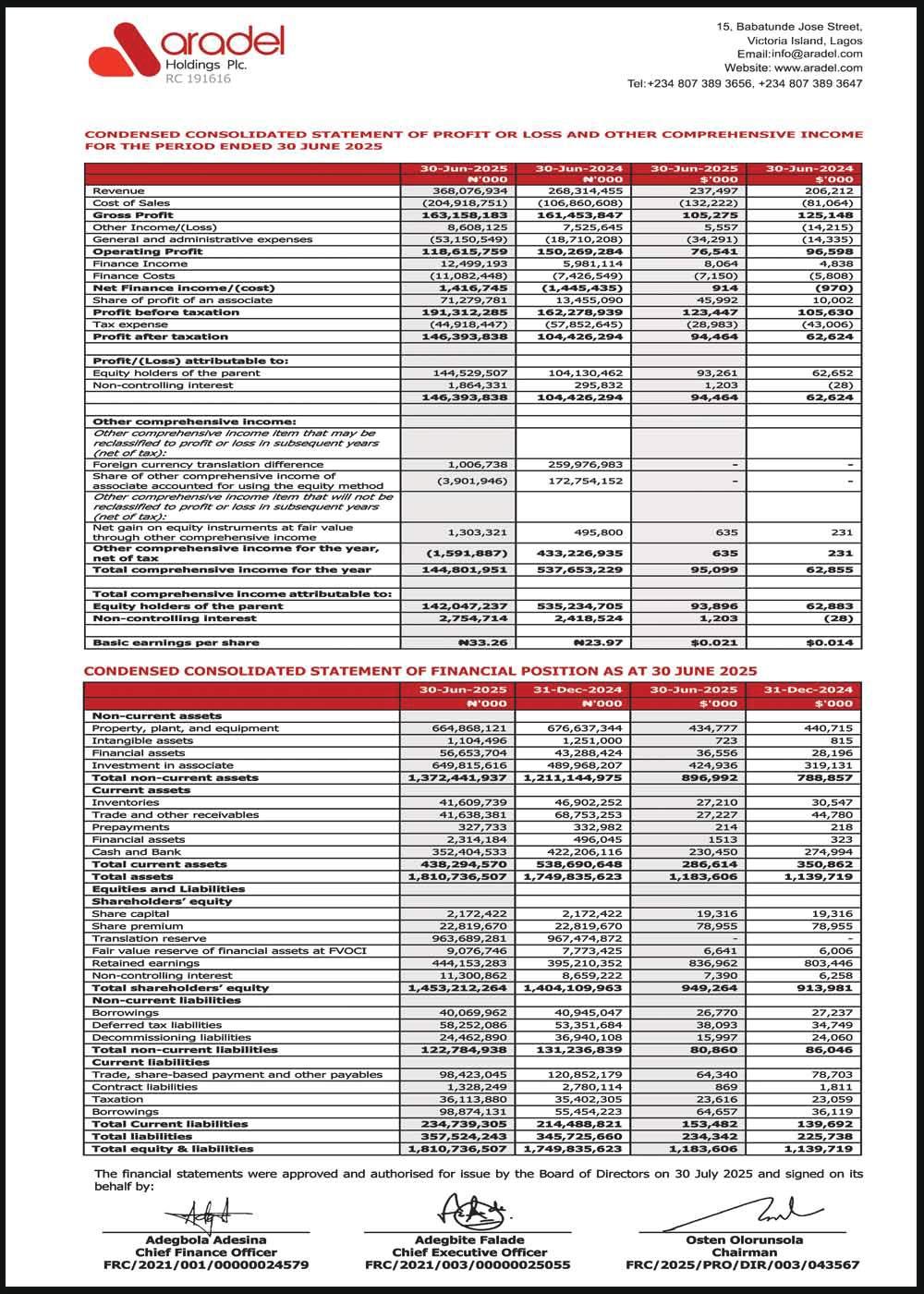
www.thisdaylive.com


opinion@thisdaylive.com
TARIFF ON AFRICAN RESOURCES AND CAPITAL OUTFLOW
VICTOR C. ARIOLE argues against tariff imposition on African nations

DIRECT MOBILE CONNECTIVITY TO SATELLITE
Ease of mobile communications is the rise, argues SONNY ARAGBA-AKPORE


MUKI OSAKA argues that a hybrid work model appears the most sustainable

THE FUTURE OF WORK
While it may seem a cliché to reference the 2020 pandemic, its enduring influence on organizational strategy, particularly in relation to the future of work, remains profoundly relevant. Today, job candidates routinely inquire:“Does the organization offer a hybrid work model?”, “Is this role fully remote?”, or“What type of support exists for remote employees?”. These are no longer peripheral questions; they are central to talent attraction and retention in a highly dynamic labour market. At the same time, organizations, non-profits included, are grappling with a fundamental question: What work arrangement best supports operational efficiency and mission delivery? While many private-sector entities quickly pivoted to remote work during the pandemic, NGOs, particularly those operating in developing regions such as Nigeria, encountered a more complex set of realities. The abrupt shift forced many to adopt unfamiliar digital tools and processes while contending with limited infrastructure and constrained resources. Now, as the world settles into a new equilibrium, NGOs face a strategic crossroads: Should remote work become a permanent fixture? Should organizations return fully to in-person models? Or is a hybrid structure the most effective path forward? This article examines the question through the lens of Nigerian NGOs, exploring the advantages, challenges, and considerations necessary to craft an effective, impact-oriented workforce model in a sector where value is measured not by profit, but by purpose. Rethinking the Value Proposition NGOs in Nigeria serve as critical connectors, delivering essential services in areas such as health, education, and social justice, often reaching individuals and communities that lie beyond the reach of formal systems. However, operating in a challenging environment marked by infrastructural deficits, security risks, and high stakeholder expectations presents unique demands. During the pandemic, NGOs were compelled to embrace remote work with limited preparation. Technology became an enabler, but the sector’s limited resources and external dependencies made this adaptation uneven. Today, the question is no longer about necessity but about strategic value: Can remote work offer a sustainable competitive advantage in delivering impact? The traditional value proposition between employers and employees is evolving. Increasingly, prospective employees view flexible work arrangements as a fundamental component of organizational value. For NGOs, often constrained by restrictive budgets and operational expectations, striking the right balance between flexibility, accountability, and efficiency has become both essential and complex. This is no longer a binary choice of convenience. It is a conversation about strategy, sustainability, organizational culture, and employee experience, all within the framework of development work.
The Case for Remote Work. Remote work offers a significant opportunity to reduce overheads. Given that many NGOs operate on lean budgets funded by their founders, third party donors or partners, the ability to cut costs on office rent, utilities, logistics and other overhead costs can redirect critical funds toward programmes and service delivery. In highly commercialised areas such as Lagos and Abuja, where real estate

is costly, remote work models offer a financially prudent alternative, particularly for administrative or support roles not requiring regular field or inperson presence.
Flexibility and Employee Well-being: Flexible work arrangements contribute to improved work-life balance and mental health, key factors in employee productivity and retention. In a sector where burnout is prevalent, remote work offers a mechanism to foster sustainability and staff engagement. Digital Transformation and Innovation: Remote work catalysed digital transformation across the NGO space. Tools like Zoom, Microsoft Teams, Google Workspace, Monday.com, Canva, and SharePoint have become integral to operations, enabling real-time project management, documentation, and collaboration. These tools not only enhance internal efficiency but also position NGOs for greater resilience, ensuring continuity in times of crisis or disruption.
The Case Against Remote Work.
Nature of NGO Work: Field presence is essential. Unlike many private-sector roles, a substantial portion of NGO work depends on inperson engagement. Activities such as communityneed or impact assessments, capacity-building workshops, and relief distribution often require direct interaction. Physical engagement fosters trust, a critical element in achieving development outcomes. Virtual communication, while helpful, cannot replicate the nuance and relational depth that in-person interactions build.
Threat to Organizational Culture and Cohesion: Prolonged remote work can dilute shared values, collaboration, and team spirit, the bedrock of NGO effectiveness. Peer support, spontaneous problemsolving, and mentorship are more difficult to foster in virtual environments. Additionally, onboarding new staff remotely may limit cultural assimilation, reduce role clarity, negatively affect transition experience, and may hinder long-term retention.
Infrastructural and Technological Constraints: Inconsistent power supply, unreliable internet connectivity, and limited access to IT equipment present formidable challenges to effective remote work in Nigeria. These barriers can compromise productivity and morale. Accountability and
Performance Monitoring: Donor-funded organizations must maintain high levels of transparency and performance tracking. Remote work complicates supervision, especially for field or project-based staff. Without robust systems for monitoring and evaluation, organizations may struggle with compliance and accountability. Finding the Middle Ground: Embracing a Hybrid Model. Given the diverse nature of NGO functions, a hybrid work model appears to be the most balanced and sustainable solution. This approach merges the flexibility of remote work with the interpersonal benefits of in-person collaboration and field engagement. For instance, administrative teams could work remotely for part of the week while coming into the office for meetings or planning sessions. Program staff could work from the field or site, using digital tools to communicate with other team members. Leadership could set performance targets based on outcomes rather than hours logged, enabling results-driven flexibility. Alternately, teams could work remotely based on scheduling which provides basis of fairness and allows teams plan adequately for in-person and remote meetings and deliverables. However, for hybrid models to thrive, several enabling factors must be addressed: One, Understanding the strategic goal: Understanding the mission, mandate, goals and objectives assists in defining what work arrangement may suit the NGO. Two, Culture Alignment: Organizations must foster a culture that supports agility, innovation, and intentional leadership. Three, Clear Policies: Policies covering the Human Resource (HR) framework must define eligibility for remote work, performance expectations, and communication standards. Four, Capacity Building: Staff need training in digital tools, remote collaboration, cybersecurity, and time management. Five, Infrastructure Investment: Equitable access to laptops, internet support, and power alternatives is essential. Six, Stakeholder Engagement: Boards, funders, and partners should be engaged in dialogue around operational shifts to maintain trust and transparency.
The decision to work from home or not is no longer a temporary measure, it is a defining issue in the future of work, even within impactdriven sectors like NGOs. For Nigerian NGOs, the decision involves more than just convenience or cost; it affects how strategies are planned, how teams operate, and how impact is measured. There is no universal answer. NGOs like forprofit organizations must evaluate their overall strategic goal, staff composition, funding structures, and technological readiness to make informed choices. What is clear, however, is that flexibility, adaptability, and intentionality will be key to driving workforce efficiency and sustaining impact in the years ahead. At the Aig-Imoukhuede Foundation, we understand these dynamics and have wholly embraced the model that best works for us with the support of the adequate tools for efficiency. The future of NGO work in Nigeria may not be entirely remote or entirely on-site, but it must be smart, inclusive, and value-driven. Osaka is Director, Enterprise Management and Shared Services, Aig-Imoukhuede Foundation
Traditional Ruler Refutes Land Grab Allegations at Federal University, Iyin Ekiti
Gbenga Sodeinde in Ado Ekiti
The Oluyin in Council, headed by His Royal Majesty, Oba Adeniyi Ajakaye III, the Oluyin of Iyin-Ekiti Kingdom, has described the land grab allegations levied against his throne and others, such as Senator Opeyemi Bamidele, by Dr. Sunday Oyeyemi as fake and malicious.
He also described the claim as a cheap propaganda aimed at distracting and sabotaging the siting of the Federal University of Technology and Environmental Sciences in the town.
The Oluyin-in-Council, rising from a meeting on July 31, held at Iyin’s Palace, frowned upon the fake and unverified media reports in circulation regarding the University of Technology and Environmental Sciences, Iyin Ekiti.
The leadership of the Iyin Ekiti traditional institution condemned the role played by Oyeyemi in relation to the negative media reports, as well as the unnecessary protests he orchestrated against the progress of the Iyin Ekiti community as a whole.
Corroborating the earlier stand, the Head of Okelawe Quarters, High Chief Olubobokun Ibikunle, promised that those currently fomenting trouble in the town, and whose farms have been ceded to the university, would soon be compensated.
The representatives of the Awolu, Ajana, and the Elemo families, whose land was also acquired, called on Dr. Sunday Oyeyemi to further desist from tarnishing the image of the family and that of the community, con-
sidering the resolutions already made, to the knowledge of Chief Ganiyu Badmus, who doubled as the Adamo of Okelawe quarters.
In a turn of events, some of the people who spoke during the purported protest have apologised to the Oluyin in Council and the entire community. They claimed to have been misled by Dr. Sunday Oyewole, who did not explain his motive behind the protest.
The Okelawe community spokesperson, Chief Jinadu Olaoluwa, also clarified the misinformation about the ownership of the land.
“It is now clear, Ado is not the owner of these lands, it belongs to us and we have come here to verify and announce to the public that the land allocated for the university belongs to Iyin and as you can see the people who joined the protests are here with us and and have come to identify and support the project,” said Olaoluwa.
A press release from the Oluyin’s palace, signed by Oba Ajakaiye, has distanced itself from the protest led by Oyeyemi, describing it as self-sponsored and malicious.
The palace also explained that efforts have been made to amicably resolve the issues through dialogue for more than six consecutive times.
“We encourage all noble sons and daughters of Iyin Ekiti to please seek the facts, verify, and propagate across all platforms. Let us save the University of Technology and Environmental Sciences from interests that do not align with the development of our community,” the statement said.
Lagos Education Commissioner Appointed to TRCN Governing Council
Funmi Ogundare
Lagos State Commissioner for Basic and Secondary Education, Mr. Jamiu Tolani Alli-Balogun, has been appointed as a member of the Governing Council of the Teachers Registration Council of Nigeria (TRCN), marking a significant milestone in his career and for the state’s education sector.
The appointment was formally announced at the inauguration of the new TRCN Governing Council, led by Dr. Mustapha Salihu, by the Minister of Education, Dr. Tunji Alausa, at a ceremony held recently at the Federal Ministry of Education, Abuja.
Kayode Sutton, Deputy Director of Public Affairs at the Ministry of Basic and Secondary Education, in a statement, explained that Alli-Balogun’s inclusion in the council is seen as a recognition of his dedication, professional expertise,
NUC Clears UNICAL of Quota Violations Amid MDCN Sanctions
Funmi Ogundare
Amid an ongoing quota crisis at the University of Calabar (UNICAL), the National Universities Commission (NUC) has clarified that the institution did not violate any regulatory provisions to warrant the recent disciplinary action taken by the Medical and Dental Council of Nigeria (MDCN).
Speaking at the monthly virtual dialogue, organised by the Education Writers’ Association of Nigeria (EWAN), Nte Bisong, Deputy Director of Academic Planning and Head of Resources and Strategic Planning at the NUC, stated that quota allocation and programme accreditation in
Nigerian universities fall strictly under the NUC’s jurisdiction, not professional bodies like MDCN.
Bisong, who represented the NUC executive secretary, explained that the dentistry programme at UNICAL had evolved structurally over time.
The issue dates back to the 2013/2014 academic session, when Dentistry was merely a department under the Faculty of Medicine. By 2015, a dedicated Faculty of Dentistry was created, increasing the institution’s capacity and justifying a rise in student intake.
“The repositioning of UNICAL’s dentistry programme is not under dispute with NUC.
We have no issues with it,” Bisong said, attributing the current conflict to MDCN’s actions.
He revealed that the NUC leadership is fully briefed on the matter and is working with the education ministry, MDCN, and the university to reach a resolution.
“The Minister of Education, Dr. Tunji Alausa, has intervened, and two meetings have already been held involving MDCN and the university. We expect a productive outcome,” he added.
To curb regulatory overlap, Bisong cited a circular issued by the education minister on May 9, directing the halt of multiple accreditations by
professional bodies without NUC involvement.
“Professional bodies must inform and collaborate with the NUC before visiting any university,” he stated.
According to Bisong, professional bodies like MDCN, the Council of Legal Education (CLE), and the Council for the Regulation of Engineering in Nigeria (COREN) have no legal mandate to approve academic programmes or set admission quotas.
“Only the NUC is empowered to establish programmes and determine student quotas. No institution should be subjected to dual regulatory control,” he stated.
Multi-Plan Pathway College Awards N8m Scholarships to Outstanding Students
Funmi Ogundare
Multi-Plan Pathway College (MPC), Lekki, a sixth form institution, has awarded over ₦8 million in full scholarships to three outstanding students from Lagoon School and Whitesands School, as part of its commitment to academic excellence and youth empowerment in Nigeria.
The beneficiaries, Ugonna Bede-Nwokoye, Oyindamola Apampa, and Nnoli Finbar, were selected through a rigorous competitive examination process for their academic potential, discipline, and leadership qualities.
The scholarships, awarded recently, cover tuition and access to MPC’s internationally recognised
pre-university programmes, including Cambridge A-Levels, University Foundation, SAT, IELTS, and TOEFL preparation.
“This scholarship recognises students who not only excel academically but also demonstrate strong character, leadership potential, and a genuine commitment to personal growth. At MPC, we believe in preparing students for life, not just university,” said Mary Agbu, Managing Director of MPC.
He stated that MPC’s approach to education, extends beyond the classroom, offering a nurturing environment focused on character development, critical thinking, and personal growth.
“With small class sizes and a student-centered culture, MPC
provides tailored guidance to help students thrive, not just in university, but in life.”
He stated that the college plans to expand its scholarship programme in the coming years to reach even more talented students across Nigeria, further establishing itself as a hub for academic excellence and future leadership.
Multi-Plan Pathway College has built strong international partnerships with top institutions in the UK, US, Canada, Europe and Africa - including direct placements into Pan-Atlantic University (Nigeria), Ashesi University (Ghana), Lancaster University, Ghana, University of Alberta (Canada), DePaul University (USA), University of Navarre (Spain), and Queen’s
University Belfast (UK), among others.
“Our role is to walk alongside each student, whether they’re confident about their future or still figuring it out. Education should be both a compass and a catalyst,” said Tolu Adepoju, College Director.
For many families, the scholarship represents more than academic opportunity, it’s life-changing.
“Receiving the news that my son not only did well, but earned a full scholarship, was one of the most joyful and humbling moments for us,” said Ada Mildred Nnoli, mother of awardee Nnoli Finbar. “In a season marked by financial constraints, this is truly a dream come true for our family.”
Command Ipaja Alumni Donate Diagnostic Equipment,
UPS to School
Oluchi Chibuzor
The class of 1995 (C95) of Command Secondary School, Ipaja, Lagos, has donated an Agile S20 Haematology Analyser and a 2.5KVA UPS for better diagnostic support to students.
and impactful contributions to education reform in Lagos State.
He stated that the appointment is expected to strengthen the collaboration between federal and state education bodies and bolster ongoing reforms in teacher quality and professional standards nationwide.
“This is not only a personal achievement for Mr. Alli-Balogun, but also a source of pride for the Lagos State Ministry of Basic and Secondary Education,” said Sutton. “His leadership will undoubtedly be instrumental in shaping the future of teacher development in Nigeria.”
The TRCN is the regulatory agency for teacher certification and professional standards in Nigeria.
Sutton stated, “With his new role, Alli-Balogun joins a select team tasked with advancing the council’s mission to uphold excellence in the teaching profession across the country.”
In continuing their commitment to student support, the class pledged to sponsor the West African Examinations Council (WAEC) and National Examinations Council (NECO) examinations for 20 highachieving, yet underprivileged, students in 2026.
Speaking as the school marked its 30th anniversary with a three-day reunion recently, the Class President, Mr. Alex Ererobe, stressed the importance of staying connected and committed to impact.
“C95, one of the school’s most active alumni groups, gathered from across Nigeria and abroad to give back to the school that shaped them. At the heart of the celebration is the inauguration of a legacy project: the donation of 504 plastic chairs and seven ceiling fans to upgrade the school’s
auditorium.
“We are also going to enhance the school clinic with an Agile S20 Haematology Analyser and a 2.5KVA UPS for better diagnostic support. Continuing this commitment to student support, the class pledged to fully sponsor WAEC and NECO exams for 20 high-achieving but underprivileged students in 2026,” said Ererobe.
Representing the school, acting Commandant, Lt. Col. O.D. Bamiteko, thanked the class of 1995 for the donations and encouraged continued support.
During the event, a mentoring session titled ‘Life After ComLag’ allowed SS3 students to receive real-world advice from alumni.
The planning chair, Mr. Gbubemi Atimomo, said that the event was a reflection of who they are as a school and alumni.
“More than just a reunion, this milestone event was a powerful reminder of legacy, unity, and lifelong service. In the words of C95: Staying connected and making an impact, that’s our legacy,” Atimomo said.
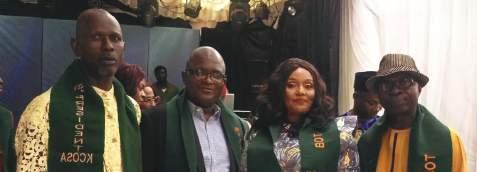

THE ROYAL INSIGNIA OF THE AWUJALE OF IJEBU LAND
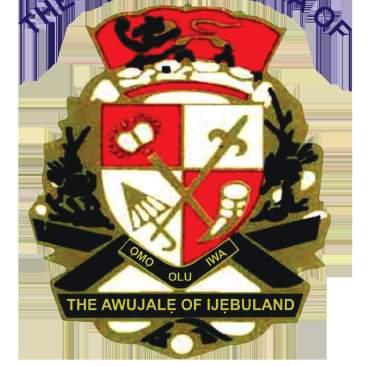
We profound y thank President Bola Ahmed Tinubu for honour ng our father s egacy as a tower ng natura ruler" and "fear ess democrat" whose ife embod ed Niger a s unity. Our gratitude extends to Governor Dapo Abiodun and a l who celebrated Awu ale's w sdom as "a br dge between past and future "
To the peop e of I ebu and and Nigeria, your love reflects his eterna truth "Leadersh p is ser vice, and ser vice s mmor ta ity." E se gan ni
May his egacy of truth, progress, and un ty endure forever
FEaturEs
How Amazing Talents School is Strengthening Child Rights Protection with Inclusive Learning
As Amazing Talents School, Lagos, celebrated its 17th End of Session Party and Prize Giving Ceremony on July 24th, 2025, Esther Oluku writes that the school is promoting child rights, nurturing a positive sense of self in children, and equipping them with competencies to actively participate in the world of the future by engaging the principles of inclusive teaching and learning
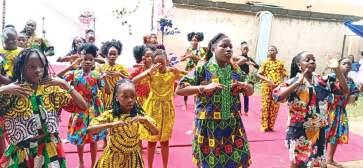
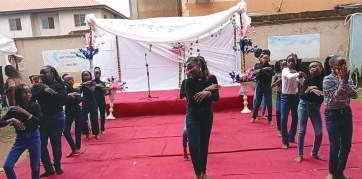
The concept of child rights and its protection stands as the cornerstone of building a future-ready nation. The four basic rights of a child as outlined by the United Nations Children’s Fund (UNICEF) – the right to survival, protection, development, and participation – serve as a moral compass for nations keen on advancing the rights of children around the world. Although the global Convention on the Rights of the Child was reached in 1989, Nigeria’s adoption 14 years later, with the enactment of the Child Rights Act 2003, signalled a bold resolve to protect and defend her children. However, localisation of this Act across all the states of the country remains to be achieved.
This slow adoption and localisation of the Child Rights Act across all the states of the country has led to varying degrees of child rights violations, further exacerbated by factors including insecurity, poverty, socio-cultural norms, child-limiting beliefs, and ignorance, amongst others. By embracing the principles of inclusive teaching and learning, Amazing Talents School, Lagos, is raising awareness on child rights protection while maintaining an unalloyed commitment to advancing these rights through its teaching and learning model.
The mission is simple – “to use the tools of teaching and learning to shape the future and prospects of all children who pass through the institution”.
What is inclusive teaching and learning?
The University of Michigan, quoted by DePaul University, states that “Inclusive teaching involves deliberately cultivating a learning environment where all students are treated equitably, have equal access to learning, and feel valued and supported in their learning. Such teaching attends to social identities and seeks to change the ways systemic inequities shape dynamics in teaching-learning spaces, affect individuals’ experiences of those spaces, and influence course and curriculum design.”
Inclusive teaching and learning prioritise equity in the education system by recognising the unique learning differences of students and providing a platform for students to learn irrespective of these differences. This imbues students with a positive sense of self as they go on their learning journey and even through life.
Inclusive learning is part of a broader global subject – inclusive education – which aims to integrate students, regardless of their physical, social, or psychological differences, into regular schools with the goal of levelling the learning field for all.
Although Nigeria has initiated several policies like the National Policy on Education, 2014; the National Policy on Special Needs Education, 2015; the National Policy on Inclusive Education in Nigeria, 2017; and the Discrimination Against Persons with Disability (Prohibition) Act, 2019 to support the global call for inclusive education, infrastructural bottlenecks and training remain a formidable challenge.
As awareness and understanding grow, the inclusive teaching and learning model holds the
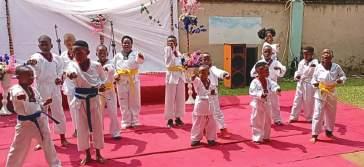
potential to help Nigerian schools transition towards full-scale inclusive education.
Amazing Talents model
The Headteacher, Amazing Talents School, Mrs. Akunasha Prisca Ifeyinwa, told THISDAY that by prioritising the principle of child rights, the school is crafting teaching which resonates with the learning needs of individual children while introducing them to global learning tools.
She added that the inclusive teaching model focuses on leveraging the strengths of each child to achieve overall learning objectives.
“By leveraging the three domains of learning – cognitive, affective and psychomotor – we are ensuring that every child achieves the set learning objectives,” she said. “We work with individual children to discover their various learning needs and, in turn, use their strengths in levelling the learning process.”
She explained that the school engages its Creativity Lab to support their psychomotor children through learning, by first helping them build a positive sense of self.
“There are some children with high Intelligence Quotient; before you speak, they understand. There are some whose intelligence quotient is not as high. Some children learn through repetition. Some learn through psychomotor (the use of the hands). There are some who are faster in psychomotor learning than in cognitive learning.
“The school works in line with the global learning trend to give children the opportunity to explore their various gifts and talents while also exposing them to digital learning tools like computer-based assessments and the use of Artificial Intelligence. Our children are also exposed to extracurricular engagements in areas of art, clothing and textile craft, taekwondo, music, and public speaking, amongst others,” she added.
On his part, the Proprietor of the school, Mr. Eddy Odivwri, stated that the inclusive teaching and learning model has delivered increased impact on the students beyond their academic pursuit.
Odivwri explained that by embracing the inclusive teaching and learning model, children build a healthy and positive sense of self, develop healthy social habits, have the opportunity to learn new things from their peers, and are inspired to achieve greatness in their academics and personal lives.
He noted that alternative teaching models which segregate children into sections based on their intelligence quotient do not help the self-esteem of the child.
“Growing up, the best children were assigned to the A class, the better children were in the B class and it trickles down like that. Children who are placed in the D class already have their self-esteem lowered. So we don’t do that here. That provides some intellectual discrimination which I think is discouraging.
“There is a mix. Our solution is inclusive teaching and learning. We pay more attention. That is the function of educational psychology. Having known the learning shortcomings of a child, we pay more attention to those areas. One has to understand the psychology of the child, the strengths and weaknesses of that child and programme the learning content to ensure that the child is able to meet up. Our teachers are trained to detect that,” he said.
Strengthening child rights protection
By creating an environment where children are given equal educational and social opportunities based on their unique learning styles, the school is building a platform for children to actively participate in society, confidently express themselves, and have the right blend of skills to contribute their quota to the world.
Odivwri said: “We give children the room
to be expressive. Of course, all of these must be done within the ambits of moral uprightness. Our mission is to ensure that the child is fully equipped cognitively and morally such that if he has anything to say, he should be able to say it, and if the child does or says something that is wrong, we would correct them.
“We also do not tolerate bullying. We have had some tendencies like that in the college but we have also dealt with it decisively in a way that it sends enough signals to those who have these same tendencies. They know that it is not tolerated here at all. No bullying. If a child goes out of line, they get the punishment for it. Our programme encapsulates cognitive, affective, and psychomotor learning. That is why we also do clubbing, which is not exactly intellectual. Those who have the capacity for other things like singing, dancing, acting, and craft, we give them room to do that.”
Children, parents speak on impact of the school’s teaching and learning model
A graduand from the primary school section, Ilerioluwa Ojo, who spoke with THISDAY on how the school has made a positive impact on her life and academics, said: “It feels wonderful and at the same time sad to be a graduand today. I’m excited about the new phase. Coming to this school has made me streetwise. I have improved on myself. This school has made me a confident person and has taught me self-discipline.”
Ilerioluwa’s father, Mr. Moses Ojo, corroborating his daughter’s remarks, expressed confidence in the school’s teaching and learning model.
“The experience we’ve had from the school has been fantastic. Not just for my daughter, Ilerioluwa, but also from her siblings. Her elder sister graduated from this school and two of her siblings are also in this school. The school’s teaching model has put to bed the unalloyed commitment of the school’s management to advancing children’s well-being.
“Ilerioluwa has become more expressive in terms of putting her thoughts and emotions into words and, in terms of discipline, she takes correction. Intellectually too, her ability to grasp ideas outside the confines of the classroom has also been enhanced.
“We’ve never had any negative feedback (in terms of rights violation) and if there were, it was basically misinformation which was swiftly resolved.”
Another student, Oru David, stated that the training from the school has imbued him with the confidence for the future. In his words: “The school has changed me and has made me bold enough to face my fears. I can now speak before a crowd.”
Amazing Talents School’s commitment to inclusive teaching and learning serves as a beacon of hope for child rights protection and education in Nigeria. By prioritising individual needs, fostering a positive sense of self, and promoting social awareness, the school empowers students to become confident, expressive, and well-rounded individuals. As Nigeria continues to navigate the complexities of inclusive education, Amazing Talents School’s model offers a promising approach to shaping the future of its children and building a more inclusive society.

VICTOR C. ARIOLE argues against tariff imposition on African nations

TARIFF ON AFRICAN RESOURCES AND CAPITAL
Equality of humans ends at birth –same complexion same outlook. Humans grow into different societies and different hierarchical orders as genetic blueprint unfolds – endowment to withstand weathering and economic vagaries as received education permits; or by inheritance of material wealth and all it enables so as to dominate others. Hence, “we are equal” is mere illusion. - Anonymous USA is evidently the domineering power in the power chessboard of United Nations, and it is by virtue of its balancing of “Sword and Equity” in both the Second World War and thereafter –extending hands of fellowship to both winners and losers, and strongly engaging in negotiations that established what is known today as the rule-based world order which creates first, second and third worlds; somehow, associating others and assigning values to them.
First world being the group of G-7; even defeated Germany and Japan are part. (USA, United Kingdom, France, Canada, Germany, Japan and Italy). Somehow, they bring into the equation other countries and make it G-20 while inviting African Union alongside European Union as “guilt attenuation”; not necessarily as equal partners.
Basically, one could see a case of applied quadratic function as the head of the equation and the middle of the equation must collaborate to overwhelm the tail of the equation where most of the third world – or as they have learnt to attenuate it, emerging or marginal or developing countries – belong. The whole African Countries, Latin America and parts of Asia are the tail end, with large population.
Listening to Prof. Pat Utomi on Seun Okinbaloye programme on Channels TV, both very disturbed that Nigeria lags behind in asserting itself as the biggest Black country, it elicited another definition of economics by Utomi as a study of juggling and redirecting incentives. One would also add disincentives, so as to apportion available and hanging fruits resources in appropriate manner towards making the majority of Nigerians feel the impact of governance as against just enhancing tax collection and appropriating it to feed the purses of politicians and state governors who go into living extravagant lifestyle seen in their purchases of property outside Nigeria as lamented by even United States Consul General.
The keyword here is juggling and redirecting incentives or even disincentives as President Trump is currently doing, facing the whole world with tariff barriers without minding if such barriers could lead to isolating USA or not.
USA, with its cumulative material wealth seen all over the planet earth, experiences love as well as hatred by others; and balancing incentives so as to remain the main head of what is known now as zero-sum game equation in the extant rule-based world order, while awaiting a better equation that could lead to win-win game, remains imperative. It is worrisome that Africa that is completely at the tail end of the equation is also targeted. A Continent of over 30 million km2 with 1.4 billion humans and contributing just only $3trillion of world’s GDP of over $120trillion.
Hence, time for Africa to learn to shift the equation, if not for a perfect win-win, at least to zero point five summations, (that is ≥ 0.5). It requires a united Africa for it to happen.
Here, one is insisting on tariff that makes Africa’s natural resources and the capital outflow from Africa either an incentive item to push current Africa’s GDP to match those in the middle income earners’ countries of the world or to create new distribution values to the three segments of the qua-

dratic function equation so as to reach some level of inequality – here towards quasi equality that translates to greater than zero or equals to 0.50 sum-up, instead of zero-sum game.
For example, Africa is known to be losing over $60 billion annually to illicit capital outflow. It is also known that most operating hedge fund portfolios in Africa are tilted toward quick profit making and quick exit management form, as over $200 billion is meant to be fetching quick revolving profit year in year out to the tune we all know that led to a $3 billion loan by Nigeria before 2000 cumulating to debt of $36 billion in 2011 which was repudiated after paying in bulk $18 billion. Quite uncapitalist approach!
Illicit funds deposited by African elites abroad are also what create weak economic performance of Africa’s resources. Paucity of dollar in Nigeria that escalated the value of dollar from mere 150 naira to current N1500 shows also to some extent capital outflow. It is just reported that former President of DR Congo Joseph Kabila is the richest African towering above $24 billion worth of Dangote, and almost the same for the daughter of former Angolan President Jose Edwardo do Santos, Isabel dos Santos. All the money involved are part of capital outflow servicing the economy of other nations outside Africa. So many African heads of state and their cohorts create great disincentive for the progress of African economy and they also help in exploitation of African natural resources without requisite values attached to such resources, as the determinant of values to African resources are the great powers united in G7 or even solely and/or covertly determined by USA.
So, when President Trump talks of tariff he should be reminded that the worth of Google or other Tech Giants in USA is dependent on how raw materials like colbat, lithium, uranium, gaz, metals, rare earth, etc., are priced and used in technology stack as well as robotic engineering and space crafts. The pricing does not equate to their real values as it is mere capitalist economic pricing and not humanistic and nature pricing. They are not far from setting a price for oxygen and water without which no life on earth.
President Trump is on incentivizing USA economy by collecting tariff tax to repudiate $36trillion USA debt and it is a mere defence tactics. In football scoring more goals is better. USA must adapt attacking tactics that help for more wealth creation world over. However, for USA to be in positive attacking mode, it is a function of optimizing, for win-win purposes not over exploiting, resources found in the space of countries rated as Third World, emerging economy or even marginal economic worth; and all of Africa is marginalised. Attempt at making them more productive, by attacking their weaknesses for production purposes to strengthen AGOA, could have helped USA feel better in its greatness and remain the unbeatable champion.
Ariole
is a Professor of French and Francophone Studies at University of Lagos
Ease of mobile communications is the rise, argues SONNY ARAGBA-AKPORE

DIRECT MOBILE CONNECTIVITY TO SATELLITE
Connectivity and ease of mobile communications are on the rise as new technologies have introduced direct mobile access to the satellite.
With this,mobile devices including mobile phones and others can now connect and access services directly via satellite.
Although,the process has been on for nearly a year now but its manifestations came on stream recently when Starlink announced its commercial launch across some regions including sub-Saharan Africa.
It claimed that prior to this introduction,it had negotiations and signed agreements with various Mobile Network Operators (MNOS) in countries where its satellites have footprints and coverage.
As at July 27, 2025, Starlink had launched a total of 661 direct-to-cell satellites, according to a Facebook post by SpaceX. These satellites are specifically designed to connect directly with standard mobile phones without the need for specialized hardware. SpaceX is actively expanding its direct-to-cell constellation, with plans to launch many more satellites in the future.
Satellite-to-mobile connectivity allows standard cell phones to connect directly to satellites, enabling communication in areas without traditional cellular coverage. This technology, like Starlink's "Direct to Cell," uses satellites equipped with advanced modems to act as cell towers in space, providing access to text, voice, and data services. This can bridge communication gaps in remote areas, during emergencies, and for global connectivity.
SageNet lists Amazon, Apple, AST SpaceMobile, and Huawei among those developing satellite-to-cellular projects but SpaceX's Starlink appears to be a leading provider of satellite-to-mobile connectivity, with plans to offer text, voice, and data services globally.
So far iPhones with Emergency Save Our Souls (SOS) via satellite allow users to connect to emergency services in areas without cellular or Wireless Fidelity (Wi-Fi) coverage.
Satellites with specialized modems (like Starlink's eNodeB) act as cell towers in space, receiving and transmitting signals from standard fourth generation (4G) commonly referred to as Long Term Evolution (LTE) phones.
This technology has the potential to disrupt the telecommunications landscape by offering universal mobile connectivity, particularly in areas where traditional networks are limited.
The benefits include bridging Connectivity Gaps by providing communication in areas lacking traditional cellular infrastructure, such as remote regions, oceans, and during natural disasters.
Unlike traditional satellite phones, this technology works with existing, unmodified fourth generation (4G) or LTE phones, eliminating the need for specialized equipment or apps.
Besides,Satellites provide services anywhere on Earth, even in remote, rural, or disasterstricken areas including where traditional cell towers are unavailable.
To activate the signal on users mobile phone, they don’t need to do anything. The mobile devices work by automatically searching for Starlink satellites in low orbit and connecting to them to receive satellite internet. In other words, the connection is automatic.
In places where there’s no terrestrial coverage, the phone will connect to the satellite

automatically without the user having to take any action. This is especially useful for areas with poor coverage and areas without mobile fiber.
Although this appears to be a breakthrough, especially with the ability to communicate without antennas,but while on the long term, the economic benefits for the company and Elon Musk’s conglomerate will be incalculable, however in terms of communication, it’s a clear step forward.
Unlike it’s other services that are currently in use in homes and offices with antennas,the connectivity to mobile phones is without antennas but like its other services,the cost of this mobile connection may be prohibitive. At the moment, Starlink has not named or commented on the cost of acquisition but there are indications that the services will be free where Users will be able to access it as if it were an extra from their telephone company. “This is already the case in countries like the United States, Canada, and Japan. In order to implement Starlink in different countries around the world, Elon Musk’s company claimed to have signed agreements with mobile operators in those countries.
“The countries where the services are available are on the map on the official Starlink website indicating which countries already have the network available, which are in development, and which do not have access to it,” the company explained.
It states further that what users will be able to do include the ability to send and receive text messages (SMS) and share their location. “This is a major advance because, although in wealthier countries, people are accustomed to constant communication, we mustn’t forget that there are areas of the world that are severely isolated. The idea is that, with the passage of time and further improvement of this technology, people will be able to start making calls and have access to more options through Starlink.”
The purpose of direct satellite communication is primarily to provide services in under served and unserved regions of the world.This is perhaps one way to take services to the people who are offline because of lack of internet connectivity.
By the International Telecommunications Union (ITU) calculations,a third of the global population (2.6billion) people are not connected.
Aragba-Akpore is a member of THISDAY

Editor, Editorial Page PETER ISHAKA
Email peter.ishaka@thisdaylive.com
THE MANAGEMENT OF IDP CAMPS
The authorities must do more to improve conditions in the displaced persons camps
It is high time government, at all levels, took concrete steps to stop the misery of inhabitants of Internally Displaced Persons (IDP) camps across the country by swiftly reforming the intervention strategy to ensure that funds, foods and other provisions are utilised strictly for that purpose. Perhaps it may also help to streamline the agencies and processes for the management of these camps. A starting point should be a proper audit with a view to harmonising their operations and removing the overlaps that create confusion and encourage unwholesome practices. Such an exercise can start from Benue State where the management of these camps is being called to question by many of the inhabitants.
In the past few months, the state has been a graveyard of innocent children, women, and indeed men - victims of incessant conflict and unprovoked attacks by suspected herders. With hundreds of thousands of survivors now in the various camps that have been created to temporarily shelter them, allegations are rife that some officials are taking advantage of these unfortunate citizens. The Makurdi–Lafia highway was last Tuesday taken over by hundreds of IDPs to protest alleged lack of food and other necessities. Chanting, ‘We are hungry’, ‘We want to go back home,’ among others, the protesters said they wanted to draw the government’s attention to their plight. Although the Benue State Emergency Management Agency (BSEMA) has responded by saying there was no hunger in the camps, this is a familiar problem that requires an urgent solution not only in Benue but also across the country.
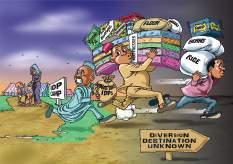
there are global best practices. Nigeria should tap into that in the interest of its suffering citizens even as we call for the immediate arrest and prosecution of all officials and their collaborators who divert funds, foods and other provisions for IDPs into private use. Unless the government brings to justice those who abuse their office and profit from the misery of the hapless IDPs, impunity would not only persist but would also be seen as a rewarding culture. All critical stakeholders must also rise to join the efforts to rehabilitate our compatriots who have been displaced and are in distress because of the violence that defines this season in the country.
Unless the government brings to justice those who abuse their office and profit from the misery of the hapless IDPs, impunity would not only persist but would also be seen as a rewarding culture
T H I S D AY
EDITOR SHAKA MOMODU
DEPUTY EDITOR WALE OLALEYE
MANAGING DIRECTOR ENIOLA BELLO
DEPUTY MANAGING DIRECTOR ISRAEL IWEGBU
CHAIRMAN EDITORIAL BOARD OLUSEGUN ADENIYI
EDITOR NATION’S CAPITAL IYOBOSA UWUGIAREN THE OMBUDSMAN KAYODE KOMOLAFE

EDITOR-IN-CHIEF/CHAIRMAN NDUKA OBAIGBENA
GROUP EXECUTIVE DIRECTORS ENIOLA BELLO, KAYODE KOMOLAFE, ISRAEL IWEGBU
DIVISIONAL DIRECTORS SHAKA MOMODU, PETER IWEGBU, ANTHONY OGEDENGBE
DEPUTY DIVISIONAL DIRECTOR OJOGUN VICTOR DANBOYI
SNR. ASSOCIATE DIRECTOR ERIC OJEH
The case has also been variously made for a more professional approach to the handling of the situation. Internal displacement not being an exclusive Nigerian phenomenon means that
ASSOCIATE DIRECTOR PATRICK EIMIUHI
CONTROLLERS ABIMBOLA TAIWO, UCHENNA DIBIAGWU, NDUKA MOSERI
DIRECTOR, PRINTING PRODUCTION CHUKS ONWUDINJO
TO SEND EMAIL: first name.surname@thisdaylive.com
Letters to the Editor
Meanwhile, there must be an end to these indiscriminate and unwarranted killings that portray Nigeria in bad light before the international community. In the aftermath of the enduring violence, children, women and the elderly are either killed or maimed with the lucky ones forced to flee their communities to the growing numbers of IDP camps whose populations are gradually being abandoned to their fate. That certainly cannot be acceptable to any decent society.
With thousands of people sleeping outside in the open and others in overcrowded places, the conditions of the IDPs are dire, harsh and increasingly becoming critical. Food is rationed and access to basic hygiene and health services is limited. The challenges are accentuated by the ineffectiveness of the several agencies of government saddled with the responsibility of soothing the pains of the victims. There are also reports of the startling abuses to which women and girls are subjected in the camps. Authorities in the country must deal with these existential challenges in the IDP camps. We cannot abandon the most vulnerable of our citizens at their hour of need.
Letters in response to specific publications in THISDAY should be brief (150-300 words) and straight to the point. Interested readers may send such letters along with their contact details to opinion@thisdaylive.com. We also welcome comments and opinions on topical local, national and international issues provided they are well-written and should also not be longer than (750- 1000 words). They should be sent to opinion@thisdaylive. com along with photograph, email address and phone numbers of the writer.
WHY IS NIGERIA RECORDING MORE MALNUTRITION DEATHS?
At the end of July 2025, the world was shocked to learn that 169 people, including 93 children, had died of malnutrition in Palestine since the outbreak of the devastating war with Israel. For context, the war has gone on actively for close to two years. Tragic and painful as this figure is, it is utterly dwarfed by a chilling statistic from Nigeria: over 652 children have died from malnutrition in Katsina State alone, and that’s just in the first half of 2025.
This jarring incongruity provokes a bleak and sobering question: How can a nation not technically in war end up outpacing a war zone in deaths due to hunger and malnutrition?
The answer lies at the intersection of poor governance, chronic insecurity, and systemic neglect.
Nigeria, Africa's most populous country and one of its largest economies, is officially at peace. It enjoys a democratic government, a huge bureaucracy, and vast natural and human resources. Yet it continues to record child mortality from malnutrition that rivals or surpasses that in active war zones.
The latest report from Doctors Without Borders (MSF) on Katsina is most alarming. Katsina, located in Nigeria’s northwest, is a besieged state by banditry, kidnappings, and deepening insecurity.
In Katsina, whole villages have been turned into ghost towns and
farmlands into killing fields. As a result, food production has dwindled, healthcare systems have broken down, and families have been forced into displacement, poverty, and starvation.
The root of the crisis points to both structural and systemic failures. Malnutrition, especially in children, is both a symptom and a signal. It indicates a broader failure of the health system, food distribution channels, social protection programs, and ultimately, government accountability.
The key issues driving the malnutrition crisis in Nigeria are numerous. First, armed violence, especially in northern Nigeria, has led to mass displacements. Families fleeing for their lives leave behind farms and other means of livelihood. Internally displaced persons (IDPs) camps are often overcrowded, underfunded, and inadequately supplied with food and clean water. Children under five, the most vulnerable, suffer the most.
Secondly, in many parts of northern Nigeria, healthcare delivery is either non-existent or dangerously underfunded. Malnutrition requires urgent and specialised treatment, something scarce even in urban centres, let alone rural communities ravaged by conflict.
Then there is the issue of cuts in international funding. MSF attributed part of the problem in Katsina to funding cuts by inter-
national donors. As global attention shifts to other emergencies, including Ukraine, Sudan, and Palestine, humanitarian support to Nigeria has dwindled. But this raises a painful point: Why is the Nigerian government not stepping in to fill the void?
Another challenge is the failure of preventive nutrition programs. Nigeria has repeatedly failed to sustain preventive nutrition programs that address child hunger and undernutrition before they become life-threatening. School feeding programs are poorly implemented or discontinued in many states, and outreach on infant nutrition and breastfeeding is inconsistent at best.
Plus, malnutrition doesn’t make headlines like terrorism or economic policy. As a result, the issue often slips under the radar of national priorities. There’s a lack of real-time data, poor coordination among ministries, and a bureaucratic unwillingness to act until disaster strikes. The effects of runaway malnutrition deaths are long-term and deeply unsettling. Think human capital loss, undermined development goals and national and international shame. It's a ticking time bomb.
Elvis Eromosele,
a corporate communications professional and sustainability advocate, wrote via elviseroms@gmail.com.
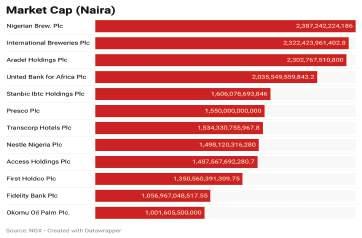
Kayode Tokede
The disparity between large cap and small companies on the local bourse has continued to widen as a total of 23 them contributed 88.4 per cent or N78.14 trillion of the N88.44 trillion market capitlisation of listed securities on the Nigerian Exchange Limited (NGX) as at the end of July 2025.
The firms cut across cement makers, financial institutions, Oil & gas, telecommunication, agriculture and Fast-Moving Consumer Goods (FMCG), and power generating companies.
Foreign and domestic institutional investors’ demand for these companies has impacted on the market capitalisation that gained N25.67 trillion in seven months of 2025 from N62.763 trillion to close at N88.436 trillion as of July 2025.
The 23 companies out of 150 listed companies are often called blue-chip stocks as they are well-established, financially sound, and reputable with a history of reliable performance and regular dividend payout to shareholders.
As of July 2025, MTN Nigeria
Nume Ekeghe
The Bank Verification Number (BVN) database reached a new milestone in July 2025 with a total of 66,230,369 enrollments, representing a 4.3 per cent increase from the 63.48 million recorded at the end of 2024. The surge, achieved within just seven months, highlights renewed traction in the uptake of biometric identity systems across Nigeria’s banking sector.
Communications Plc, for the first time since listed in 2019, emerged as the most capitalised stock on the NGX, overtaking Airtel Africa Plc and Dangote Cement Plc.
The stock price of the telecommunication giant had a massive rally in the period under review, following an impressive first quarter and half year (H1) ended June, 2025. Its stock price on NGX has gained 136 per cent Year-till-Date (YtD) to close July 31, 2025 at N472.00 per share from N200.00 per share it opened for trading this year.
Investors reacted to the company’s migration from loss to positive earnings in H1 2025, as it bounced back from foreign exchange losses.
The company reported a net income of N414.9 billion for H1 2025, about 180 per cent year-on-year growth from the N519.1 billion net loss reported in H1 2024. In its consolidated financial statements for H1 2025, the group recorded a turnover of N2.38 trillion during the period, up by 54 per cent YoY growth from the N1.54 trillion reported in H1 2024.
This growth was observed across various revenue streams, including
The latest data from the Nigeria Inter-Bank Settlement System (NIBSS) positions 2025 as one of the most promising years for BVN enrollment since 2021. Over the last four years, the growth trajectory has remained steady: from 51.9 million in 2021, BVN enrollment rose by 7.9 per cent to 56 million in 2022. In 2023, the figure grew by another 7.4 per cent to reach 60.1 million, before slowing slightly to a 5.6 per cent increase in 2024.
voice, data, and value-added services. Data revenue particularly saw a significant increase from N726.6 billion in H1 2024 to N1.23 trillion in H1 2025.
The results in the period under review mark a significant financial turnaround for the six months ended 30 June 2025.
With the profits driven by strong revenue growth and a drastic reduction in net foreign exchange losses. Outside the reduction in foreign exchange losses, its operating profit surged by 193 per cent YoY to N892.8 billion, from N304.5 billion in H1 2024. The stock price has crossed the N10.08 trillion mark as its stock price reached N480.00 per share as of August 5, 2025.
Dangote Cement, however, closed the seven months under review with N8.91trillion market capitlisation, amid a rally in its stock price. The stock price of cement maker appreciated by 10.34per cent to close at N528.3 per share from N 478.80 per share it closed for trading in 2024.
Airtel Africa, came third with a market capitlisation of N8.68trillion on the backdrop of 7.1 per cent
With 2025 already showing a 4.3 per cent growth in just over half the year, the system is on track to outperform the previous year’s total by December. One of the notable drivers of growth in 2025 is the rise in enrollments through the NonResident Bank Verification Number (NRBVN) initiative. The NRBVN is a dedicated framework that allows Nigerians living abroad to register for BVNs remotely, without
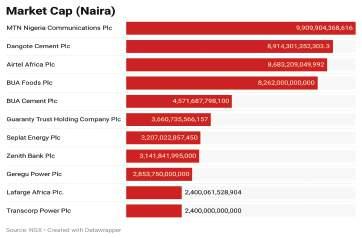
increase in its stock price of N2,310.50 as of July 31, 2025 from N2,156.90 per share it opened for trading this year.
BUA Foods also joined the league of Dangote Cement and Airtel Africa with N8.26 trillion market capitalisation.
The Nigerian stock market has recorded an upward trajectory since the entry of the new administration led by President Bola Tinubu, and it is due to the proactive implementation of reforms such as the removal of fuel subsidy and the liberalization of the foreign exchange market.
Foreign investors and High Network Investors have continued to take positions in these 19 stocks amid CBN foreign exchange policies as their prices in the past was undervalued on the bourse.
Further findings by THISDAY revealed that BUA Cement is the only company with market capitlisation above N4 trillion mark, moving to N4.57 trillion as of July 31, 2025.
Guaranty Trust Holding Company Plc (GTCO), Zenith Bank Plc, Seplat Energy Plc as of closing of the stock market in July 2025 had market capitlisation above N3 trillion.
The breakdown of these firms
the need to physically visit bank branches in Nigeria. This solution has significantly expanded the reach of the BVN system, helping to deepen diaspora participation in formal financial services.
The increase in non-resident registrations has been supported by enhanced Know Your Customer (KYC) compliance requirements across the banking industry and broader collaboration with fintech firms that facilitate onboarding
market capitalisation showed that: GTCO, N3.66 trillion; Seplat Energy, N3.21trillion and Zenith Bank, N3.1 trillion as of July 2025.
Speaking with THISDAY, the Executive Vice Chairman of Highcap Securities Limited, Mr. David Adonri expressed that Airtel Africa among others are the largest companies by market capitalisation on the NGX and that if these companies record one per cent gain, it will affect the direction of the stock market.
He stated that investors were in the earning season adding that what investors would get from dividends is one of the factors that drove the demand for shares in the stock market.
He noted that the stock market is defying current political uncertainties because investors are futuristic and the prospect for a yield environment is bright.
According to him, “Optimists also see strength in the market from the perspective of corporate fundamentals which remain strong despite macroeconomic frailties and assault from misfired public policies.”
On his part, the Chief Research Officer, InvestData Consulting
processes. The combined effect has reinforced BVN’s role as a key pillar of digital identity and financial inclusion in Nigeria. Parallel to the rise in BVN enrollment, the banking sector has also seen increased account activity. As of March 2025, the number of active bank accounts stood at 320,053,030, the highest ever recorded. Dormant accounts were reported at 33.4 million, while a total of 29.4 million accounts had
Limited, Mr. Omordion Ambrose noted that the Nigerian stock market is over-concentrated with the attendant ‘keyman’ risks, part of what are major barriers to market development.
“This is demonstrated by the fact that only 19 out of 150 listed companies account for over 80per cent of stock market capitalization,” he said.
He noted that the over 150 issuers base is relatively small, urging for more companies to utilize the opportunity of accessing funds needed to expand their businesses and get listed
“Many eligible companies including multinational companies particularly in the telecom and oil and gas sectors remain unlisted. If we can have them listed, the stock market will be more liquidity and diversified,” he said.
He, however, recommended that privatized government enterprises be listed on the NGX for the capital market to develop and support the nation’s development.
been closed. This compared with slightly lower figures in February, which recorded 316.8 million active accounts, 19.9 million dormant accounts, and 33.3 million closed accounts. The rebound in March suggests that more Nigerians are engaging with the formal banking system, in line with broader efforts by financial institutions and regulators to improve access, trust, and compliance within the sector.
UAE–Nigeria Relations as Model of Strategic Growth, Trade
Nume Ekeghe writes on cross-border investment, bilateral economic cooperation, and Africa–Gulf strategic partnerships.
The deepening relationship between the United Arab Emirates and Nigeria reflects a strategic convergence of economic interests, trade ambition, and diplomatic cooperation across regions.
In an era where global alliances are being reshaped by economic priorities and geopolitical realignments, the bilateral relationship between the United Arab Emirates (UAE) and Nigeria is quietly becoming one of the most strategic and forward-looking partnerships on the continent. What began as a traditional diplomatic relationship has evolved into a multi-dimensional engagement rooted in trade, investment, and shared development goals.
The UAE–Nigeria partnership today stands as a model of how cross-regional collaboration can be built on mutual respect, institutional alignment, and long-term commercial vision.
It is a relationship defined not only by high-level diplomacy but also by tangible flows of capital, goods, knowledge, and enterprise.
R E l AT io NS B U ilT o N M UTUA l iNTEREST
The foundation of UAE–Nigeria relations lies in a shared recognition of strategic economic value. A statement recently: “The United Arab Emirates and the Federal Republic of Nigeria continue to deepen their bilateral relationship, anchored in mutual respect and cooperation across diplomacy, economy, society, and culture.” That partnership has grown steadily, underpinned by strong trade ties and an expanding diplomatic presence, a statement reads.
“The UAE is widely recognised as Nigeria’s most important trading partner in the Gulf region,” with both countries seeing clear benefits in stronger commercial ties. For
the UAE, Nigeria represents a large and diversified economy that offers access to the broader West African market.
For Nigeria, the UAE offers investment, market access, and connectivity to global supply chains.”
Crucially, Nigeria’s growing role as a regional economic hub and the UAE’s positioning as a global logistics and finance powerhouse make them natural partners.
“Nigeria serves as a strategic gateway for UAE investment and trade across West Africa,” enabling the Emirates to tap into a broader regional footprint.
A pivotal moment in this relationship came in 2019 with “the UAE inaugurating its Consulate General in Lagos Nigeria’s commercial capital.” This was more than symbolic; it was a deliberate move to anchor UAE presence within Nigeria’s thriving business ecosystem and to strengthen direct engagement with its private sector and government stakeholders.
TRAdE ANd iNvESTMENT
volUMES
The numbers tell a compelling story of growth and economic momentum. In 2022, “non-oil trade between the UAE and Nigeria reached approximately USD 2.4 billion,” reflecting a surge in diversified trade activity. On Nigeria’s side, exports to the UAE stood at “$520 million,” with “gold contributing $489 million,” followed by “spices ($11.9 million)” and “charcoal ($7.24 million).”
By 2023, UAE exports to Nigeria “exceeded $1.61 billion,” driven by essential commodities and manufactured goods. These included “refined oil ($352 million),” “broadcasting equipment ($159 million),” and “automobiles ($149 million).” This composition reflects a growing
interdependence, with Nigeria meeting demand for raw materials and the UAE supplying high-value consumer and industrial goods.
“Financial flows from the UAE to Nigeria have also increased significantly,” a trend supported by consistent engagement between both countries’ business and policy leaders. The UAE has emerged as “one of the top sources of foreign investment into Nigeria in recent years,” with capital directed into infrastructure, logistics, technology, and renewable energy sectors.
“Frequent trade delegations and highlevel exchanges between public and private sector representatives” have played a central role in creating opportunities, deepening understanding, and facilitating market entry for investors on both sides.
BAckiNG ANd PRivATE
SEcToR ENERGy
While trade and capital are critical, the strength of the UAE–Nigeria relationship lies in the institutional frameworks that support it. A “joint committee between the two countries plays a central role in advancing cooperation across political, economic, cultural, judicial, and security domains.” This committee provides the governance structure necessary to ensure that agreements are implemented and commercial partnerships are protected.
It also “facilitates commercial and investment collaboration, promotes knowledge exchange, and oversees the implementation of bilateral agreements and protocols.” Through this mechanism, both countries ensure that cooperation is not ad hoc but guided by clear strategic direction.
An important milestone in commercial
diplomacy came with the opening of the Dubai International Chamber’s representative office in Lagos. The launch, which was attended by “His Excellency Babajide Sanwo-Olu, Governor of Lagos State,” reinforced the Emirates’ longterm commitment to Nigeria. The office is positioned to “strengthen UAE–Nigeria business ties and support Emirati companies seeking opportunities in West Africa.”
On the ground, the UAE Consulate’s economic team in Lagos continues to play a crucial role in sustaining the relationship. “The economic team at the UAE Consulate General in Lagos continues to champion initiatives that promote mutual trade and investment, working closely with institutions and private sector stakeholders in both countries to foster sustainable growth and strategic alignment.”
viSioN BEyoNd diPloMAcy
“As both nations look to the future, UAE–Nigeria relations stand as a model of cross-regional cooperation driven by shared values, economic ambition, and a commitment to inclusive development.” What makes this partnership particularly compelling is its long-term orientation. It is not built on extractive models of engagement, but on a mutual desire to create jobs, build infrastructure, and strengthen regional connectivity.
As global trade becomes more fragmented and new economic blocs emerge, the UAE and Nigeria are showing that countries from different regions and traditions can build lasting, mutually beneficial partnerships. Their model is driven by strategic vision, institutional coordination, and business collaboration.
In doing so, they are setting a new standard for Africa–Gulf relations—one that moves beyond aid or symbolic diplomacy and toward shared growth, anchored in real trade, real investment, and real outcomes
Institutionalising Technology-driven Business Model Via Insurtech Guidelines
With the recent release of insuretech operational guidelines by the National Insurance Commission, the stage is now set for full adoption of technology driven business model by insurance sector operators,
The National Insurance Commission (NAICOM), penultimate week released operational guidelines for Insurtech businesses in Nigeria.
Industry analysts said this is a signal to the regulator’s readiness for full adoption of technology driven business model for the insurance sector.
Insurtech, a short form for “insurance technology,” refers to the innovative application of technology within the insurance industry to improve efficiency, reduce costs, and enhance customer experience by leveraging tools like AI, big data analytics, blockchain, and the Internet of Things(IoT). It aims to streamline processes such as underwriting, claims management, and customer service, while creating personalised insurance products and fostering financial inclusion.
Before now, insurance operators like every other operator in the finance services sector have been experimenting on the use of technology in today’s insurance business operations.
By the application of technology, the sector has taken the bold step of disrupting the old business model to pave way for the new model of business embedded on the use of technology .
The operators, foresaw the relevance of technology in driving insurance growth in Nigeria when way back in 2019 they organised a mega insurance conference with the theme “Disruption Through the Use of Modern Technology”.
By this, the operators said time was ripe for them to discard the old business model that had over the years left the sector in the quagmire of stunted growth and toddler development . Discussants at the conference, agreed that if Nigeria insurance sector should achieve the projected trajectory growth, which has been a tall dream of the regulator, NAICOM in particular
and the industry operators, it needed to disrupt the existing business model which it has been using over the years and embrace a novelty model which is anchored on modern technology utilisation.
This, they said, should cut across all activities in the business of insurance such as marketing, product design, distribution and service delivery model among others.
old iNSURANcE BUSiNESS
ModEl
Some of these old business model very prevalent in the industry include the use of insurance brokers and agents in marketing as foot soldiers of the industry. With this, the industry has not achieved much in the area of product distribution as both brokers and agents could not do more than their physical strength could permit them as well as their finances could carry them in terms of cost of transportation. With this old marketing model, majority of Nigerians remained ignorant of value of insurance and so do not purchase insurance.
Also recycling of old products in the name of new product design especially life insurance products.
Another barrier was the use of bogus policy statements with hidden clauses which are only interpreted when claims occur leading to prolonged argument between the insured and policy sellers.
Delayed claims processes and claims payment which often demoralises members of the insuring public .These are just but few of these old business models which the insurers have decided to discard and embrace new business model like use of Artificial intelligence AI, big data analytics,
blockchain, and the Internet of Things.
THISDAY notes that Nigerian insurers in particular became more familiar with these new business model tools during the COVID-19 pandemic when lockdown on businesses compelled them to engage in remote operations.
Most of them who hitherto were indifferent to remote marketing using online method swung into action when for close to six months they could not go to their offices let alone visiting prospective clients’ offices to do one -on -one marketing.
TEchNoloGy ANd foREiGN iNSURERS
Analysing how other insurers outside Nigeria got into use of technology for insurance business, Senior Technical Consultant Accelerite Business unit, Srithin Nair, said digital transformation in the insurance industry has revolutionised how insurers operate, interact with customers, and manage risk.
He quoted Swiss Re Insurance report, as saying that during the next decade (2024–34), total premiums would be more than double (inflation adjusted), and insurance penetration would increase from 3.8 percent currently to 4.5 percent in 2034.
He however, noted that several challenges have emerged, including low-interest rates, increased competition, and shifting regulatory landscapes. He further observed that the rise of the Insurtech revolution has introduced new players, forcing traditional insurers to embrace technology-driven insurance innovations.
According to the AI expert, key advancements, such as AI, data analytics, and
writes Ebere Nwoji
blockchain, have created a significant impact on efficiency and customer service.
While issuing the guideline a fortnight ago, NAICOM said the guidelines were issued after extensive stakeholder consultation and engagement. It said the guidelines, which took effective from August 1, 2025, were designed to provide a clear and unified regulatory framework for the licensing, operations, and supervision of Insurtech firms in Nigeria.
According to NAICOM, the guidelines aim at fostering innovation that can lead to the development of new and innovative insurance products and services.
Ensure consumer protection and improve consumer experience.
The commission added that the document which aimed at prioritising consumer interests and providing better services, also provides clarity on regulatory requirements, reducing uncertainty and ambiguity.
ThE iNSURTEch GUidEliNES
With the release of the insuretech guidelines, insurers now know that the stage is set for their full adoption of insuretech business model in place of the old model and this will spark off various alliances and partnerships with various insuretech firms.
But there are two fearful areas in the whole issue. One is the fear of rendering human labour irrelevant in the face of technological application. The second is fear of the insuretech firms themselves hijacking the businesses they have been contracted to push from insurers leading to the insurers’ loosing some lines of businesses in the nearest future as has happened before.

Expert Calls for Tax Reform That Prioritises Citizens’ Welfare
Nume Ekeghe
A leading fiscal governance advocate and Fellow of the Chartered Institute of Taxation of Nigeria (CITN), Morenike Tejuade Babington-Ashaye, has called for a wholesale rethinking of Nigeria’s tax system, warning that without deliberate focus on welfare, transparency, and citizen equity, the country’s 2024 tax reforms may amount to revenue extraction without justice.
Delivering a keynote address at
the 20th Anniversary Tax Debate of the University of Lagos (UNILAG) Tax Club, Babington-Ashaye underscored the urgent need for Nigeria to restructure its tax policy framework to directly tackle poverty, inequality, and exclusion issues she described as central to the country’s long-term economic and political stability.
“One of the principles which an ideal tax system must have is, sufficiency in the performance of public functions and services better life for the people, quality
environment, quality education, quality health care, among others.
“All cash benefits which the Constitution demands for the people’s happiness have never been done in Nigeria. While the tax reforms have taken care of those working, there is a need for the National Assembly to make a law on the payment of cash benefits to the unemployed, the elderly, the physically challenged individuals, and the newly born whose parents are not employed. Social amenities and benefits are the inalienable
rights of citizens to guarantee their welfare and happiness,” she said.
“Framing taxation as a vehicle for citizenship rather than merely a fiscal obligation, the former CITN president warned that policies which exempt certain groups from taxation without providing compensatory social benefits risk further marginalising them from governance structures. Tax is the price every citizen pays for lawfully belonging to a nation. Granting tax exemption to some citizens is deliberately eliminating their
NASD Announces 646% Profit Growth, Proposes Dividend
Kayode Tokede
NASD OTC Exchange Plc has announced outstanding financial results for the first half (H1) of 2025, with significant improvements across all major performance indicators.
This follows a very positive 2024 Financial year-end performance from which the Board will propose a cash dividend of 20 kobo per ordinary share and a bonus share issue of one new share for every five held. These proposals will be presented for approval at the Company’s Annual General Meeting (AGM) scheduled for August.
For the H1 ended June 30, 2025,
NASD reported a 308 per cent increase in revenue, reaching N657 million, compared to N161 million in the same period last year. Profit Before Tax (PBT) rose dramatically by 646 per cent, hitting N341 million versusa loss of N63 million in H1 2024, signalling a strong financial rebound.
Operational efficiency improved significantly, with the cost-to-income ratio declining to 48per cent from 139per cent.
A standout figure in the period was originating income, which soared to N332 million, up from just N1.3 million in the previous year, an extraordinary 26,000per cent increase, driven by strategic focus
and improved market engagement.
Speaking at a media briefing held in Lagos, Managing Director and Chief Executive Officer of NASD, Eguarekhide Longe, shared insights on the Company’s performance and market trajectory. He noted that NASD’s share price has appreciated by 93.29% year-to-date, climbing from N15.51 on January 1, 2025, to N29.98 as of July 31, 2025.
According to him, since NASD’s listing on the Nigerian capital market in 2013 at an offer price of N1.50, the share price has surged by 1,898per cent, translating to a Compound Annual Growth Rate (CAGR) of 28.35 per cent.
“We are proud of our strong performance in the first half of 2025. This financial turnaround highlights the resilience of our business model, the success of our strategic initiatives, and our commitment to delivering exceptional value to our shareholders,” said the NASD management.
“These results reaffirm our focus on sustainable growth, operational efficiency, and long-term value creation. We deeply appreciate the continued support and patience of our shareholders.” Longe also highlighted NASD’s innovation-driven platforms aimed at deepening market participation and enterprise value creation.”
Leadway Enters into Bancassurance Partnership with
Ebere Nwoji
Leadway Assurance has said that it has formally entered into a strategic bancassurance partnership with Ecobank Nigeria Limited.
The alliance, it stated, is aimed at delivering integrated insurance offerings to both internal and external stakeholders within Ecobank, spanning employees, customers, and small business owners.
The company said the partnership which was launched on
Ebere Nwoji
Issues bothering on “Strengthening Pension And Insurance Framework For Better Economy,” will form the thrust of discussions at the 10th edition of Insurance and Pension Conference organised by the National Association of Insurance and Pension Editors (NAIPE) in Lagos.
The conference scheduled for September 16th, will be chaired
August 1, 2025, marked a significant step in advancing financial inclusion by embedding insurance access directly within everyday banking touchpoints.
It said the partnership cuts across life and health protection to motor and home insurance solutions, adding that Ecobank customers and stakeholders would now enjoy seamless access to Leadway’s trusted suite of products, expertly tailored to meet their evolving needs.
Leadway said beyond convenience, the initiative was
by a veteran insurance practitioner and former Commissioner for Insurance, Mr. Sunday Thomas. The Chairman, Nigerian Insurers Association (NIA), Mr. Kunle Ahmed; the President, Pension Fund Operators Association of Nigeria (PenOp), Mr. Christopher Bajowa, among others have confirmed their attendance at the event.
Other stakeholders expected at the event are financial sector stakeholders, government agencies,
designed to deepen insurance awareness and foster uptake through interactive product education across key engagement platforms, including physical Ecobank branches, staff engagements, Ecobank’s mobile platforms, and direct customer channels.
Speaking on the partnership, Director of Sales, Retail and Partnerships at Leadway Assurance, Kikelomo Fischer, said, the collaboration was about making insurance simple, accessible, and
trade union organisations such as Nigeria Labour Congress, Nigeria Union of Pensioners, Trade Union Congress, students, advocacy groups and civil society organisations .
The keynote speaker, Olatunde Amolegbe is a past president, Chartered Institute of Stockbrokers. He is a Fellow of the Institute with well over 23 years of cognitive industry practice in Investment Banking, Corporate Finance, Asset/ Portfolio Management, Securities
part of everyday life.
She said by working with Ecobank and leveraging their wide network, Leadway was bringing financial protection closer to people—right where they are, and when they need it most.
“This isn’t just about operations— it’s a purposeful move to bridge the insurance gap in Nigeria. By combining our customer-focused solutions with Ecobank’s reach, we’re making it easier for more Nigerians to access the protection they deserve,” she said.
Trading and Investment Analysis & Research.
Commenting on the conference, the NAIPE chairperson, Mrs Nkechi Naeche-Esezobor, said the theme of the conference was apt as it would avail stakeholders the opportunity to analyse the various frameworks guiding the insurance and pension sectors, while proffering solutions to challenges that have hindered smooth implementations of these frameworks.
political power,” she said.
According to her, for tax reform to achieve legitimacy, it must be grounded in a social contract that respects the dignity of all citizens, not just those already economically productive.
Babington-Ashaye went further to challenge the colonial-era governance mindset still embedded in Nigeria’s fiscal system arguing that true democracy cannot exist when citizens are excluded from their own resources.
She said, “The time has come
for the government to remove the colonial and military mentality of ‘governance by force’. The citizens own their country, and God gave them mineral resources to eradicate poverty. Those whose communities have mineral resources that God planted are endangered and impoverished. The time has come for part of the revenue from the proceeds of mineral resources to be shared equally with households for peace, happiness, and prosperity. The social vices we witness today are due to governments depriving the citizens of their wealth.”
UAC of Nigeria Plc has announced N110.4 billion revenue for the half year ended June 30, 2025, about 33 per cent increase over N83.25 billion in 2024 to reaffirm its long-term growth strategy.
During an investor call held in August, the group emphasised the hard work and contributions of employees that contributed to the results.
The company stated that the 33 per cent growth in revenue reflects robust consumer demand and sustained commercial momentum across key operating segments.
Gross profit also increased significantly by 51per cent, supported by effective pricing strategies and enhanced cost management, leading to over 300 basis points of margin expansion.
These improvements translated into a 91 per cent surge in underlying profit compared to the same period last year, underscoring the company’s operational leverage and disciplined execution which were supported by an improving macroeconomic environment.
While reported profit after tax (PAT) indicated a 22.9 per cent year-on-year decline, UAC clarified during the investor call that this decline was not the result of a downturn in operational performance but rather the absence of a one-off N9.4 billion foreign exchange gain recorded in H1 2024.
Excluding this non-recurring item, the group’s underlying profit before tax (PBT) grew by 91 per cent, offering a clearer view of the company’s earnings quality and business fundamentals.
Commenting on the group’s performance and outlook, Group Managing Director, Fola Aiyesimoju in a statement stated: “UAC maintained strong business momentum, driven by gross margin expansion, operational efficiency,
and improved contributions from associate companies. Looking ahead, we will continue to execute our growth and value creation strategy with discipline and a long-term focus.”
Segment-level performance reflected strong growth across key business units. The Packaged Food and Beverages segment grew by 43 per cent year-on-year, led by strong momentum in snacks and dairy, supported by wider distribution. The Animal Feeds segment posted a 24 per cent increase in revenue, while the Paints segment expanded by 29 per cent, boosted by retail network growth, including the addition of 51 new points of presence nationwide.
As part of its broader growth strategy, UAC continues to explore selective mergers and acquisitions that align with its deep market knowledge and operational expertise.
Speaking on the significance of the acquisition and expressing appreciation for the trust placed in Aiyesimoju explained that:
“This marks a pivotal milestone for our Group. We are honoured by the confidence The Coca-Cola Company has placed in us to steward a business as iconic as CHI Limited. We also acknowledge the exceptional work of CHI’s management and staff, whose innovation, discipline, and brandbuilding excellence have shaped CHI into a household name. The wonderful brands in the CHI family are a perfect complement to UAC’s existing portfolio and create meaningful opportunities to expand our reach and impact in the Nigerian market.”
“Working closely with The CocaCola Company on this transaction gave us a valuable glimpse into what world-class looks like, a standard we continue to aspire to at UAC. We look forward to building on this strong foundation,” Aiyesimoju added.
APMTerminals, Customs Deepen Collaboration to Advance B’Odogwu Implementation
Eromosele Abiodun
In an effort to enhance trade facilitation and optimise cargo clearance processes at Nigeria’s busiest seaport, APM Terminals Apapa has partnered with the Nigeria Customs Service (NCS) to accelerate the deployment of the B’Odogwu unified customs management platform at the Lagos Port Complex, Apapa.
The B’Odogwu, a nextgeneration replacement for the Nigeria Integrated Customs Information System (NICIS II), is designed to modernise port operations through digital process optimization, improved transparency, and expedited goods clearance. However, the migration has thrown up some challenges for stakeholders across the logistics and freight forwarding landscape. In response to customers’ feedback during this transitional phase, APM Terminals Apapa, in collaboration with the NCS, hosted a comprehensive training session for consignees and clearing agents in Lagos.
Speaking at the event, Head of
Government Relations at APM Terminals Apapa, Olayinka Akinlade, explained that the training was prompted by findings from an internal review that highlighted a decline in cleared cargo volumes. “Despite a surge in discharged imports, container movement from the terminal was not as seamless as expected. Our market survey revealed that the migration to B’Odogwu was the primary factor behind the slowdown,” she said.
To address the concerns, APM Terminals partnered with NCS to conduct sensitization and resolution-focused training aimed at equipping stakeholders with the tools and knowledge necessary for effective engagement with the new system. Akinlade said, “This partnership was warmly welcomed by the Customs Area Controller of the Apapa Command, Comptroller Babatunde Olomu.”
Speaking at the event, Assistant Comptroller of Customs, Aondona Fanyam, acknowledged the initial difficulties with the system’s rollout, citing issues such as
bank payment visibility and procedural ambiguities. He reassured attendees that these obstacles were being actively addressed and emphasized Customs’ commitment to continued engagement. “We remain committed to ongoing training and direct interaction with stakeholders,” Fanyam stated.
Industry participants lauded the initiative for its clarity and collaborative spirit. Dr. Ikenna Nwosu, Deputy Chairman of the Clearing and Forwarding Trade Group at the Lagos Chamber of Commerce and Industry, praised the proactive partnership between APM Terminals and the NCS and expressed optimism about overcoming early challenges.
Logistics Manager at Raine Industries Limited, Godstime Ifenudo reflected positively on the experience, stating, “This seminar offered vital clarity. It resolved many uncertainties we’ve faced. I truly appreciate APM Terminals for facilitating this, especially for involving Customs officials to answer our questions directly.”
Ports & Cargo Cntracts Micura Services for Stevedoring
Ports & Cargo Handling Services Limited (PCHS), the port management subsidiary of SIFAX Group, has contracted Micura Services Limited to handle its stevedoring services at its terminal in Tin Can Island Port, Lagos.
The agreement, it said in a statement, is part of the company’s broader restructuring effort to enhance efficiency in its port operations and improve customers’ experience.
According to PCHS Managing Director, John Jenkins the restructuring will enable the company to focus on its core
business of port management, while the stevedore company will handle the efficient, safe loading and unloading of cargo and other related activities.
He said, “Ports and Cargo Handling Services Limited has continued to set standards in port operations in Nigeria. With over two decades of experience, we are poised to transition into a new growth phase, where we will substantially improve our operational deliverables, become the preferred seaport terminal in Nigeria, and the first choice for shipping lines, consignees, and agents.
“Achieving this lofty objective requires a professional stevedore company that has cognate experience, a record of excellence, and local knowledge of the industry. That’s why Micura Services is coming on board as a partner in meeting these expectations.”
Chief Executive Officer, Micura Services Limited, Dr. Michael Ubogu, said the signing of the contract with PCHS marks a new milestone in the company’s drive to offer exceptional services to discerning clients in the industry.
Abbey Mortgage Bank Appoints Okonkwo Executive Director
Abbey Mortgage Bank Plc, has strengthened its Executive Management team with the appointment of Mr. John Okonkwo as Executive Director, Finance, Risk, and Operations.
Okonkwo is an accomplished and experienced Finance and Operations Professional, Auditor, Risk Management Practitioner, Board and Corporate Governance Advisor, Compliance Risk Management and Sustainability Services Professional.
He has over 20 years of experience leading strategic initiatives across industries with a particular focus on
financial services. He is KPMG-trained, a Fellow of the Institute of Chartered Accountants of Nigeria (ICAN), an Associate of the Chartered Institute of Taxation of Nigeria (CITN) and an Alumnus of the Advanced Management Programme (AMP) of the Lagos Business School (LBS).
In his new role, Okonkwo will be responsible for providing strategic direction and oversight across the Bank’s finance, risk management, and operations functions, ensuring they align with Abbey’s long-term vision of delivering innovative, customercentric financial solutions.
Commenting on the appointment, Chairman of the Board of Directors, Abbey
Mortgage Bank Plc, Samuel Oni said, “We are delighted to welcome John to the Board. His extensive experience across finance, risk management, and corporate governance will be instrumental in deepening our institutional resilience and driving operational excellence as we continue to position Abbey for long-term growth.”
On his part, Managing Director of Abbey Mortgage Bank Plc, Mobolaji Adewumi said: “John’s appointment comes at a crucial time in our transformation journey. His deep expertise and leadership will further strengthen our operational backbone, helping us build a more resilient, efficient, and customer-focused institution.”
Nestlé Pure Life Reinforces Brand Commitment to Sustainability
Nestlé Nigeria has introduced new clear caps across its Pure Life bottled water range to boost recyclability. The clear caps, first introduced with the launch of the 33cl Nestlé Pure Life bottles, now feature on all bottle sizes, excluding Nestlé Pure Life Protect.
By eliminating the traditional blue color pigmentation, the clear cap makes it easier for recyclers to identify, sort, and repurpose the material, helping to reduce plastic waste and promote a cir-
cular economy. This change reinforces Nestlé Nigeria’s long-term commitment to more sustainable packaging solutions.
Speaking on the brand’s decision to introduce the clear cap, Business Executive Officer, Nestlé Waters, Olutayo Olatunji, said, “At Nestlé Pure Life, caring for our consumers and for the planet in every possible way has always been at the heart of what we do.
We remain passionate about delivering safe, quality water,
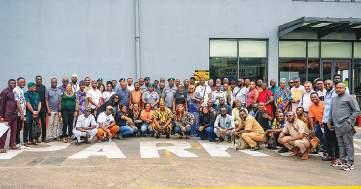
we’re equally committed to protecting our planet. The clear cap isn’t just a design update; it is a reflection of our deeper commitment to sustainability. From being the first and the only water brand to introduce 50% rPET in our bottles, which cuts virgin plastic use by half, to now eliminating colored bottle caps , every step we take is intentional, aimed at creating a 360-hydration experience that prioritizes both people and the planet.”
NAHCO Grows Profit by 166.7% to N8.88bn in H1
Kayode Tokede
Nigerian Aviation Handling Company (NAHCO) Plc rode on the back of a double in revenue and improving operating efficiency to leapfrog its net profit by 166.7 per cent to N8.88 billion in the first half (H1) ended June 30, 2025. Interim report and accounts of NAHCO for the H1 2025 released at the Nigerian
Exchange (NGX) showed that the leading aviation handling group doubled group revenue by 102.06 per cent to N32.33 billion in H1 2025 as against N16.0 billion recorded in the comparable period of 2024.
Gross profit grew by 117.73 per cent from N8.80 billion to N19.16 billion. Operating profit jumped by 126.9 per cent to N11.64 billion in H1 2025 as against N5.13 billion
in H1 2024.
With improving midline cost management, pre-tax profit leapt by 148.21 per cent from N4.75 billion in H1 2024 to N11.79 billion in H1 2025.
Net profit after tax rose by 166.7 per cent from N3.33 billion to N8.88 billion. With these, earnings per share (EPS) leapt from N1.71 in H1 2024 to N4.55 in H1 2025, providing significant headroom for
possible increase in dividend payouts.
Underlying ratio analysis underlined the growth in the group’s core business operations and increasingly efficient cost management.
Gross profit margin improved from 55 per cent in H1 2024 to 59.26 per cent in H1 2025.
Operating profit margin increased from 32.06 per
cent to 36.0 per cent. Pre-tax profit margin also improved from 29.7 per cent to 36.5 per cent. Return on total assets tripled from 7.09 per cent to 20.14 per cent. Return on equity also jumped to 51.09 per cent as against 16.59 per cent.
The H1 2025 strengthened the outlook for NAHCO, which had increased dividend payout by 134 per cent for the 2024 business year.
NAHCO had distributed N11.58 billion as cash dividends for the 2024 business year, representing a dividend per share of N5.94, compared with N4.95 billion paid for the 2023 business year. The H1 2025 results placed NAHCO on stronger footing to surpass its 2024 full-year performance, which had been hailed as a record performance.
PRICES FOR SECURITIES TRADED ASOF AUGUST/5/25
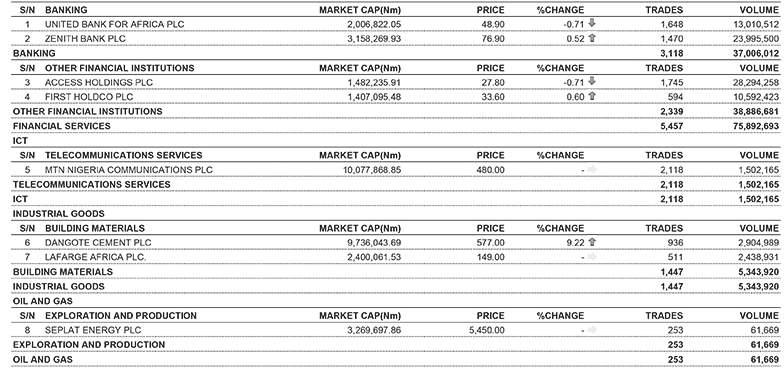
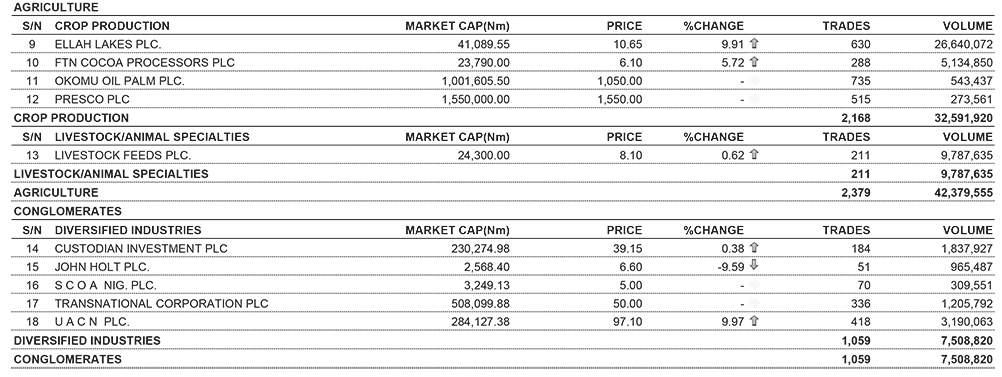
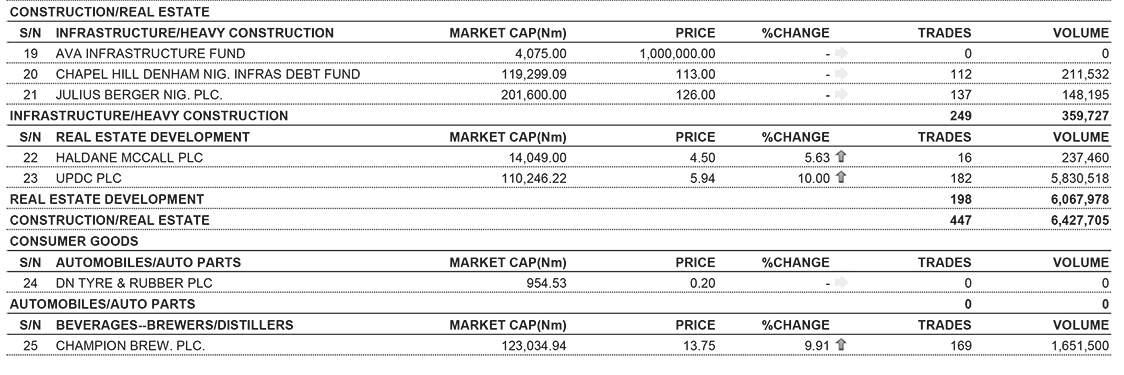
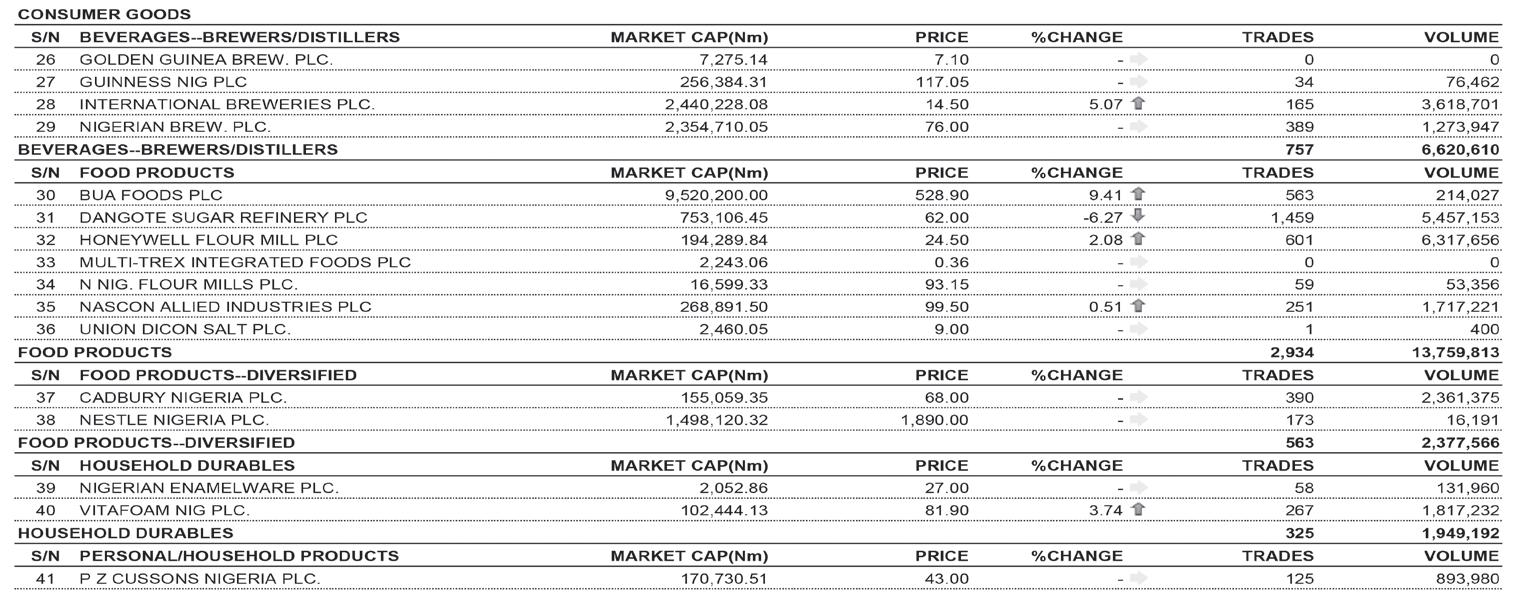

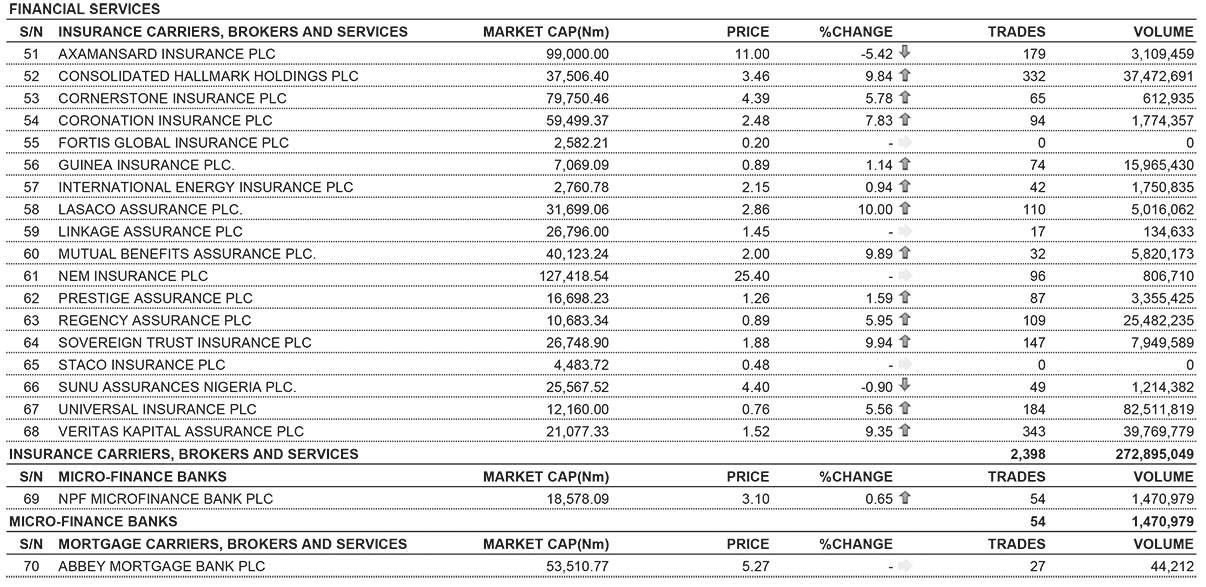

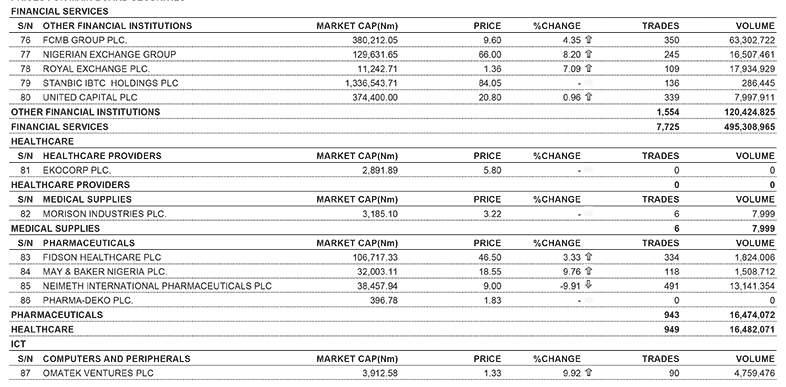
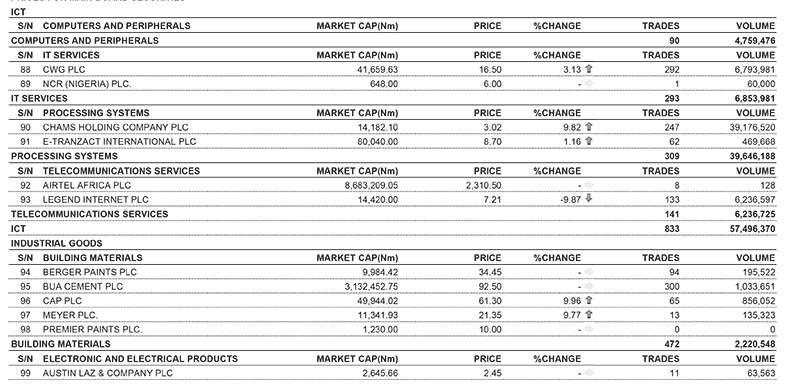
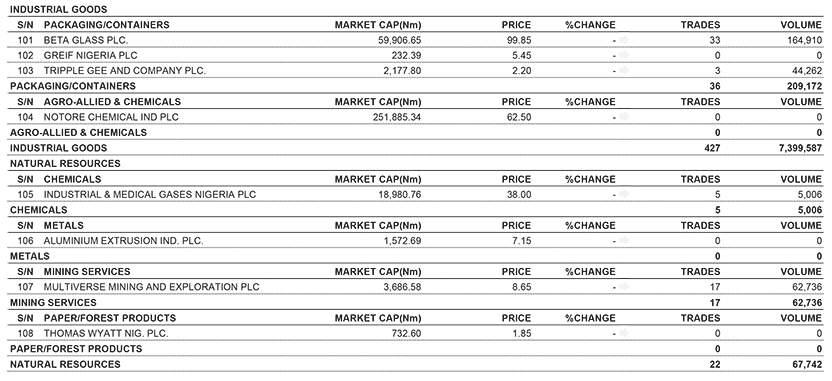
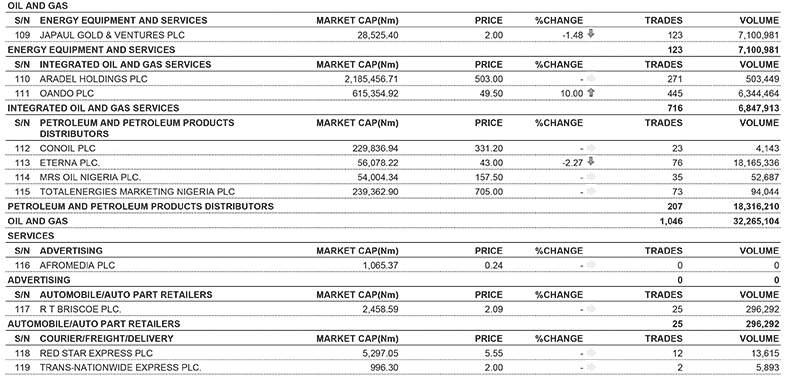
polity
Why Reforms Matter: How UBEC is Unlocking New Frontiers for Basic Education
By ololade R. Atobajaye
Over time, Nigeria’s basic education sector has trudged along under the weight of outdated systems, bureaucratic bottlenecks, and a disconnect between policy and actual impact. The stories were familiar: matching grants that couldn’t be accessed, classrooms without learning materials, and millions of out-of-school children, underserved by the system. But all of that is changing, quietly but powerfully, through reforms led by the Universal Basic Education Commission (UBEC) under the current administration of its Executive Secretary, Dr. Aisha Garba.
This transformation isn’t built on rhetoric. It’s built on results.
For the past 20 years, states across Nigeria struggled to access matching grants due to rigid, bureaucratic conditions that turned resources meant to catalyse development into funds trapped in administrative limbo. Those unutilised funds turned into unbuilt schools, unfurnished classrooms, unpaid teachers, and ultimately, untaught children. It was two decades of missed potential, of progress stalled by process.
But then came the reforms in UBEC under the leadership of Dr. Aisha Garba. By stripping down and overhauling these longstanding barriers, UBEC has breathed new life into the basic education framework. The Commission has removed the friction in the system, introducing mechanisms that are not only efficient but also transparent. This isn’t just a policy tweak. It is a structural reset, and the ripple effect is visible across the country.
Today, over 3 million children have already been directly impacted by these changes. Schools that once lacked the bare minimum now have interactive smart boards. A total of 740 of them have been deployed. Girls in alternative high schools now have access to 250 desktop computers, a deliberate step toward inclusion. Children with special needs are not left behind either, with 140 talking computers provided to bridge accessibility gaps. Over 420,000 library materials have been distributed, and more than 158,000 Nigerian History books have found their way into classrooms, putting context and identity back into learning.
Since Dr. Aisha Garba assumed office, UBEC has also distributed over six million primary school textbooks across the country. This milestone represents more than just scale. It signifies a renewed effort to restore quality to early education and ensure that no child is left behind because of a lack of basic learning resources.
What’s more telling is the rate of fund utilisation. Under Dr. Aisha Garba, fund utilisation has now exceeded 60 percent. That’s a leap from years of stagnation when barely half of the available
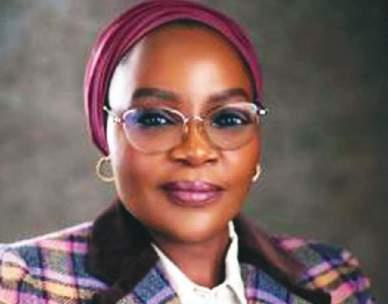
funds were put to use. The reforms have turned resources into results. But beyond these statistics lies a deeper story. One of access, inclusion, and restored public confidence. We are witnessing increased enrolment rates in places once plagued by empty classrooms. Communities that had written off education as a lost cause are seeing their children return to school, some for the first time. And even where numbers don’t yet tell the whole story, the shift in attitude is undeniable. Teachers are more equipped. Parents are more engaged. The system is learning how to work again. This is reform with intentionality. This is execution with empathy.
Yet, the most commendable part of this transformation is that UBEC isn’t resting on its early wins. The leadership understands that foundational change must be sustained, scaled, and supported across levels. That’s where strategic programmes like HOPE-EDU come into play.
The HOPE-EDU programme, a 552 million dollar basic education initiative co-financed by the World Bank and the Global Partnership for
Education (GPE), represents a bold leap toward addressing the structural gaps in Nigeria’s basic education. UBEC Executive Secretary, Dr. Aisha Garba, stated that the initiative has a target reach of 29 million children, 500,000 teachers, 65,000 public schools, and 10,000 non-formal learning centres. The programme embodies both ambition and pragmatism.
UBEC, as the national implementing agency, is providing technical guidance and support to state governments to ensure this programme doesn’t become another well-intentioned policy lost in translation. What makes HOPE-EDU stand out is its clear alignment with real-time needs. Learning outcomes, equitable access, and systems strengthening. It acknowledges that solving Nigeria’s education crisis isn’t just about building more schools. It’s about building better systems to support learning in all its forms.
The initiative also speaks to the Commission’s wider focus on evidence-based governance. Data is being used not just to diagnose the problems, but to tailor solutions in a way that is measurable and scalable. Whether it’s deploying digital tools
in underserved regions or distributing culturally relevant textbooks, the goal remains the same: to raise the floor for every learner and make quality basic education non-negotiable.
In a country where 10.5 million children were once estimated to be out of school, these reforms are nothing short of urgent. But more than urgency, they require consistency, and that’s what the current UBEC administration is delivering.
By intentionally focusing on foundational learning, Dr. Aisha Garba and her team are reinforcing a truth we too often overlook. There is no tertiary without primary. A solid education system is built from the ground up. The quality of our universities, our workforce, even our governance, rests heavily on how well we teach our children to read, write, think, and question in their earliest years.
Nigeria’s education woes did not begin overnight, and they will not be resolved overnight. But when a system begins to correct itself, when it learns to be transparent, responsive, and efficient, then real transformation becomes achievable.
And these reforms are not just fixing broken parts. They’re reimagining what basic education can be in this country. They are showing that the Nigerian government can work, that policy can reach people, and that with the right leadership, Nigeria’s education story can change.
But this momentum must be protected.
State governments, local communities, school administrators, and even parents must align with this vision. Because while UBEC can lead from the centre, sustainable change depends on how far states are willing to go to implement these reforms at the grassroots, getting to those who truly need it. The flexibility now built into the system gives them the opportunity and the responsibility to act. At its core, the transformation of basic education is not just about numbers. It’s about the girl who now has a computer to learn from. It’s about the child with special needs who can finally interact with lessons in a way that speaks to them. It’s about removing our children from the streets. It’s about drastically reducing the outrageous number of out-of-school children. It’s about the teacher who no longer feels like they’re fighting the system to do their job. And it’s about the millions of children who will walk into school tomorrow because yesterday, someone changed the rules. This is not just reform. It’s a declaration that every Nigerian child deserves a fair start in life, and that government has the will and capacity to deliver it.
If this is what Nigeria has been able to accomplish so far, then one can only imagine what’s still possible with the right people at the helm of affairs. And like UBEC rightly put it, we are only just getting started.
•Atobajaye is a writer and education enthusiast who writes from Lagos, Nigeria.
Oluyede: Security Not Only About Military Presence, But Improved Living Conditions
The Chief of Army Staff (COAS), Lieutenant General Olufemi Oluyede, has said security was not only about military presence, but also about improved standard of living of citizens, especially in rural communities.
Oluyede also restated the commitment of the Nigerian Army to strengthening civil-military relations and supporting grassroots development. The COAS stated this while commissioning the newly constructed
state-of-the-art Primary Health Care facility in the Umuchieze community in Abia State.
Represented by the Commander of the Training and Doctrine Command (TRADOC), Nigerian Army, Minna, Major General Kevin Aligbe, the Army Chief stated that the project
was part of the Nigerian Army’s ongoing efforts to foster peace and improve public welfare through non-kinetic interventions.
This landmark initiative, executed under the Chief of Army Staff’s (COAS) Special Intervention Projects and facilitated by the Commander
TRADOC, was named in honour of a retired Major in the Nigerian Army and traditional ruler of the community, His Royal Majesty (Eze) Reuben Oguchi Okwale (JP), Chieze II of Umuchieze.
A statement by the Acting Deputy Director of Army Public Relations, 82
HYPREP Expresses Commitment to Fulfilling Implementation of UNEP Report in Ogoni
Blessing ibunge in Port Harcourt
The Hydrocarbon Pollution Remediation Project (HYPREP) has expressed commitment to achieving the implementation of the United Nations Environment Programme (UNEP) report in the remediation and restoration of the Ogoni degraded environment.
The federal government agency made the commitment while commemorating the 14th year of the UNEP release for the environmental assessment of Ogoni.
The UNEP report which was released on August 4, 2011, detailed the devastating effects of hydrocarbon pollution on the environment and
the livelihoods of the people, thereby making feasible recommendations for the remediation and restoration of impacted communities.
The report signaled federal gov- ernment’s commitment to address decades of environmental concerns in the Niger Delta sternly and further heralds a transformative developmental trajectory for the Ogoni people.
Speaking on the report, Enuolare Mba-Nwigoh, Head of Communications HYPREP, said 14 years after the UNEP report and the establishment of the agency, a glimmer of hope now beckons from the horizon, transforming a once seemingly bleak and despairing situation
into one of opportunities, boundless possibilities, and a reassuring future for the communities and posterity.
He said, “The implementation of the UNEP report’s recommendations by HYPREP has made its spirit and letter a reality, expressing and interpreting its tenets in ways that place the people at the core of the environmental remediation and restoration of livelihood efforts”.
Mba-Nwigoh noted that HYPREP has recorded tremendous successes in soil and groundwater remediation, shoreline cleanup, mangrove restoration; provision of potable water, public health interventions, construction of the Centre of Excellence for Environmental Restoration
(CEER), Construction of the Ogoni Power Project (OPP) and sustainable livelihoods.
“We are pleased to confirm that we are on track in our noble quest to fulfil the Project’s core objectives. This is evident in the scorecard so far. In remediation, we have completed and obtained NOSDRA’s closeout certification for 50 lots in the Simple-Risk sites.
“The ongoing remediation of medium risk complex sites, involving remediation of contaminated soil and groundwater is 38% complete. The Phase 1 shoreline cleanup and mangrove restoration stands at 56% and 93% completed, respectively.
“Similarly, notable achieve-
ments have been recorded in the construction of the CEER, which is currently at 90%. Additionally, Ogoni Specialist Hospital and Buan Cottage Hospital are at 86% and 98% complete, respectively.
“The provision of potable water has gained momentum, with 30 communities already having access to water. Four additional gigantic water projects will be commissioned in the next three, which will increase the number of communities in Ogoni with reticulated potable water to 42. Phase 1 of the Ogoni Power Project is over 40% complete, while more than 5,000 Ogoni youths and women have been trained in 20 skill sets.
Division, Nigerian Army, Lieutenant Colonel Olabisi Ayeni, said the newly commissioned health care centre was heavily equipped.
This included a fully functional consultation unit, maternity and laboratory sections, a nurses’ station, medical store, modern sanitation facilities, a solar-powered borehole for clean water supply, perimeter fencing, and solar-powered lighting systems to ensure round-the-clock functionality and security.
The Governor of Abia State, Dr Alex Otti, commended the Nigerian Army for its impactful intervention. Represented by the Commissioner for Health, Professor Enoch Ogbonnaya Uche, the governor said, “This facility is more than just a building; it is a beacon of hope. It represents quick access to medical attention, safer childbirth for our mothers, timely treatment for our children, and a stronger, healthier community.”
Earlier, the Chief of Civil-Military Affairs (Army), Major General Gold Chibuisi, noted that the project was warmly received by traditional rulers and residents, who described it as life-saving.
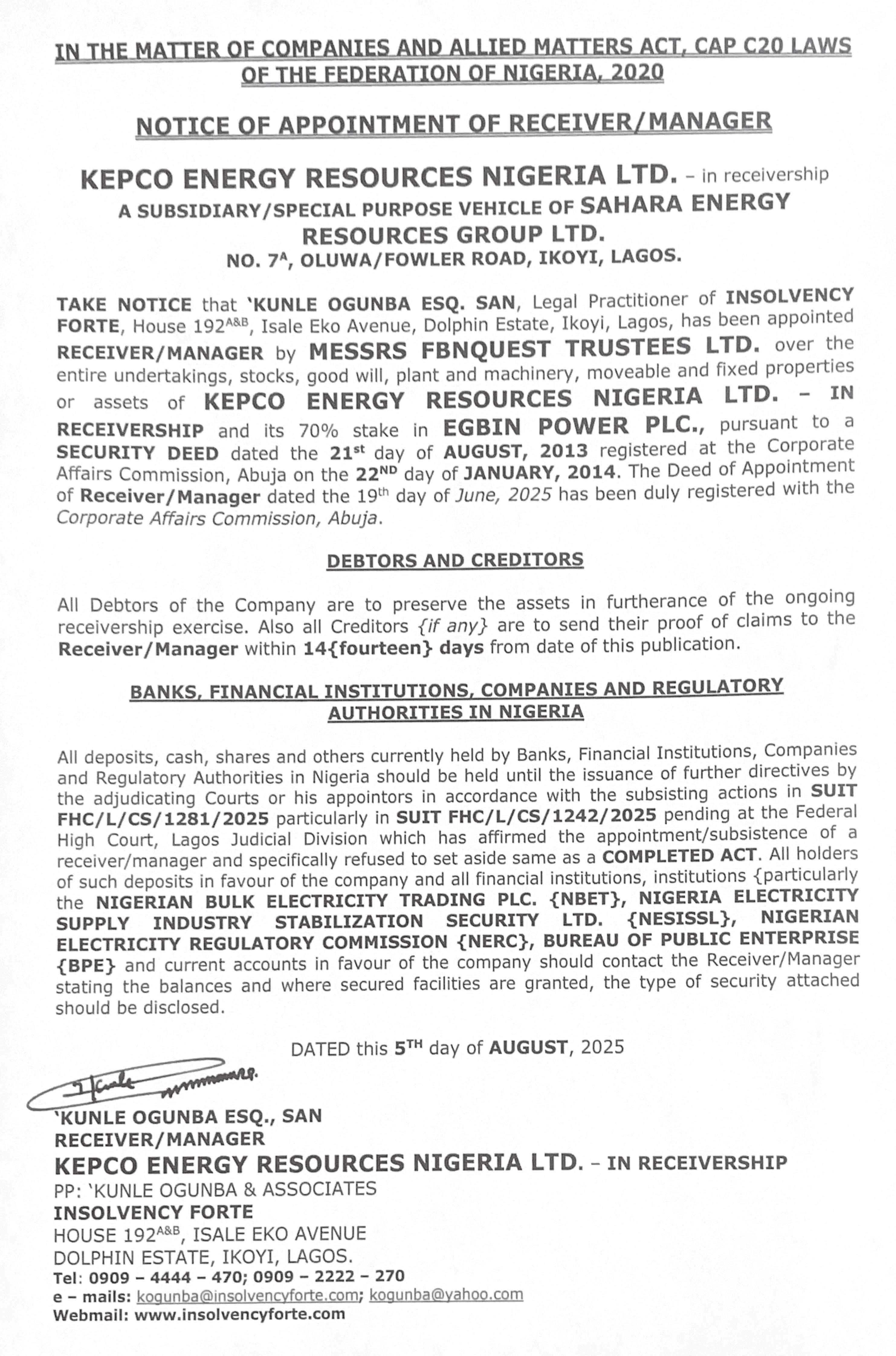
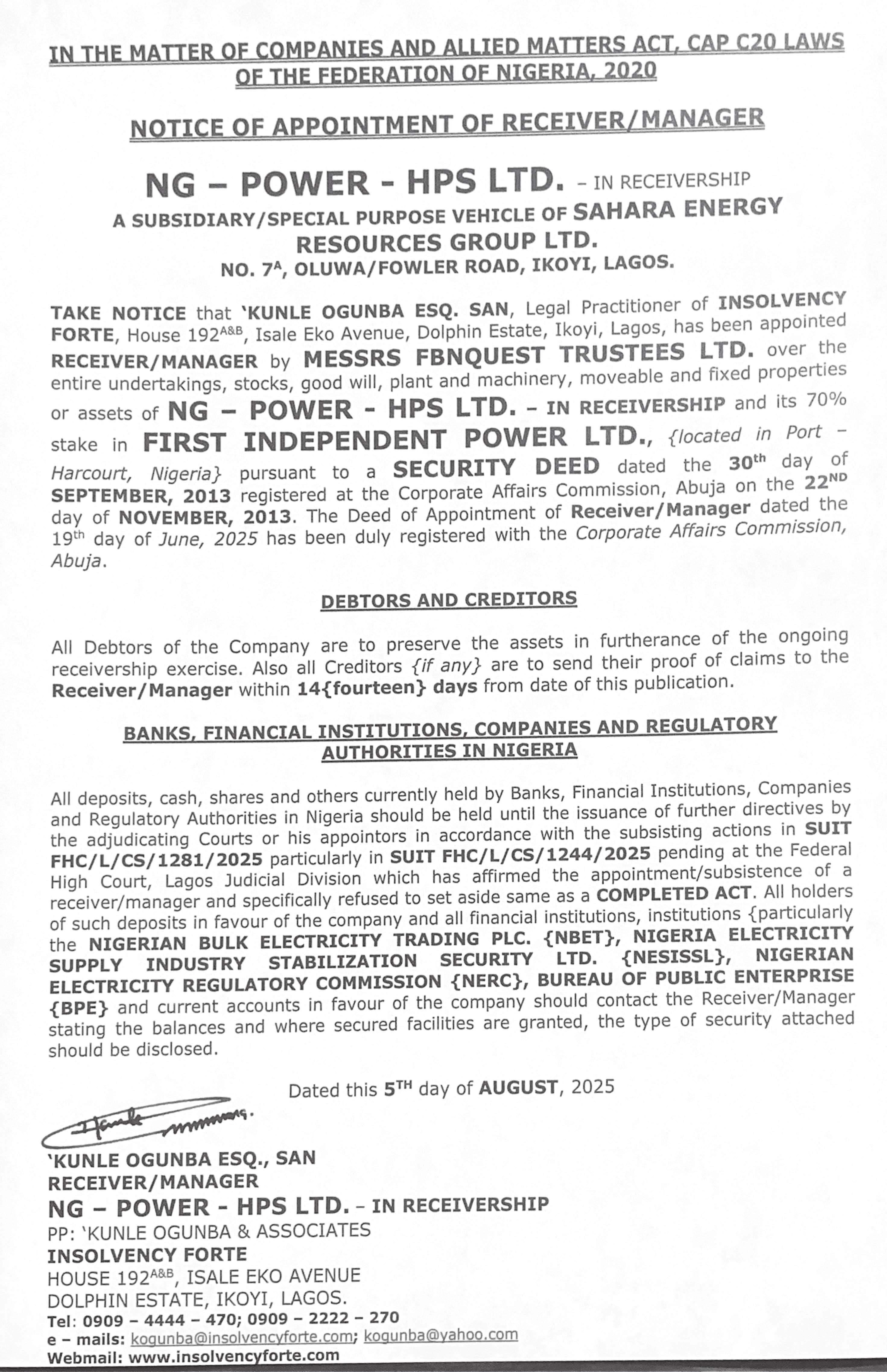
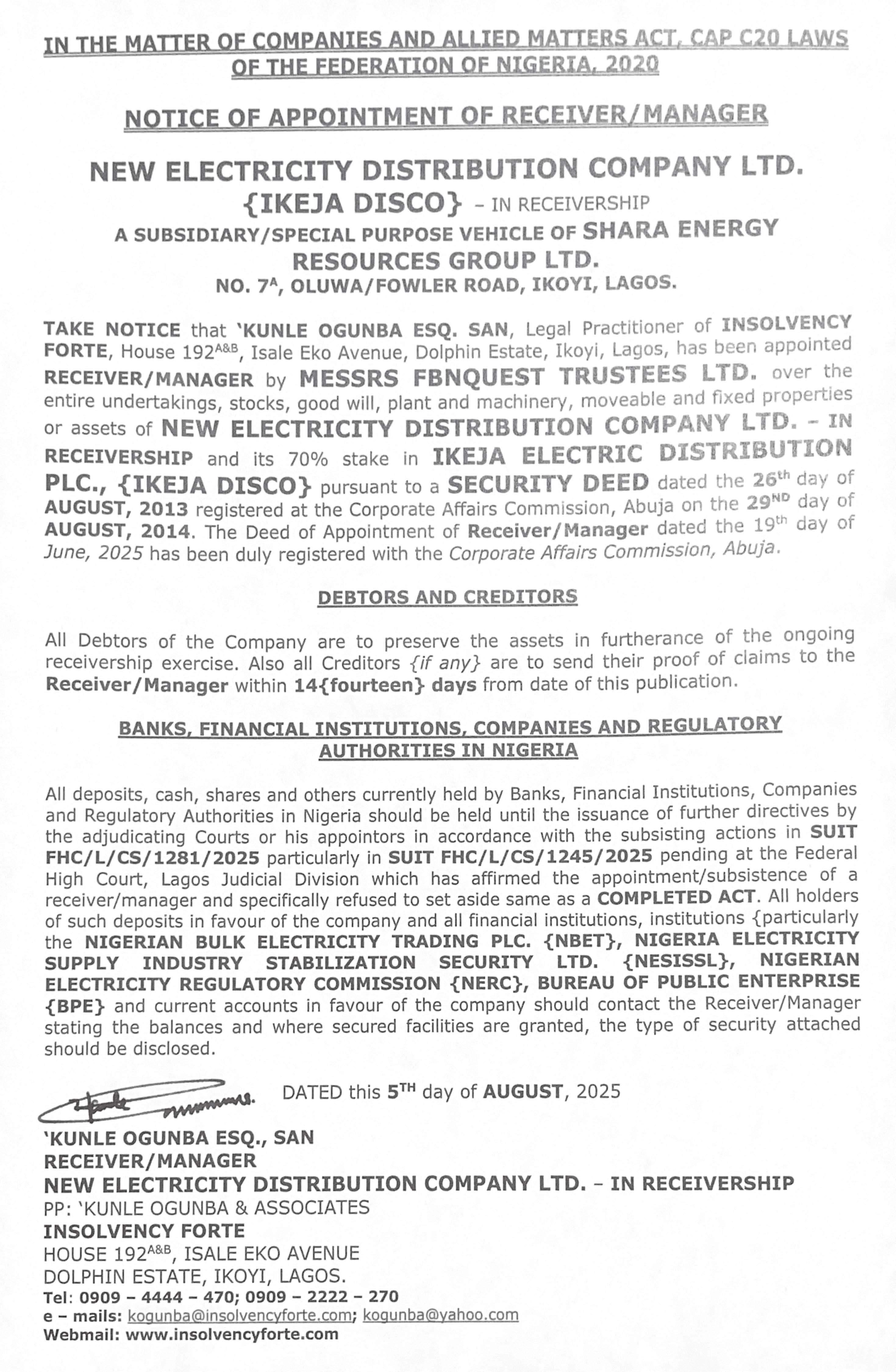
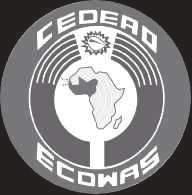



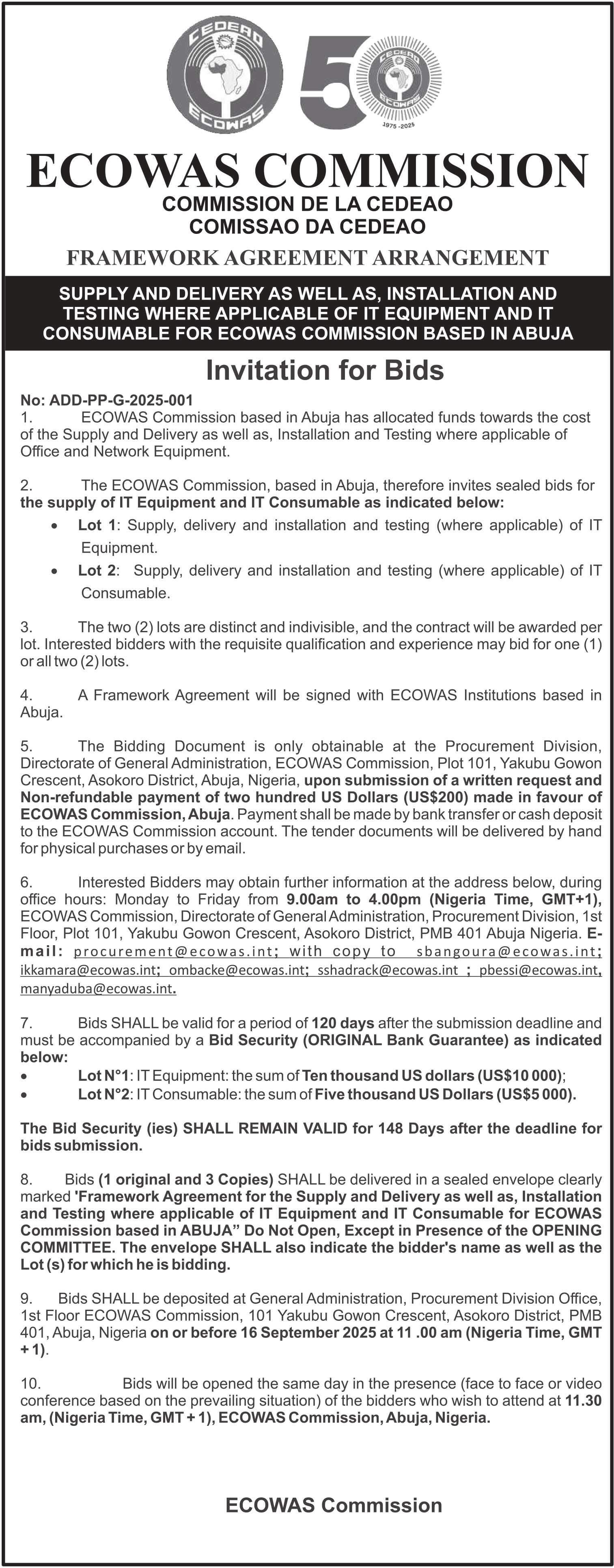
Notorious Bandit Kingpin,Turji Bello, Frees 32 Hostages in Zamfara
Linus Aleke in abuja
The notorious bandit kingpin terrorising the North-west zone, Bello Turji, has finally reached a truce with cleric mediators, Asadus-Sunnah, and released no fewer than 32 hostages in his custody.
The bandit leader also surrendered some of his arms to mediators and reportedly pledged to halt attacks on farmers in the zone. The surrendering of arms by the bandit kingpin followed a series of peace talks led by Islamic clerics, known as Asadus-Sunnah.
This development has raised hopes of calmness and peace in
a region long plagued by deadly violence and mass abductions.
Sheikh Yusuf, leader of the clerical delegation, revealed this during a religious gathering held on Monday in Kaduna State.
According to him, the engagement with Turji took place during three separate meetings in July, deep within the Fakai forest in Shinkafi Local Government Area.
He stressed that his delegation was invited by residents of Shinkafi who were desperate to access their farmlands without fear of violence.
The clerics met with Turji and other key terrorist figures in the
area, including Dan Bakkolo, Black, Kanawa, and Malam Ila. Meanwhile, contrary to earlier rumours, Yusuf confirmed that Dan Bakkolo is alive.
According to him, “These are the men responsible for terrorising the Shinkafi axis. They all agreed to the peace proposal, one of which required them to surrender part of their weapons to demonstrate commitment.”
The disarmament process reportedly happened in three phases, and in exchange, residents were granted safe passage to their farmlands in and around the forest.
SWAGA: Tinubu ‘ll Win More Northern States in 2027
The National Chairman of the South-West Agenda for Asiwaju (SWAGA), Senator Dayo Adeyeye, has expressed confidence that President Bola Tinubu will secure more votes from northern states in the 2027 general election.
Adeyeye made the remarks during a press briefing on August 5 in Ikeja, Lagos, where the group officially launched its campaign in support of the president’s second-term bid. According to him, the formation of the pro-Tinubu movement in 2020 was driven by its belief in Tinubu’s capacity
to bring the presidency to the South, a mission he said had been accomplished. He cited the president’s achievements in office so far to include infrastructural development, the floating of the naira, the removal of fuel subsidies, and investments in education.
Responding to speculation that President Tinubu lacks support from the North ahead of the 2027 election, Adeyeye dismissed the claim, asserting that the president would secure an overwhelming victory.
“I see greater consensus for the president in the North. Asiwaju Bola Tinubu will win more northern states in 2027
than he did previously,” he said. The SWAGA leader further challenged the idea of a unified northern voting bloc, noting that: “It’s a myth to talk about the North as a monolithic political entity. The region comprises at least three geopolitical zones and does not vote the same way all the time. There’s always been diversity of political interests in the North, just as in the South.” Adeyeye also dismissed critics who claim the North will reject Tinubu’s re-election bid.
According to him, “Who are these people saying the North won’t vote for Asiwaju? They have no electoral value. We don’t even know them.”
Benue Assembly Asks Gov Alia to Sack SUBEB Chairman
George Okoh in Makurdi
The Benue State House of Assembly has passed a resolution, calling on the Governor of Benue State, Hyacinth Alia, to suspend the Chairman, State Universal Basic Education Board (SUBEB) Dr. Grace Adagba for a period of six months.
The house also directed the Special Adviser, Bureau for Local
Government and Chieftaincy Affairs, Mr. Denen Aondoakaa to stop releasing funds to the board.
Mover of the motion, Hon. Bemdoo Ipusu, informed the house that the chairman had refused to honour the ad hoc committee constituted by the house to investigate her illegal activities at the board.
Hon. Ipusu stated that the SUBEB chairman has written
to the House, claiming it has no right to investigate contracts from the board, and accused the chairman of deliberately obstructing the House from exercising its constitutional oversight mandate.
Contributing, members expressed strong displeasure over the SUBEB chairman’s behavior and urged the House to recommend her immediate suspension.
Nwifuru Recalls Commissioners, Others
Benjamin Nworie in abakaliki
Ebonyi State Governor, Hon. Francis Nwifuru, has lifted the suspension on 81 Government officials.
In a statement signed by the Chief Press Secretary to the Governor, Dr Monday Uzor, the governor directed the Commissioners, Senior Special Assistants , Special Assistants and Permanent Secretaries, who were suspended on the 28th of July, 2025 to resume official duties immediately.
He said: “The Governor of Ebonyi State His Excellency Rt. Hon. Francis Ogbonna Nwifuru, has graciously lifted the suspension on 81 government officials.”
“The governor directed the Commissioners, Senior Special Assistants , Special Assistants and Permanent Secretaries who were suspended on the 28th of July, 2025 to resume official duties immediately.”
AP Rewards Loyalty with Instant Cash, Airtime in Visco 2000 Promo
Ardova Plc (AP), Nigeria’s leading integrated energy company, has launched the AP Visco 2000 Instant Reward Promo in a compelling move that reaffirms its unwavering commitment to enriching the lives of customers beyond just their engines.
The promo, according to the company, is a nationwide initiative designed to give back to the customers who have fuelled the brand’s growth through their loyalty, trust, and patronage.
Running from August 1, 2025 to December 31, 2025, the AP Visco 2000 promo offers instant gratification to customers who
purchase AP’s range of highperformance lubricants, including Visco 2000, Super Visco Static, HD40, and many more.
The company explained that for every 1 litre purchased, customers receive an instant N200 reward; 4 litres earn N400, and buyers of 25 litres walk away with N1,000. These rewards are redeemable on the spot—either as cash or airtime—at AP Filling Stations nationwide and other accredited points of sale.
Commenting, Managing Director of Ardova Plc, Moshood Olajide, said: “At AP, we believe value should go beyond product
performance. While our lubricants are engineered to protect and power engines across Nigeria, we are equally driven by a human mission—to appreciate and uplift the people who choose us every day.”
“This promo is not just about rewards. It is about recognition. Recognition of the mechanic who insists on quality. The driver who chooses protection for their vehicle. The everyday Nigerian who believes in the strength of local excellence. With every drop of AP Lubricants, Ardova is not only fuelling engines, but also reinforcing relationships.”
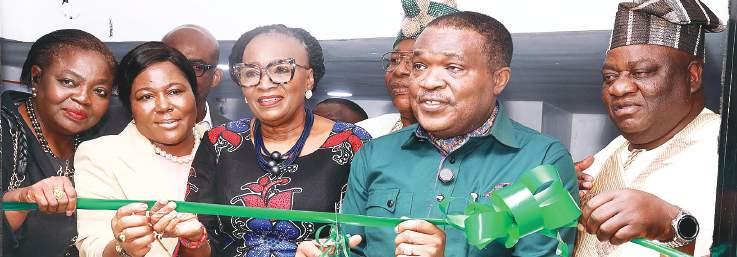
OF NEWLY RENOVATED HAROLD BLOCK OF THE HOTEL...
Tinubu‘s Govt a Total Disaster, Worse Than Buhari’s, Declares Ex-minister Waziri
A chieftain of African Democratic Congress (ADC) and former Minister of Police Affairs, Alhaji Adamu Waziri, said the President Bola Tinubu administration was a “disastrous
catastrophe” that had performed worse than the much-maligned government of former President Muhammadu Buhari.
Speaking in a television interview monitored by THISDAY, Waziri expressed deep concern over what
he described as Nigeria’s steady descent into economic hardship, insecurity, and national disunity under Tinubu’s watch.
“If the Buhari government was a failure, the Tinubu government in the last two years is a disastrous
catastrophe,” Waziri declared, saying, “It has failed in all ramifications, and the country has regressed.” Waziri pointed to worsening security challenges, a collapsing economy, and rising ethnocentrism as evidence of the administration’s
failures. He said the present leadership had not only failed to build on past efforts but has also deepened the country’s problems.
“The economy is collapsing, ethnocentrism is at an all-time high, and insecurity continues to
Makinde: We’re Determined to Finish Strong
Kemi Olaitan in Ibadan
Oyo State Governor, ‘Seyi Makinde, yesterday approved the reconstruction of the 23-kilometre stretch of road linking Okaka to Igbojaye and Kunle Afolayan Productions Film Village in Komu, all in Itesiwaju local government area of the State.
This is just as the Governor expressed the commitment of his administration to finish strong.
The approval for the reconstruction of the road came on the heels of the governor’s commitment in April 2025 during the unveiling of the Film Village, as he expressed his administration’s readiness to enhance rural infrastructure and promoting culture and tourism in the state. Makinde, while disclosing the approval at the Hijrah 1447 luncheon organised by the state government and held at the Presidential Lodge, Secretariat, Ibadan, stated his administration’s determination to finish on a strong note by delivering landmark projects and achieving its vision of sustainable development for the state.
He called on residents of the state to intensify efforts in praying for the government, supporting it and giving
constructive criticisms and credible advice towards ensuring that the last 22 months of the administration are as eventful as the past six years and two months.
According to the Governor, the support, advice, and prayers of Oyo State residents have, over the years, helped his administration to achieve unprecedented developments, which have also made the state a model in terms of peace, security, and economic prosperity.
While noting that his government was determined not to leave uncompleted projects, Makinde stated that the government had delivered on most of its promises under Omituntun 2.0 and that residents of the state should continue to remind the government about its promises.
He said, “Over these years, we have listened to different sermons to mark Hijrah, but there are certain things that are constant.
“One of them is the fact that we are not just celebrating for the sake of celebration, but because God has sustained our lives to celebrate the moment.
“And, if God has sustained our lives to this very moment, we must always do our best for our state,
being the teaching that has been constant in those lectures we have received over the years.
“I have Muslim blood in my vein. We talk of religious tolerance, good deeds, perseverance and all that. But I will ask for something; we have spent six years out of eight. The remaining two years, you need to continue to pray for us. We may have done well for the past six years, but we want to finish strong in the next two years.”
He added: “It is important that you should continue to give us useful advice till the last day of this tenure.
“Also, you need to intensify your prayers for us, because God answers them, and it has seen us through the tough times up to this point. That is why Oyo State has been relatively peaceful and prosperous.
“Usually, when governors get to the halfway of my second tenure, people abuse them for maladministration. But I was at the Bodija Market yesterday, and they didn’t abuse us. They were rather praising and praying for us.
“In the last two years, there were promises that we made. Some have been fulfilled and some are yet to be fulfilled. Please, keep reminding us.
Lassa Fever Casualties Hit 155
Onyebuchi Ezigbo in Abuja
The Nigeria Centre for Disease Control and Prevention (NCDC) said deaths arising from Lassa Fever disease has risen to 155 this year.
In its latest Lassa Fever Situation Report published for Week 29, (14th–20th July, 2025), the Centre said there were 822 confirmed cases and 155 deaths recorded cumulatively in 2025
A statement signed by the Director General of NCDC, Dr. Jide Idris said that 11 new confirmed cases were reported in Ondo and Edo states
He said the Case Fatality Rate (CFR) is 18.9 percent, higher than the Case Facility Rate (CFR) reported
same period in 2024 (17.1 percent).
According to 89 percent of confirmed cases are from five states: Ondo, Bauchi, Edo, Taraba, and Ebonyi
We encourage you to use and share this data in your public health stories and updates. Giving further details, NCDC said that cumulatively for 2025, 21 States have recorded at least one confirmed case across 105 local government areas. It said that 89% percent of all confirmed Lassa fever cases were reported from five states (Ondo, Bauchi, Edo, Taraba, and Ebonyi) while 11 percent were reported
from 16 states with confirmed Lassa fever cases.
Of the 89 percent confirmed cases, the report said that Ondo State accounted for 32 percent, Bauchi 23 percent, Edo 17 percent, Taraba 14 percent, and Ebonyi 3 percent. It added that the predominant age group affected is 21-30 years with the male-to-female ratio for confirmed cases as 1:0.8.
The number of suspected and confirmed cases decreased compared to that reported for the same period in 2024.
The Centre said no new healthcare worker was affected in the reporting week 29.
“By the end of September, this government will not commit to any major project again. Whatever project we commit to, we will see it through. This is because by the time we are leaving in the next 22 months, we do not want to leave any uncompleted or abandoned projects.
“So, don’t think because we have done well for six years, you can now leave us. If we finish strong, then we would have delivered to yourselves and the people of Oyo State on the promises we made to them.”
The governor equally used the opportunity of the occasion to make good on a promise he made during the last Omituntun Ramadan Lecture, saying, “During the last Ramadan
Lecture that I organised, I promised the Chief Imam of Ogbomosoland one bus and I have the key with me here.
“And, for the Muslim Community, I also promised them a new bus and I have the bus here too.
“Please reach out to us on any promise you feel we are yet to fulfil.”
Earlier in his address, the Deputy Governor of the State, Abdulraheem Bayo Lawal, thanked God for the opportunity to witness another Hijrah Luncheon celebration, while he also appreciated the governor for sustaining and supporting the programme every year.
He acknowledged the support of Makinde to the Muslim Ummah, saying this has ensured progress and development in the state.
ravage many states,” he said. The former minister accused the Tinubu government of lacking national direction and failing to unite the country, warning that Nigeria has become increasingly fragile and polarised.
Waziri lamented, “Under this government, Nigeria has lost its compass. We are more divided, more fragile, and there is no clear path forward.”
He also questioned the sincerity of public figures, who publicly endorsed the administration while their own communities suffered from insecurity and lawlessness.
“I am surprised that people whose local governments are under the control of bandits can appear on national television to endorse this government,” Waziri stated. He urged Nigerians to critically evaluate the government’s performance beyond curated media appearances and political endorsements.
He stated, “Nigerians must look beyond staged media appearances and assess whether their lives have improved in the last two years. The facts on the ground tell a different story.”
He cautioned that an administration responsible for such national decline lacked the moral grounds to seek re-election.
Couple Sentenced to 22 Years Imprisonment for Drug Trafficking
Indian lady, Angolan bizman,
Michael Olugbode in Abuja
A businessman Ajah Johnson Uchenna and his wife Rosemary Uchenna were on Monday 4th August 2025 sentenced to a total of twenty two and a half years imprisonment by Justice Deinde Dipeolu of the Federal High Court 8 in Lagos for dealing in illicit drugs.
The couple was first arrested on Friday 13th June by operatives of the Department of State Security (DSS) in Ojo area of the state and transferred to NDLEA along with 277.5kg skunk, a strain of cannabis.
While they were still being investigated in custody, credible intelligence revealed that the family business was going on in their house.
This led to a raid of their home and a packing store where 231kg of same substance was recovered by NDLEA operatives on Tuesday 1st July.
They were subsequently arraigned
in charge number FHC/L/632C/2025 at the Federal High Court Lagos on a four-count charge bordering on conspiracy, dealing and storage of 414.2 kilograms of cannabis sativa.
Delivering his judgement on the case on Monday 4th August, Justice Dipeolu convicted Mrs. Rosemary Uchenna on counts 1, 2, and 3 and sentenced her to 17 years in prison without an option of fine, while her husband Johnson Ajah Uchenna was convicted and sentenced to five years imprisonment without option of fine on count 1 and six months in jail on count 4 with an option of N1 million fine.
In addition to the jail terms, the trial judge also ordered the sum of three million, four hundred and seven thousand naira (N3, 407,000.00) only recovered from the couple as proceeds of crime be forfeited to the federal government. Similarly, a Federal High Court
in Lagos
in Kano presided by Justice Simon Amobeda has convicted and sentenced a 42-year-old Indian lady, Neetu Neetu to five years imprisonment for importing 72 parcels of heroin factory sealed in wafer wraps and packaged as chocolates, weighing 11 kilograms into Nigeria through the Mallam Aminu Kano International Airport (MAKIA) Kano. The class A drug consignment was recovered from Neetu’s luggage after a thorough search, following processed credible intelligence, during an inward clearance of Qatar Airways flight QR1431 from Bangkok, Thailand via Vietnam and Doha at the arrival hall of the Kano airport on Friday 14th March 2025. She was subsequently arraigned in charge number FHC/KN/ CR/65/2025 before Justice Amobeda who eventually sentenced her to 10 years on two counts with an option of N2million fine.
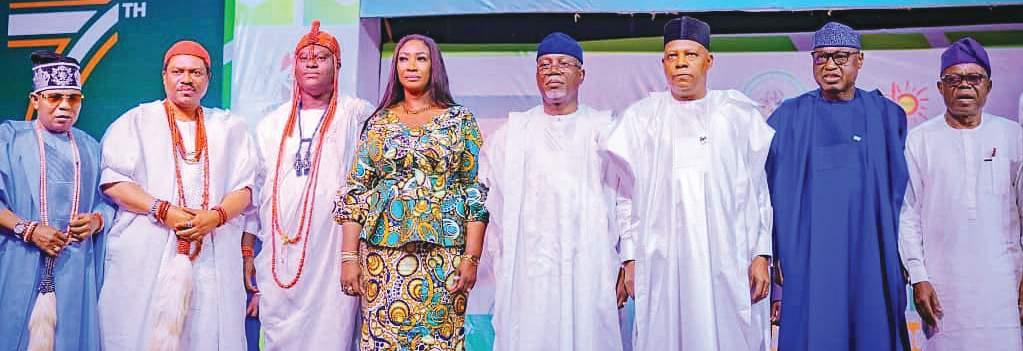
7TH EDITION OF THE EXPANDED NATIONAL MSME CLINIC: TAGGED ONDO 2025...
Governor Abiodun Oyebanji of Ekiti State; and Deputy Governor of Ondo State, Dr.
National Micro, Small and Medium Enterprises (MSME) Clinic, tagged Ondo 2025, held at the International Culture and Event Centre, Akure, yesterday
Adelami,
States Condemn EEDC’s Power Cut in Enugu as Residents, Businesses Suffer Outages
Uzoho
Nigeria’s 36 states through the Forum for Commissioners of Power and Energy in Nigeria (FOCPEN) yesterday condemned the ongoing power outages in Enugu State, which they attributable to a deliberate action by the Enugu Electricity Distribution Company Plc (EEDC) to reduce power to the state’s electricity market.
The EEDC had based its decision on the recent tariff order issued to its subsidiary company, MainPower Electricity Distribution Limited, by the Enugu Electricity Regulatory Commission (EERC), which reduced Band A electricity tariffs from N209/ kwh to N160/kwh effective from August 1, 2025.
In a statement joined signed by its Chairman and Cross River State Commissioner for Power, Eka William and the Secretary and Benue State Commissioner for Power, Omale Omale,
FOCPEN said it viewed the unilateral action by EEDC not merely as a regulatory dispute with the regulator, but as a declaration of war on the people of Enugu State by EEDC.
“FOCPEN wishes to state that EEDC’s reckless action is a grave violation of its license obligations under existing national electricity regulations. EEDC’s action is also a clear demonstration of the flawed privatization process that has empowered private investors of Discos to deprive citizens of essential electricity
services with impunity.
“FOCPEN wishes to state unequivocally that if MainPower or EEDC believe the tariff as set by the regulator is inadequate, the appropriate and legal path is to seek a review through established regulatory processes. To resort to an arbitrary disconnection or reduction of power by up to 50 per cent to a state, smacks of blackmail by EEDC”, the commissioners said.
According to them, EEDC’s action also portends grave danger for consumer rights in the Nigerian Electricity Supply Industry (NESI), and undermines the ongoing implementation of State Electricity
Markets (SEM).
Furthermore, the commissioners claimed that the power cut in Enugu by EEDC exposes the alarming market power of Discos to hold electricity regulators at sub-national and at the federal level to ransom.
They posited that EEDC’s action sets a dangerous precedent for other Discos to undermine the successful implementation of the Electricity Act 2023 and decentralisation of electricity regulations.
The FOCPEN called on the Nigerian Electricity Regulatory Commission (NERC) to immediately call EEDC to order.
The statement said NERC, as the
current regulator of EEDC must investigate the matter thoroughly and sanction the unacceptable action by EEDC, which FOCPEN believes has no regulatory approval from NERC.
To prevent such reckless action by a distribution licensee from happening again, FOCPEN demanded among others, ministerial intervention.
Specifically, FOCPEN called upon the Minister of Power, Chief Bayo Adelabu, to immediately intervene and prevail upon NERC and EEDC to reverse the power cuts and restore electricity to the people of Enugu State.
As the chief policy maker for the sector, the forum argued that the
minister must take decisive action to stop the lawlessness by Discos who can arbitrarily and without consequence deprive citizens of electricity.
It also called for regulatory reform of the wholesale market, advocating that NERC must develop appropriate regulations that would allow Subcos to enter into bilateral contracts with generation companies (Gencos) to procure wholesale power from the national grid.
The commissioners explained that such regulation may include a mandate for the Nigeria Bulk Electricity Trading Plc (NBET) to enter into direct or interim Power
Purchase Agreements (PPAs) with Subcos.
The commissioners argued that the current arrangement, where Subcos receive power through their HoldCos, was an anti-competitive practice that limits their operational autonomy within State Electricity Markets (SEMs) and creates a potential for abuse, as evidenced by the current crisis. While recommending that NERC must sanction EEDC for its actions, FOCPEN said the commission must prove that it has the teeth to regulate the NESI as the apex regulator and protect consumers from the tyranny of powerful successor Discos HoldCos that are currently its licensees.
If Service is the Motive, Turning the Tide in Four Years is Possible, Obi Doubles Down
Chuks Okocha in Abuja
The presidential candidate of Labour Party (LP) in 2023, Mr. Peter Obi, has replied critics of his insistence that he would deliver good governance within four years, if elected president. Obi, who reacted again on X, said, “I still find it baffling that my decision to do a term of four years, if given the mandate to rule this country, is generating so much agitation. By this feeling, we are
doubting the fact that a sincere leader can achieve much in 48 months.
‘’I have never been desperate in the pursuit of power, or anything else, for that matter. There are some traits associated with desperation, which in no way are in any of my political behaviours in the past and now, like engaging in overly aggressive rhetoric or actions to prove a point or gain attention; becoming overly defensive or reactive to criticism, often to the
point of appearing paranoid.
‘’Making unrealistic or unfulfillable promises to win support or approval, resorting to personal attacks or character assassination to discredit opponents or frequently changing positions or policies to suit immediate political needs.”
Obi stressed, “What drives me is not personal ambition, but a deep commitment to see Nigeria work. And if the sacrifice required of me is four years of sincere, accountable leadership, so be it.
“I have never been involved in thuggery, the snatching of ballot boxes, or any form of electoral
malpractice. I challenge anyone: conduct your investigations. You will find no stains of rigging or violence associated with my name.
I have always chosen the path of peace, principle, and civility.
“Ask those who have contested against me—none were ever denied their rights, framed, or falsely accused. None was asked to place their advert materials or break the bank to do so. I believe in fair competition, not manufactured victories.
“In four years, we can confront corruption head-on, redirecting resources to priority areas. For instance, the trillions used to
acquire new presidential jets and other unnecessary expenses at this time could have been channelled into education, healthcare, or infrastructure.”
The former presidential candidate said, “Within the same period, we ensure that the rule is sacrosanct and the rule of law is strictly followed. Within the same period, we can conduct free, fair and credible elections.
“Leadership, to me, is not about entitlement. It is about service. If given the mandate, for just one term, I will dedicate every moment to building a Nigeria that works for all.”
Chairman of the Progressive Governors’ Forum (PGF) and Governor of Imo State, Hope Uzodimma, has assured party members that the nationwide electronic membership registration of the All Progressives Congress (APC) would commence in ‘full force’ soon.
Uzondinma gave the assurance yesterday after inspecting the facilities alongside the governors of Kogi State, Usman Ododo and his Delta State counterpart, Sheriff Oborevwori, at the national secretariat of the party in Abuja.
While addressing journalists after the inspection of the data centre Uzondinma expressed satisfaction with the level of preparedness for the party’s digital membership drive.
“We came to monitor and evaluate the extent of the e-registration exercise.
We have inspected and conducted a
trip around the facilities, and we are highly impressed with what we saw.
We are confident that any moment from now, our e-registration will start in full force,” he stated.
Speaking on the directive of President Bola Tinubu that a new national secretariat of the party should be built, Uzodinma noted that “work is in progress.”
Asked about the appointment of Dr. Nentawe Yilwatda as the new APC National Chairman, Uzodinma stressed that the party was happy with his choice.
According to the governor, “Look at him here — handsome, tall, full of energy and intelligence. Our party is very excited and happy with the choice. We are confident that this is what we’ve been looking for.
On the criticisms from the African Democratic Congress (ADC), which claimed it would be disastrous for the APC to remain in power after the
next elections, Uzodinma dismissed the statement outright.
“You called it a claim — it is their claim, not ours. I know there are only two parties in Nigeria: the All Progressives Congress and Others,” he remarked.
On his part, Yilwatda said the leadership of the party has a strong and cordial relationship with the Progressive Governors’ Forum.
His words: “The APC has become a model of unity and internal democracy. Our relationship with the PGF is very cordial. We are exemplary in the way we conduct ourselves in NEC, in how governors relate with the party, and in how members at all levels engage.
“We want to deepen our base in every state and use digital tools to know and support our members. This e-registration will help us with research and allow us to predict our support base accurately.”
Aleke in Abuja
The Inspector General of Police, Kayode Egbetokun, yesterday, expressed frustration over a coordinated social media assault on the Nigerian Police Force by those he described as professional mischief-makers and agents of institutional sabotage. He stressed that these irrelevant attackers of progress twisted facts, maligned honourable men, and attempted to discredit noble efforts with shameless dishonesty.
Egbetokun expressed this frustration while decorating the Police Man of the Year 2023/2024 at the IGP Smart Conference Room, Force Headquarters, in Abuja.
He stated that the provocation of the social media critics, if sus-
tained, would be met with lawful consequences.
He said, “Let me be unequivocal: There is no gender advantage. No ethnic preference. No religious pathway. Only merit. But even as we mark this milestone, we are not blind to the resistance. We know there are those who fear change — who attack progress because it exposes their irrelevance.
“A certain corner of social media has become a playground for professional mischief-makers and agents of institutional sabotage. They twist facts, malign honourable men, and attempt to discredit noble efforts with shameless dishonesty.
“Let me send them a clear and final message: Your lies will not derail our reforms. Your noise
will not drown our resolve. And your provocations, if sustained, will be met with lawful consequences. The Nigeria Police Force is moving forward — with or without your approval.”
To the newly decorated officers, the IGP said, “Your new ranks carry a heavier burden, not just a higher badge. The standard has been raised. The expectations are greater. But I trust you will rise to meet them, as you have consistently done.”
He reminded those who were drowning in the crowd that the doors of honour were wide open, but added that they would not be entered with empty hands.
“Bring your excellence. Bring your discipline. Bring your results,” he charged them.
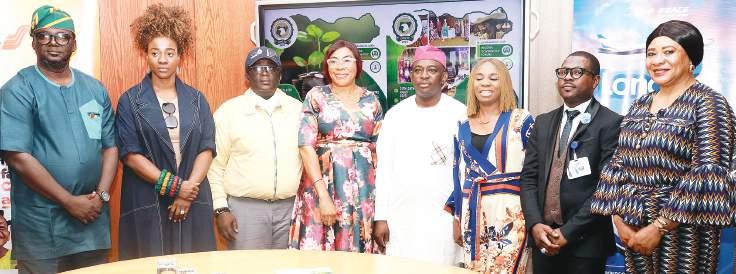
PRESS BRIEFING ON FORTHCOMING DESTINATION NIGERIA GOVERNORS’ TOURISM CONFERENCE...
L-R: Vice President, Federation of Tourism Associations of Nigeria (South West), Mr. Sumonu Gbenga; Director, Sales and Marketing, Eko Hotels & Suites, Dr. Iyadunni Gbadebo; Director, Governors’ Tourism Conference, Aigbofoh John; Head, Marketing and Communications, AERO Contractors, Mr. Ikhuolegbe Samuel; Convener, Destination Nigeria Governors’ Tourism Conference, Ambassador Ayo Omotoso; Director, Governors’ Tourism Conference, Toyosi Ololade; Team Lead, Sales, Air Peace Limited, Mr. Adekunle Aileru; and Chief Operating Officer, My Beautiful Africa,
the press conference on the forthcoming Destination Nigeria Governors’ Tourism Conference in Lagos, yesterday
ADC State Chairmen Reject David Mark,
Atiku, Aregbesola, Other Coalition Leaders
Chuks Okocha in Abuja Crisis appears to be brewing within the coalition party as a group, an umbrella body of state chairmen of the party, Concerned State Chairmen of the African Democratic Congress (ADC), has rejected the new national leadership of the party led by former Senate President David Mark.
In a statement, titled, “Rejecting the Political Junta by Defending
ADC and Nigeria’s Democracy Against Subversion,” signed by the chairman, Amb. Elias Adokwu, and the publicity secretary, Godwin Alaku, the chairmen described the recent takeover of the party by the opposition coalition as an “orchestrated political coup”.
The ADC state chairmen further condemned what they described as the hijack of the party by the coalition, which included former Vice President Atiku Abubakar,
who had already resigned from the Peoples Democratic Party (PDP), to join ADC.
In the statement released yesterday, the chairmen said the emergence of Mark and others as the leaders of ADC was a “blatant and reckless subversion” of the party’s constitution and Nigeria’s democratic norms.
They accused the coalition of attempting an unconstitutional hijack of ADC through manipulation and backdoor dealings.
2027: Kano APC Endorses Tinubu, Hails Ganduje
Ahmad Sorondinki in Kano Kano State chapter of the All Progressives Congress (APC),has lauded President Bola Tinubu’s efforts in address pressing socio-economic issues, expressing their willingness to rally behind him ahead of the 2027 presidential election.
This was as the party stakeholders commended the past National Chairman of the party, Alhaji Abdullahi Ganduje, for his efforts in promoting inclusivity, driving key institutional reforms, and strengthening the party’s internal structures.
During its stakeholders’ meeting in Kano yesterday, the party assessed and reviewed recent developments, and charted a cohesive path forward for the APC.
In a communiqué read by
Alhassan Doguwa, representing Tudun Wada/Doguwa Federal Constituency, the party commended President Tinubu’s Renewed Hope Agenda and his ongoing efforts and initiatives to address socio-economic challenges in the country.
“Stakeholders unanimously reaffirmed their unflinching loyalty to Dr. Ganduje, endorsing him as the undisputed leader of the APC in Kano State. We pledged continued alignment with his people-oriented and progressive vision, which reflects the aspirations of the Kano electorate.
“We expressed deep appreciation for the visionary and exemplary leadership of Dr. Abdullahi Umar Ganduje, CON, immediate-past National Chairman of the APC, who voluntarily resigned his position.
“His tenure was widely lauded for promoting inclusivity, driving key institutional reforms, and strengthening the internal structures of the party.
“Notable achievements under his stewardship include the establishment of the Progressive Institute, the commencement of the e-registration exercise which marks a significant step towards establishing a comprehensive and secure digital database of party members across the country,” the stakeholders added.
The APC stakeholders emphasised the importance of internal cohesion, mutual respect, and strategic collaboration, resolving to strengthen party unity as a prerequisite for sustaining its dominance in the state.
“We unequivocally condemn in the strongest terms this desperate power grab, which represents not only an aberration of democratic norms but also a grave assault on our collective political values as a nation,” the statement said.
The chairmen stated that the move was not a realignment
The Benue State Governor, Hyacinth Alia, has launched Benue Electronic Emergency Management System (BEEMS) to tackle insecurity in the state.
Alia, while launching the project in Makurdi on Monday said the state invested in the project due to persistent insecurity in recent years, assuring the people that his administration was committed to
of political ideology – as stated by the coalition – but a “civilian junta” seeking control outside legal and democratic processes.
Rejecting the Mark-led leadership, they said, “If peaceful change is not possible, violent change is inevitable.
“It is only by the grace of God
tackling the menace with the aid of digital solutions.
He added that it was in line with the administration’s seven-point agenda and particularly in the area of safeguarding the lives and well-being of residents.
Alia, who was represented by the Secretary to the State Government (SSG), Mrs Deborah Aber, urged stakeholders to fully embrace the platform as a strategic tool for improving emergency response
that our democracy survived then, and we must not allow such reckless adventurism to thrive now.”
According to the ADC state chairmen, the takeover was an “insult to all those who believe in and have laboured for democratic governance in Nigeria.”
and governance in the state.
Also speaking, the Managing Director of the Benue State Digital Infrastructure Company (BDIC), Mr. Terwase Gbande, commended SEMA for adopting the digital initiative. Permanent Secretary, Ministry of Humanitarian and Disaster Management, Dr. James Iorapuu, described the BEEMS platform as a milestone that positions Benue as a pioneer in digital emergency response in Nigeria.
James Emejo in Abuja Minister of State for Industry, Senator John Owan Enoh, yesterday assured stakeholders in the Cotton, Textile and Garment (CTG) sector
Minister Urges Social Media Influencers to Showcase Tinubu, Aliyu’s Achievements
Onuminya Innocent in Sokoto
The Minister of State for Works, Bello Muhammad Goronyo, has called on social media influencers to showcase the achievements of President Ahmed Bola Tinubu and Governor Ahmed Aliyu of Sokoto State to the public. Goronyo made the assertion in Sokoto on Monday at a one-day capacity-building workshop for social media influencers, organised by Bello Muhammad Goronyo Associates (BMG) Associates. The workshop was themed:
“Enhancing the capacity of social media influencers towards promoting the 9-point agenda of Governor Ahmed Aliyu and the Renewed Hope Agenda of President Ahmed Bola Tinubu in Sokoto.”
The minister emphasised the importance of social media influencers in shaping public opinion and promoting government policies.
He noted that the federal government, under the leadership of President Tinubu, has been working tirelessly to address
the country’s infrastructure deficit, improve healthcare, and enhance the overall well-being of Nigerians.
Goronyo also highlighted the achievements of the Aliyu administration in Sokoto State, particularly in the areas of education, healthcare, and infrastructure development.
He noted that the governor’s 9-point agenda aligned with the president’s Renewed Hope Agenda, and that both leaders were committed to delivering dividends of democracy to the
people.
The minister urged the social media influencers to set priorities under the Renewed Hope Agenda, noting that Tinubu’s administration was committed to accountability and transparency.
He also emphasised the need for influencers to be factual and accurate in their reporting, and to avoid spreading fake news or misinformation.
Aliyu, represented by his deputy, Muhammad Idris Gobir, noted that his government has been fair to the media in the state.
of President Bola Tinubu’s support to resuscitate their operations.
He said the administration remained steadfast in its mission to restore the country’s industrial pride and reposition the sector as a driver of inclusive growth.
The minister spoke during a strategic tour of key industrial sites in Kaduna State, aimed at rejuvenating the country’s CTG industry.
He was accompanied by the Permanent Secretary of the Ministry, Rimi Abba, and the Managing Director, Bank of Industry (BoI), Dr. Olasupo Olusi.
The tours formed part of the federal government’s renewed commitment to industrial revitalisation under Agenda 7 of Tinubu’s 8-Point agenda, which prioritises job creation, inclusive economic growth, and industrial development.
At the United Nigerian Textiles Limited (UNTL), once a historic textile mill that served as a cornerstone of Nigeria’s manufacturing sector, the minister acknowledged the concerns of the company and reaffirmed that under President
Tinubu’s leadership, several developmental strides have been made to reposition the CTG sector.
According to him, these include convening sub-sector stakeholder engagements to identify and resolve bottlenecks, promoting publicprivate partnerships and collaboration with development partners, strengthening policy frameworks to support local manufacturing and boosting export competitiveness. Enoh, underscored the symbolic and economic importance of UNTL’s revival, stating that its return to full operation would restore confidence in Nigeria’s textile heritage and catalyse broader industrial growth.
According to a statement, the delegation also visited Chellco Industries, a resilient textile firm that has remained operational since 1980, despite decades of economic turbulence, where the minister commended the management for their unwavering commitment and noted that Chellco currently provides direct employment to over 290 workers, contributing significantly to the local economy.
Home-based Eagles Falter in CHAN 2025 Opener Against Senegal
Duro Ikhazuagbe
Home-based Eagles faltered 1-0 in their opening game of the 2025 African Nations Championship (CHAN) Group D Clash with Cup holders Senegal in Zanzibar last night.
The winner was Senegal’s only shot at goal. It came through in the 75th minute following a swift Teranga Lions counter-attack.
Substitute Moctar Koïté darted down the right flank and delivered a pinpoint pass into the box, where
Christian Gomis arrived unmarked to calmly slot home with his left foot beyond the reach of Nigeria’s goalkeeper, Lawal Mustapha.
It was also Eric Chelle’s first defeat eight games in charge of Nigeria’s senior men’s teams.
The high-octane encounter in the Indian Ocean Island lived up to its billing, with both teams matched strength-for-strength and pace-for-pace for large swathes of the game at the Amaan Stadium.
Senegal, winners of the 2022 edition in Algeria, started with
Lookman Risks
Losing Salary Due to Training Boycott
Protesting Ademola Lookman could now risk Atalanta holding back his salary after he stayed away from training for a second day running.
According to the collective bargaining agreement in Italy, three unexcused absences by a player on a week will cause him the right to pay.
Ademola Lookman is in a standoff with his club Atalanta over a proposed transfer to Inter Milan.
The forward has agreed personal terms with Inter, while Atalanta have thus far twice rejected improved bids for the player by their
Italian rivals.
Atalanta insist only they will decide on the transfer and would prefer Ademola Lookman is transferred outside Italy.
Meanwhile, his agent, Andrea D’Amico, has insisted that the Nigerian forward can terminate his Atalanta contract due to dispute.
D’Amico mentioned that Lookman could potentially terminate his contract, similar to the case of Diarra in 2014.
Lookman, being a non-EU player, might leverage European jurisprudence to equate non-community workers with community workers.
Former Arsenal Star, Thomas Partey, Granted Bail on Rape Charges
Former Arsenal midfielder, Thomas Partey, has been granted conditional bail after being charged with five counts of rape and one count of sexual assault.
The 32-year-old Ghanaian appeared at Westminster Magistrates’ Court on Tuesday, charged with five counts of rape against two women, and a charge of sexual assault against a third woman.
The alleged offences took place between 2021 and 2022 when he was playing for north London club Arsenal.
He was charged four days after leaving Arsenal when his contract expired at the end of June. His next appearance is at the Old Bailey on 2 September.
Mr Partey was wearing a black zip-neck jumper, black trousers and carried a navy blazer as he entered court. He stood with his
arms behind his back in the dock.
He spoke to confirm his name and confirmed he understood his bail conditions.
His bail conditions state he cannot contact any of the three women and must notify police of any permanent changes of address or international travel.
The charges follow an investigation by detectives, which started in February 2022 after police first received a report of rape.
Mr Partey’s lawyer, Jenny Wiltshire, previously said he “denies all the charges against him”, adding he welcomed “the opportunity to finally clear his name”.
The footballer is reported to be preparing to join Spanish team Villarreal on a one-year contract, with the possibility of a further 12-month extension.

Junior and Raymond Tochukwu, both of whom picked up early bookings as tackles flew in.
Despite a tense first half filled with heavy challenges and limited goalmouth action, both sides hinted at their attacking intent.
Goalkeeper Mustapha read quite well a good cross from the left in the 21st minute, and in the 33rd minute, the Lions came close again from a free kick on the right.
Despite dominating possession, and throwing bodies manfully during attrition, the Eagles came just short of carving out clear opportunities, as the West African rivals defended with resolution.
Leonard Ngenge and Captain Nduka worked hard at the rear, just as Tochukwu Michael and Olamilekan Adedayo in the midfield, but Senegal threw several men at every Nigerian onslaught and denied the Eagles clear sight of goal.
With a minute left, the Cupholders could have added another goal with a flowing team move, but Ngenge and Nduka were on hand to clear their lines.
Defeat means the Eagles occupy the bottom of Group D without a point, following the earlier 1-1 draw between Congo and Sudan which meant the two teams shared the spoils.
Next up for Nigeria is their second match of the group phase, against Sudan, also at the Amaan Stadium, on Tuesday next week.
Afrobasket Fallout: Zenith Bank Rewards D’Tigress with N200m
Sponsors of the Women’s National Basketball League, Zenith Bank Plc, yesterday at a reception held at their Abuja head office, rolled out the drums for the victorious D’Tigress of Nigeria after the team secured a record-breaking fifth consecutive Afrobasket title. The bank rewarded the team with N200million.
D’Tigress, after beating Mali 78-64 in the final played in Abidjan on Sunday arrived the country on Monday afternoon and were hosted by President Bola Tinubu where they were rewarded with National Honours of OON and cash rewards.
Zenith Bank has been the sole
sponsors of the women’s league for 18 years with some of the players who played in the competition part of the squad that won the competition for Nigeria in the five consecutive victories.
Murjanatu Musa, the MVP of the Air Warriors team that won the Zenith league title in 2022; Ifunnaya Okoro; and the current coach of the team, Rena Wakama, participated in the league as a player with First Bank Women’s Basketball team.
Present at the reception were some of Zenith Bank’s Executive Directors, who expressed their appreciation to the D’Tigress for making the country proud.
They include; Adobi Nwapa, Akin Ogunranti, Henry Oroh and Louis Odom.
The Chairman of the National Sports Commission, Mallam Shehu Dikko, President of the NBBF, Musa Kida and some of his board members were also at the colourful event
While appreciating the D’Tigress for a job well done, the GMD/ CEO of Zenith Bank, Dr Adaora Umeoji OON, said the outfit would continue to support the women’s basketball in Nigeria as they look forward to the team excelling at the world stage.
“Your victory at the 2025 FIBA Women’s Afrobasket is not just
a win for Nigeria, it is a win for African sports,” she said.
“At Zenith Bank, we celebrate your victory – not just as supporters, but as longstanding partners in the development of women’s basketball in Nigeria.
“I hereby reaffirm Zenith Bank’s steadfast commitment to advancing women’s basketball and promoting sports development across Nigeria.”
Responding to the kind gesture, the Captain of the team and the Most Valuable Player of the 2025 Afrobasket, Amy Okonkwo, on behalf of the team, appreciated the financial institution for doing a lot for women’s basketball development in the country.
Ikorodu City, Remo Stars Battle for Top Spot
Nigeria Athletics Masters Gets
New Executives
Nigeria Athletics Masters on Sunday voted in executive members that will oversee its affairs for the next four years.
In a virtual election conducted by Dr. Toyin Aluko and assisted by Mike Monyei and Ige Jenyo, members of the association elected Dr. Richard Ogunleye as president. He defeated Mr. Christian Aiyegbeni with 115-75 votes. Dr. Dele Ige was unanimously elected executive vice president.
So were Dr. Safiya Yahaya Kongoita, secretary-general, Reuben Isabunor, assistant secretary-general,
Emem Edem Ikhaobomeh, treasurer, Shola Ogundele, financial secretary. Other executives elected include; Musa Audu, foreign representative, Irene Anetor-Akhilete, women representatives, Olajide Peter Femi, public relations officer and Kevin Odita, welfare officer.
Speaking after the election
Lawrence Adegbehingbe urged the elected executives to raise the bar in their respective duties and put Nigeria Athletics Masters on the global map by ensuring that Nigeria participates in every World Athletics Masters events.
Itis turning out a two horse race between Remo Stars and Ikorodu City at the Ikenne zone of the 2025 NPFL Youth League, but Coach Ajobolade Olumide insists that his Remo squad are not playing for points.
After the round two games, Remo Stars and Ikorodu City are tied on points, but the Ikenne side enjoys superior goals advantage following a 4-1 demolition of Shooting Stars in the first game of Matchday 2. Ikorodu City followed on their heels by defeating Sunshine Stars 2-0. Bendel Insurance are now third with three points after their 2-1 defeat of Kwara United. Olumide told NPFL Media late afternoon on Tuesday over the phone that his side is simply excited to participate in the competition and not focusing on a position
on the log.
“We really are not very interested in the position on the log, we are however going to be competing to the best of our abilities. In the way we are structured, this is another competition to assess our development which is what the team is about”, he said selfassuredly.
On their neck and neck run with Ikorodu City, Olumide insisted he is not considering the Lagos side as a threat but welcomes the challenge.
“We welcome the challenge to test our setup and we and Ikorodu City do not have opportunity to play each other, hence we welcome this opportunity”.
The teams will observe a rest day on Wednesday, August 6 and resume on Thursday for Matchday 3.


REmi TinUBU DoLES oUT ₦1 BiLLion FoR DiSpLACED FAmiLiES in niGER...
FEmi FALANA
gu EST COL um NIST

Exclusion ‘of the People’ from Constitution Making
Since 2010, the National Assembly has consistently engaged in the expensive review of the Constitution Promulgation Decree No 24 of 1999, otherwise called “the 1999 Constitution of the Federal Republic of Nigeria, 1999.” In order to give the impression that the people are involved in the constitution review process, the members of the Constitution Review Committees of both chambers of the national assembly usually sit for two days in hotels in the capital of one of the states in a geopolitical zone to listen to top public officers and a few members of the political class on the proposed amendment of the Constitution.
The representatives of workers, women, youths and other civil society groups are usually excluded from the constitutional review process. On account of poverty and insecurity, the majority of citizens in the geopolitical zones consisting of 5, 6 or 7 states, are unable to travel to the venues with a view to participating in the 2-day meetings. If the national assembly had wanted to involve the people in the review of the Constitution, each member of the Senate and the House of Representatives would have convened constituency meetings for the sole purpose of collating the views the people.
Back to 1963?
In 1975, the military and civilian wings of the ruling class decided to jettison the parliamentary system and embrace the presidential system of government. Hence, the 1979 was drafted by the 469-member Constitution Drafting Committee headed by the Chief Rotimi Williams SAN. The minority report prepared by two marxist historians-Dr. Segun Osoba and Dr Bala Usman which had recommend a modified parliamentary system was rejected by the Olusegun Obasanjo military regime. Instead of the socialist system recommended in the minority report, the Williams Group voted for the fundamental objectives and directive principles of state policy which were made non justiciable.
Both leaders of the Patriots-Chief Rotimi Williams SAN and Professor Ben Nwabueze SAN did not explain, in their life time, why they influenced the adoption of the Presidential system only to turn round and champion the campaign for a return to the parliamentary system of government. At the recent conference of the Patriots at Abuja, I did point out that the members of the executive and legislative organs of the current administration would not dump the 1999 Constitution which is an amendment of the 1979 Constitution. It is pertinent to disclose that the 1979 Constitution and 1999 Constitution were promulgated by Generals Olusegun Obasanjo and General Abdulsalami Abubakar respe
While the Patriots and many other political groups are demanding power devolution or restructuring, the members of the executive and legislative houses have opted for a periodic review of the 1999 Constitution. Although some constitutional amendments have been carried out in accordance with the provisions of section 9 of the Constitution, they have failed to restore federalism in the country. In fact, the amendments have largely concentrated more powers in the centre.
Thus, the federal legislators have demonstrated, through the several constitutional amendments, that they are vehemently opposed to the devolution of powers from the centre to the other federating units. It is pertinent to review some of the amendments. At this juncture, we shall review some of the amendments carried out so far by the National Assembly.
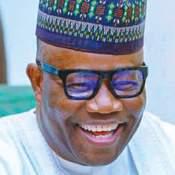
It is indubitably clear that the national assembly believes that it is the sole responsibility of the Federal Government to maintain law and order in the entire country. Whereas section 214(1) of the Constitution provides that “There shall be a police force for Nigeria, which shall be known as the Nigeria Police Force, and subject to the provisions of this section no other police force shall be established for the Federation or any part thereof”, the federal legislature and executive have created more police forces for the Federal Government.
Even though the Constitution provides for the joint management and supervision of the Nigeria Police Force, the national assembly passed the executive Bill for the establishment of the Police Service Commission as a federal government agency. The members of the Commission are nominated by the President and confirmed by the Senate. The Commission is run without any input from state governments.
Despite the vehement opposition of the Federal Government to the creation of state police, the national assembly passed the executive Bill 2003 for the establishment of the Nigeria Security and Civil Defence Corps Bill. The enactment of the Bill led to the establishment of the Nigeria Security and Civil Defence Corps Federal Road Safety Corps with powers to bear arms. The officials of other law enforcement agencies including the Economic and Financial Crimes Commission, the Independent Corrupt Practices Commission, Federal Safety Commission, Nigerian Correctional Service etc have since been authorized to bear arms by the Federal Government.
While the national assembly has adopted the recommendation of the National Economic Council for the establishment of state police, it has been reluctant to pass the bill for state police. However, the members of the national assembly recently passed the Forest Guards Bill sponsored by the executive. Thus, pursuant to the Forest Guards Act, the Bola Tinubu administration has set up the Forest Guards. The new security outfit has taken off with the deployment of about 2,000 armed gendarmes.
As a result of the security crisis plaguing the nation, the national assembly may eventually pass the State Police Bill. But the national assembly has refused to pass the Social Security Bill to provide benefits for old age, sickness, disability, unemployment, and family
support. However, it ought to be pointed out that with lack of adequate funding for the police coupled with poor renumeration for police personnel, security will not improve in any state of the Federation.
Based on the harassment and intimidation of the Nigerian people by the neocolonial police force, the national assembly repealed the Police Act and enacted the Police Establishment Act in 2020. The aim of the law is to have a more effective and accountable police in Nigeria with emphasis on transparency, human rights protection, and community engagement in policing. But the objective of the law has not been achieved due to the refusal of the national assembly to appropriate funds to ensure compliance with the provisions of the Act.
The four tax bills recently sponsored by the Executive have been passed by the national assembly. But some crucial provisions of the Tax Acts have encroached the residual powers of state governments. Without the amendment of the relevant provisions of the Constitution, the provisions of the Tax Acts that are inconsistent with the Constitution are liable to be declared illegal, null and void and set aside.
It is common knowledge that law enforcement is the affairs of each federating unit in line with the tenet of federalism. To that extent, the courts are crucial in maintaining law and order in any democratic society. But, members of the national assembly have consistently eroded the jurisdictional mandate and powers of state high courts in the country. Thus, pursuant to the Third Alteration of the Constitution in 2010, the national assembly conferred exclusive jurisdiction on the National Industrial Court to hear and determine all labour and employment matters. The implication is that a state high court lacks the power to hear the complaints of employees in the public service of states.
The First Alteration to the Constitution amended section 272(3) of the 1999 Constitution and conferred exclusive jurisdiction on the Federal High Court to hear and determine the question as to whether the term of office of a member of the House of Assembly of a State, a Governor or Deputy Governor has ceased or become vacant.” Furthermore, by virtue of section 84 of the Electoral Act 2022 has empowered the Federal High Court alone to deal with pre-election matters to the exclusion of state High Courts.
The Federal High Court, Court of Appeal and Supreme Court have held that legislative houses lack the power to suspend legislators. But in utter disregard of the judgments of the courts and contrary to the clear provisions of the Constitution on the subject matter, both houses of the national assembly and state houses of assembly have continued to deny many constituencies, representation in the government by suspending their elected representatives either for 3 or 6 months or indefinitely.
Ii is not in dispute that section 81 of the Constitution empowers the President to prepare the annual appropriation bill and submit same for the consideration of the national assembly. But the members of the national assembly have conferred on themselves the power to prepare and approve the appropriation bill. The constitutional abberation is called padding of the budget.
Welfare of the People
Section 16 of the Constitution outlines the economic objectives of the state. Specifically, it directs the State to harness the nation’s resources, promote national prosperity, and establish an efficient, dynamic, and self-reliant economy.
Additionally, it emphasizes the state’s responsibility to ensure that citizens have adequate shelter, food security, a reasonable minimum living wage, and social welfare benefits like old age care, unemployment benefits, and support for the disabled.
In utter violation of the said economic objective of the State, the members of the ruling class have sold public enterprises and awarded oil blocks and licences for solid minerals to themselves. Some of those who lost out in the criminal diversion of the commonwealth through privatisation and award of oil blocks have engaged in the smuggling of solid minerals. Therefore, the State has engaged in concentrating the commonwealth in the hands of a few people contrary to the letter and spirit of the Constitution. However,
Even though the members of the ruling class conspired to make the fundamental objectives and direct principles of state policy non justiciable in any court, the struggle of the Nigerian people for dividends of democracy has compelled the State to adopt policies and enact a numbers of laws that are designed to promote the welfare of the Nigerian people.
The welfare laws include Pension Reforms Act, National Minimum Wage Act (yet to be implemented by 20 states), Compulsory Free Universal Basic Education Act, Employees Compensation Act, Factories Act, National Commission for Mass Literacy, Adult and Non- Formal Education Act, Child Rights Act in FCT and Child Rights Law in every state, Student Loans (Access to Higher Education) (Repeal and Re-enactment) Act, National Senior Citizens Act, Discrimination Against Persons with Disabilities (Prohibition) Act, Federal Mortgage Bank Act, National Housing Act, etc.
It is regrettable to note that the welfare laws are observed in breach by the Nigerian State to the detriment of the working people. For instance, the Child Rights Act and Child Rights Laws Compulsory Free Universal Basic Education Act have imposed a legal duty on the federal and state governments to ensure that every child is given free and compulsory education from primary school to junior secondary school. Apart from paying lip service to the crisis of out of school children, the national assembly has failed to amend the UBEC Act to achieve its primary objective.
While addressing the Governors elected on the platform of the All Progressive Congress about two weeks ago, President Bola Tinubu acknowledged the terrible economic hardship being experienced by poor citizens as a result of the implementation of neoliberal policies. The President said that “Nigerians are still complaining at the grassroots. To you, the governors, you must wet the grass more and deliver progressive change to Nigerians. May God bless our democracy and grant us more fertile lands.”
The Federal Government should lead by example by funding the welfare programmes that have been codified in Nigeria. In particular, the Social Investment Programme Agency Act 2023 has imposed a duty on the Federal Government to fund the following poverty reduction programmes:
i. N-Power programme — an initiative aimed at building the skills of youth and promoting entrepreneurship.
ii. Government enterprise and empowerment programme (GEEP) — an intervention to address the challenges of access to credit facilities and to provide soft loans to Nigerians through the trader moni, market moni and farmer moni initiatives.
